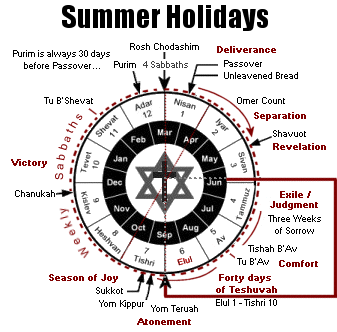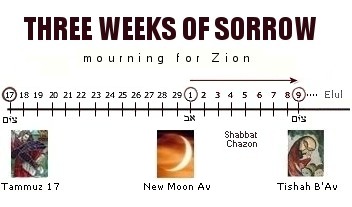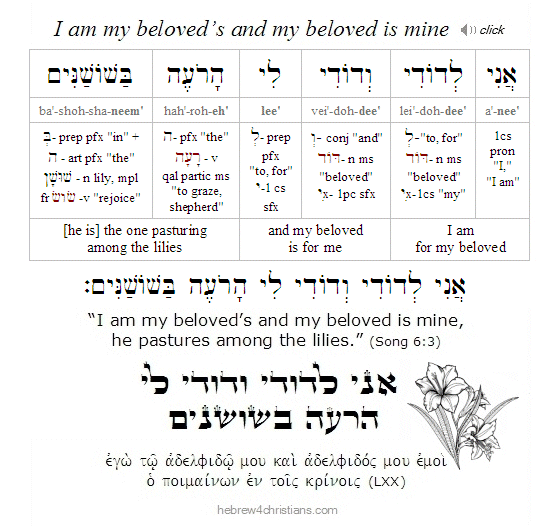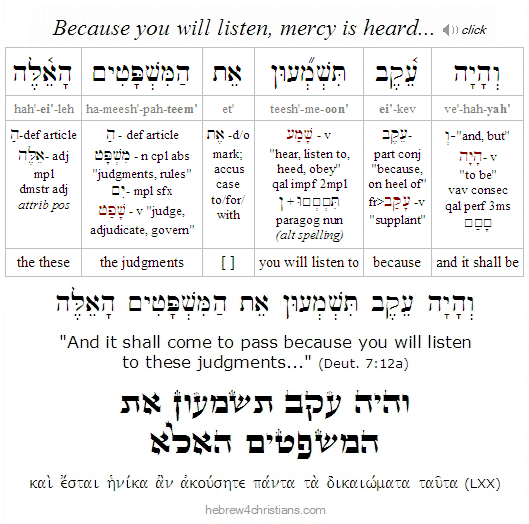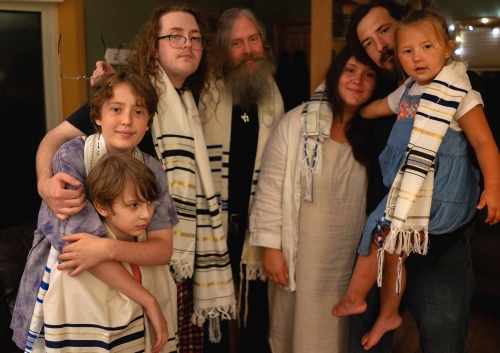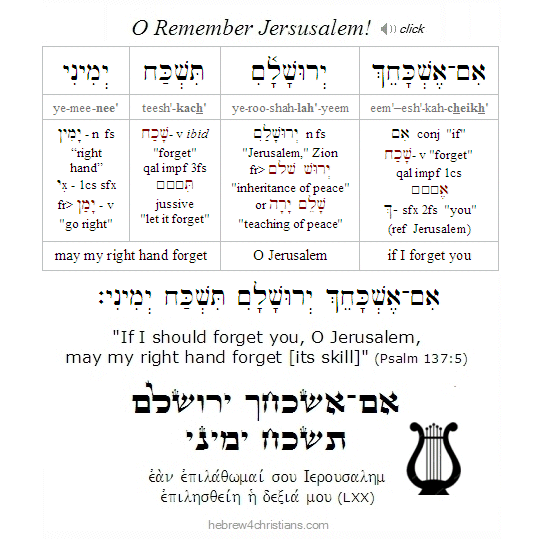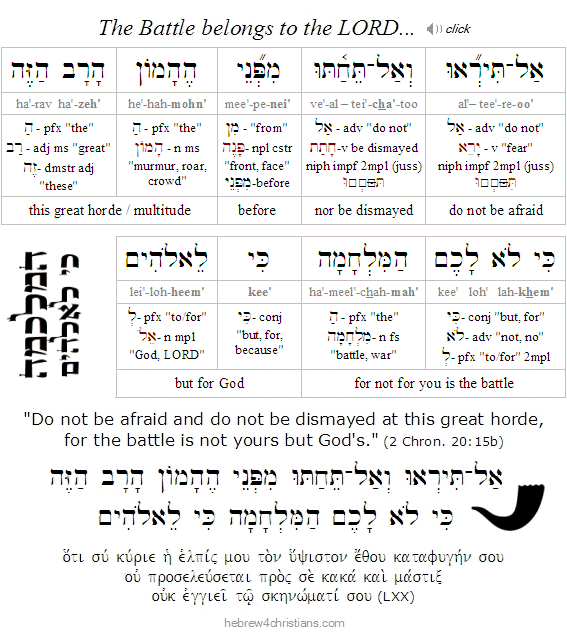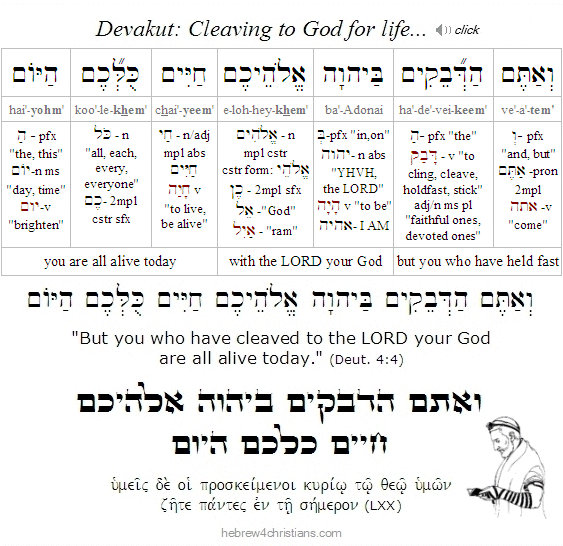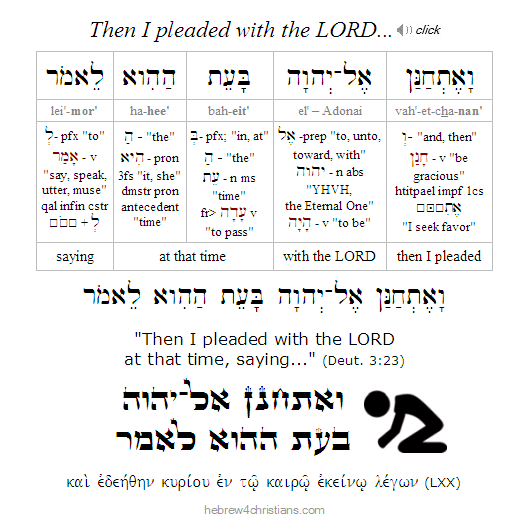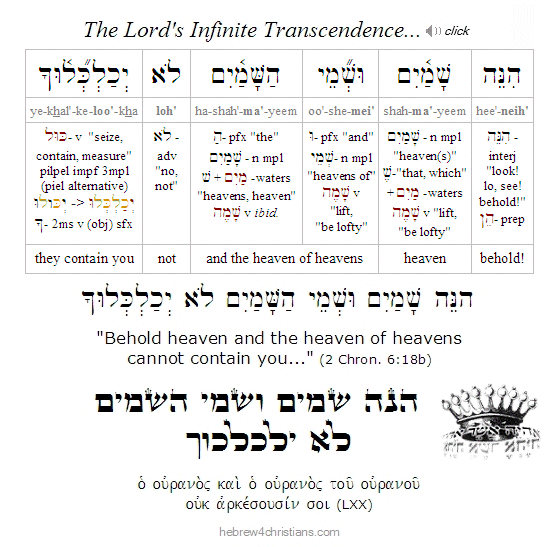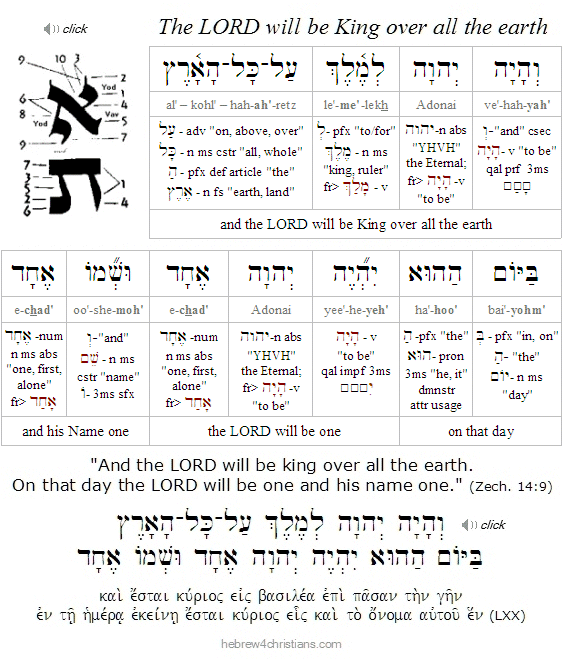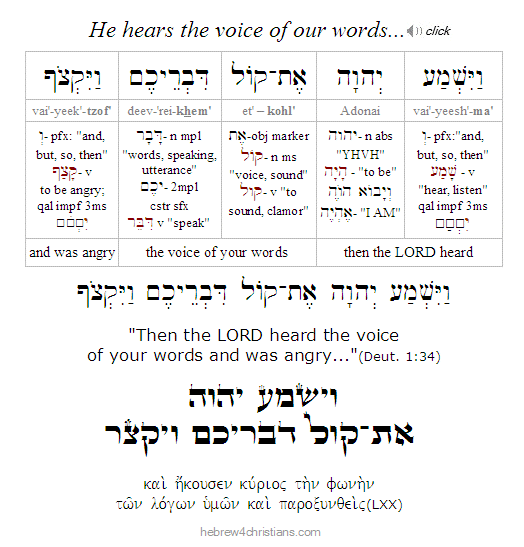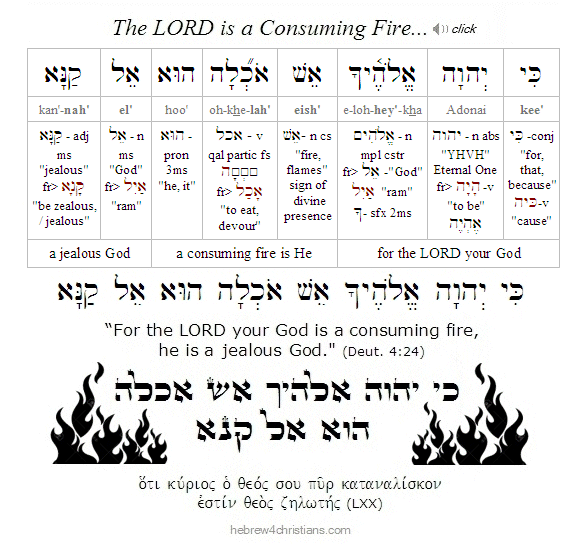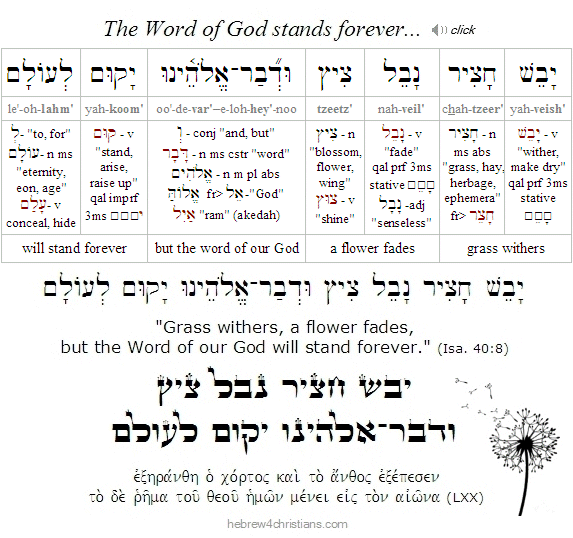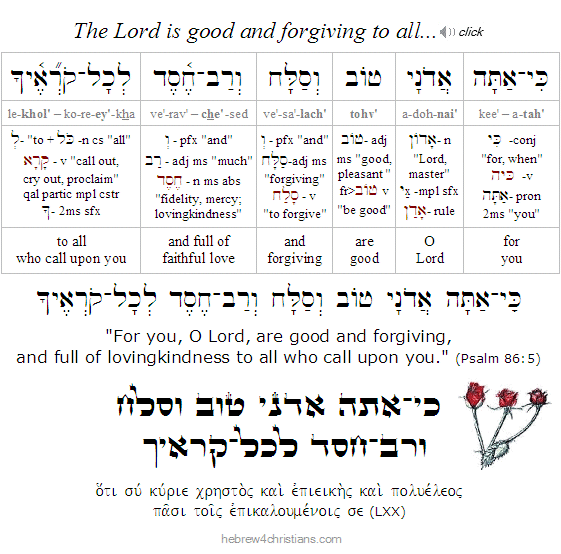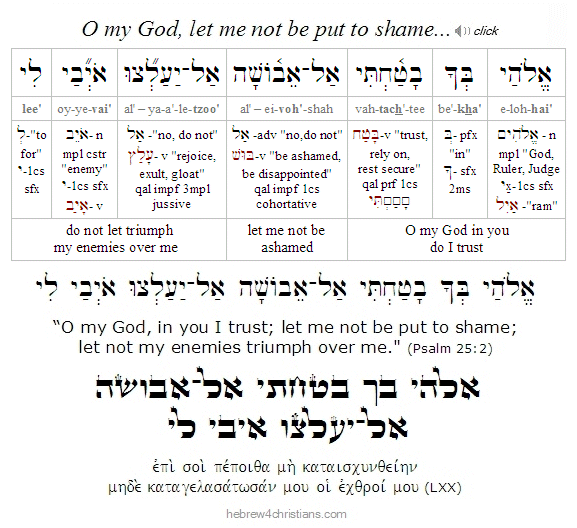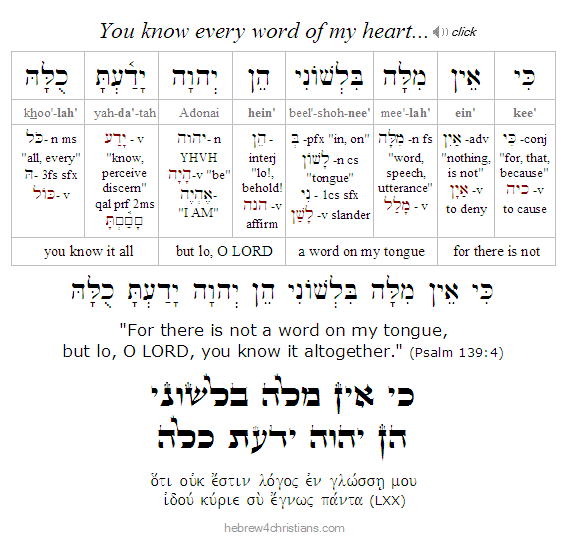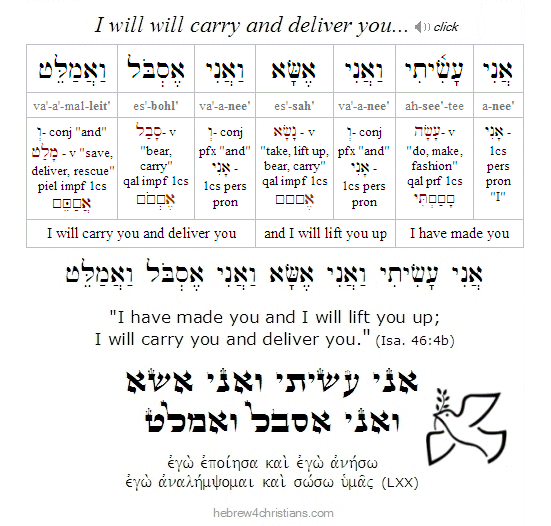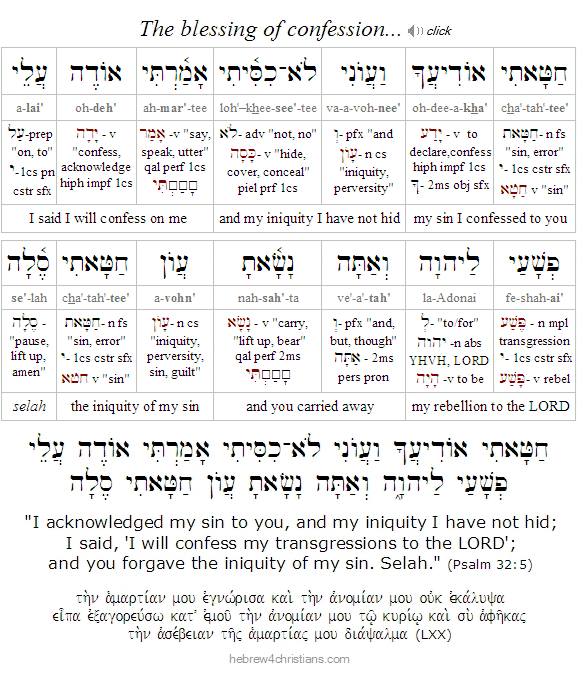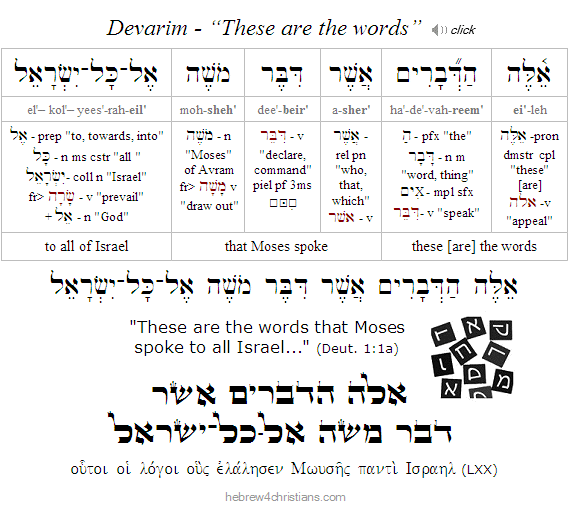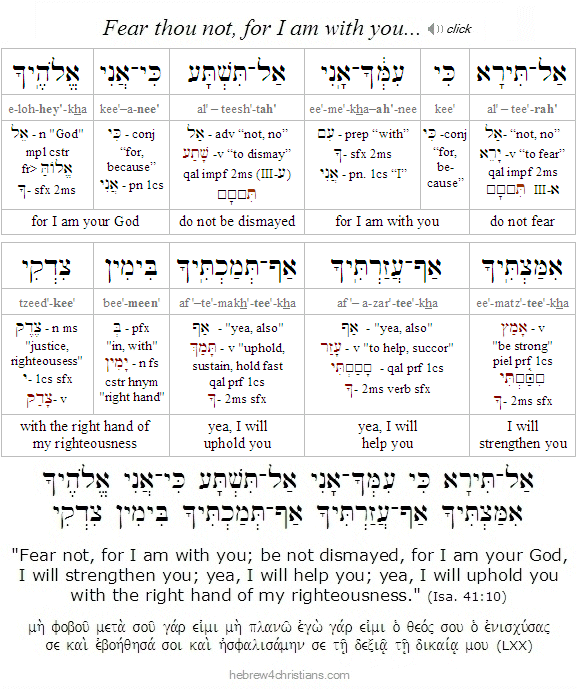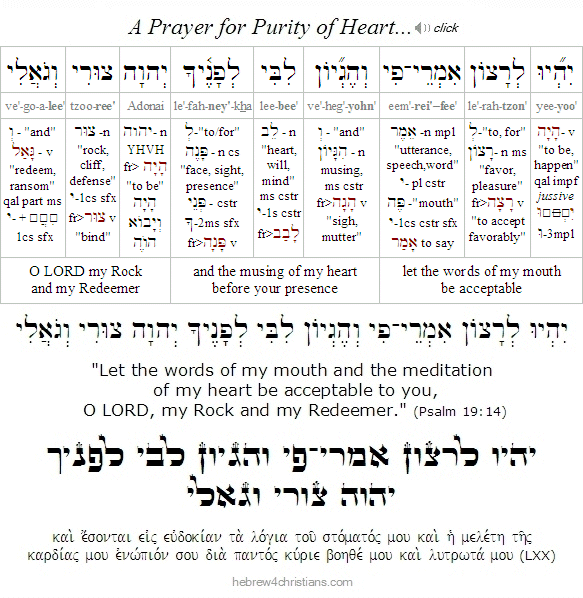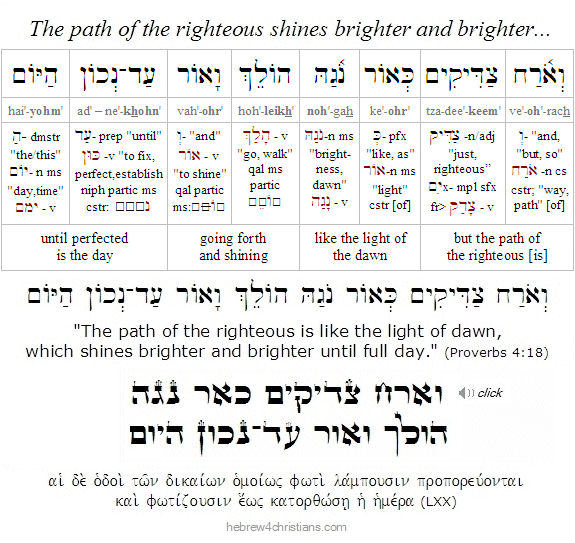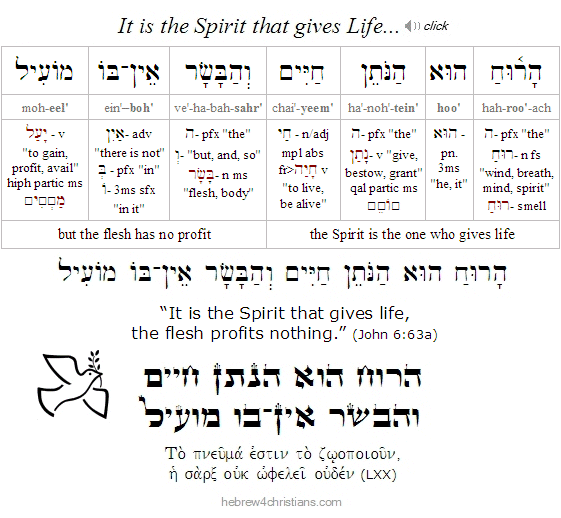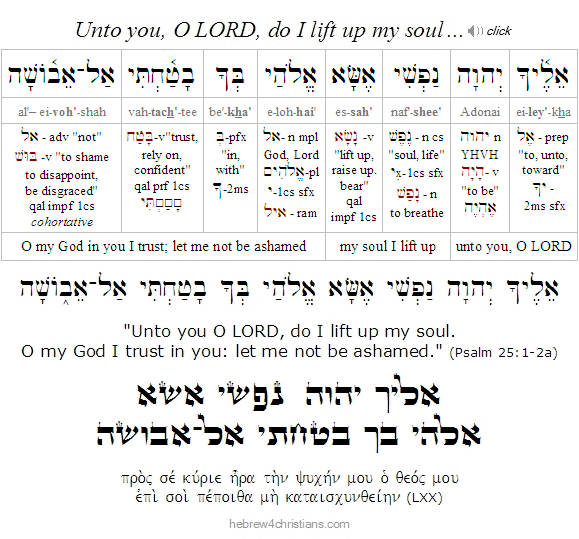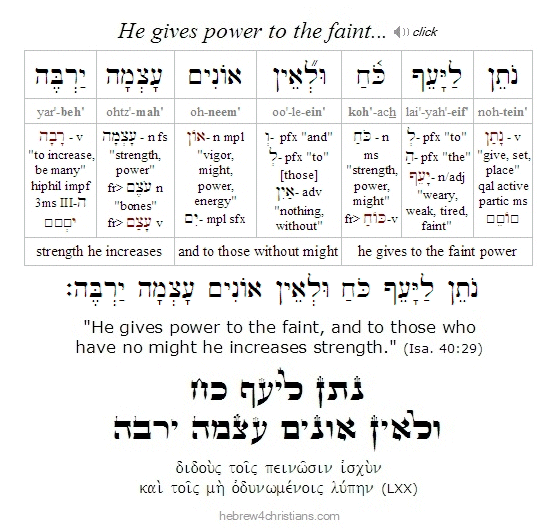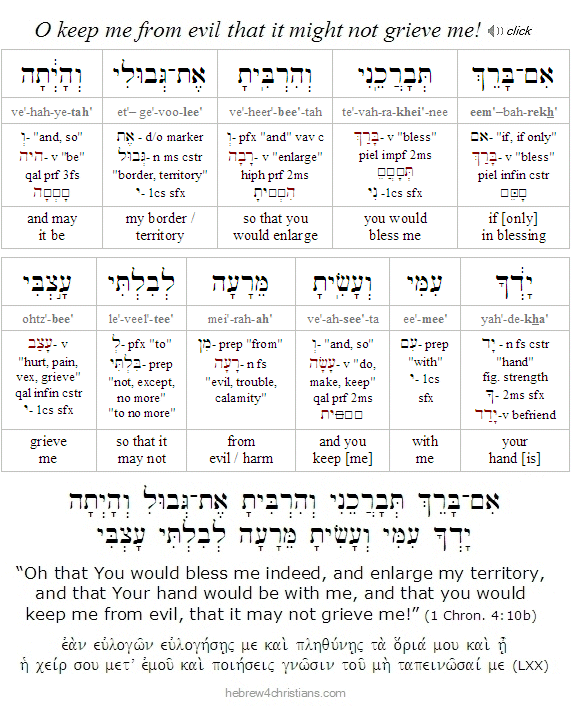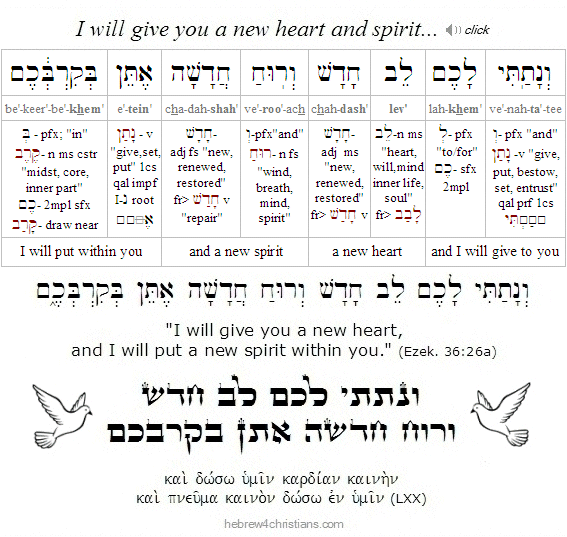|
Jewish Holiday Calendar
For July 2023 site updates, please scroll past this entry....
In the summer there occurs a three week period of mourning that begins with the Fast of Tammuz and ends with Tishah B'Av. The last nine days of this three week period (i.e., from Av 1 until Av 9th) are days of increased mourning. However, after this somber time, the romantic holiday of Tu B'Av, the 15th of Av occurs. Summer ends with the 30 days of the month of Elul, a yearly season of teshuvah (repentance) that anticipates Rosh Hashanah and the fall holidays. The 30 days of Elul are combined with the first 10 days of the month of Tishri to create the "Forty Days of Teshuvah" that culminate with Yom Kippur.
Because they occur between the spring and fall holidays, the summer holidays help us prepare for the second coming of the Messiah:
The Summer Holidays:

Note that in accordance with tradition, holiday dates begin at sundown. Moreover, some holidays may be postponed one day if they happen to fall on the weekly Sabbath:
- Month of Tammuz (Tues. June 18th [eve] - Tues. July 18th [day])
- Month of Av (Tues. July 18th [eve] - Wed. Aug. 16th [day])
- Month of Elul (Wed. Aug. 16th [eve] - Fri. Sept. 15th [day])
Note: For more about the dates of these holidays see the Calendar pages....
July 2023 Updates
Note: Please refresh the page (or press F5) to see the latest updates...
Wounds of Loneliness...

07.31.23 (Av 13, 5783) The late Henri Nouwen said that there are two great fears (or wounds) that we all face. The first is the fear that we were not wanted at the time of our birth into this world, and the second is that we will not be wanted at the time of our death. "Not being welcome is your greatest fear. It connects with your birth fear, your fear of not being welcome in this life, and your death fear, your fear of not being welcome in the life after this. It is the deep-seated fear that it would have been better if you had not lived" (Inner Voice of Love). If you carry a wound of abandonment within your heart - if you live in dread over your worth as a human being, seriously wondering whether it would have been better had you never been born, then you know the taste of hell itself - the emotional prison of feeling lost, defective, rejected, shameful - unable to love or to be loved...
Is not the lament of the lonely heart to find a sense of welcome, or acceptance, or peace within? Is it not the heart's cry for connection? Yet even the very gospel message cannot make traction within a heart lost to its own shame... Therefore the miracle of salvation is profoundly connected with faith that you are loved and lovable - despite yourself - and that this love derives from the core of all that truly exists. Is this not "home" in the spiritual sense? Is this not "Zion, the perfection of holiness?" That God prepares a table for you in the presence of your enemies, yea, those enemies of self-rejection, abandonment, fear, and shame? And that there - in the midst of your lost and forlorn condition you are found, treasured, and celebrated? Is not that "place" God's very heart - Jesus dying upon the cross, gasping for each breath - knowing everything about you and loving you anyway?
In our Torah reading this week (Eikev), Moses asks us to "soften our hearts" by remembering that we are beloved of God (Deut. 10:12-16). He reminds us that the though Lord is "the God of gods" (אֱלהֵי הָאֱלהִים) - the power that transcends the gods of our idolatry (i.e., our fears, our disordered attachments, our shame), and the "Lord of lords" (אֲדנֵי הָאֲדנִים) - the Center and Authority of what is most real, he nevertheless cares for the lowly orphan and the grieving widow - he reaches out to the needy and the abandoned - and he desires to console the "stranger," the one shattered of heart, who has no sense of belonging, no pride of tribe, nor place to lay his head (see Deut. 10:17-18). God cares about those who are lost, hurting, and alone: He came to save all such from their despair.
But how does God reach the bound soul that walks alone among the tombs, cutting himself in his torment (Matt. 8:28-34)? How can he heal the deep trauma, the disassociated and broken of heart? How else but by the miracle of his intervention, quickening an otherwise numb and dead heart to come alive, to breathe in hope, and to begin to believe that - despite everything that has happened - he was wanted all along, from the very beginning, and that the wound of his sorrow was given so that he could find out who he really is and where he really belongs... The wound you were given is part of your story, and healing comes from accepting God's love for you -- and understanding how the Lord goes through the wound with you and for you...
Life in this fallen world is likened to a vapor or a passing shadow (Psalm 144:4). Nothing abides; good things here never last; and we labor under the unmentionable anxiety that death will separate us from everyone and everything we love. However, death is not the end for the us, for "love is stronger than death, passion fiercer than the grave; its flashes are flashes of fire, the very flame of the LORD" (Song 8:6). We will live for He lives...
"What will death be like?" they asked the Master. "It will be as if a veil is ripped apart and you will say in wonder, "So it was you all along!" (De Mello). Death is a most poignant homecoming, a place of joyful welcome, wherein all shall be well for ever. The righteous have an everlasting foundation in the faithful heart of God. Faith in the LORD believes that a single supreme, all-knowing, all-powerful and benevolent spiritual Power directs all things, and that Messiah is the beginning, middle, and end of all conscious meaning, truth, and substance, as it is written: כִּי הַכּל מִיָּדוֹ הַכּל בּוֹ וְהַכּל לוֹ הוּא, "For from him and through him and to him are all things" (Rom. 11:36). A life of faith in the one true God imparts the blessing of shalom (inner peace) and assures the heart that all shall be made well by the love of God. So then, "if we live, we live to the Lord, and if we die, we die to the Lord. So then, whether we live or whether we die, we belong to the Lord" (Rom. 14:8). For the believer in Messiah, death does not define us, and indeed, we trust that God will attend to us in the moment of our utmost extremity (John 5:24; 11:25-26). If we desire eternal life with all our hearts and remember our end before the Lord, we will be free of the fear of death. Amen ve'amen.
Hebrew Lesson
Psalm 147:3 reading (click):
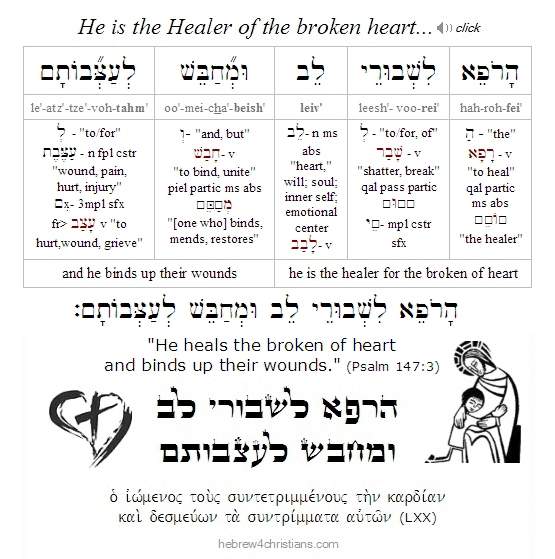 |
Danger of Forgetfulness...

[ The following entry concerns this week's Torah reading, parashat Eikev... ]
07.31.23 (Av 13, 5783) The sages note: "Great is the power of forgetfulness, for it is also capable of causing you to forget the LORD your God, as it is written in this week's Torah portion (Eikev), "Guard yourself lest you forget the LORD your God by not keeping his commandments and his rules and his statutes, which I command you today" (Deut. 8:11).
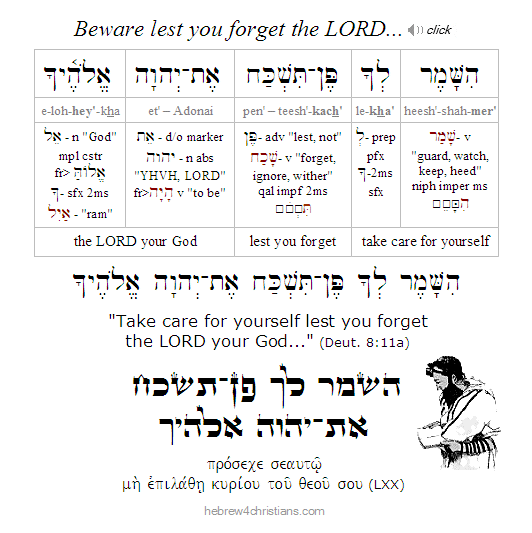 |
Note that the word "forget" in this verse comes from a root (i.e., shakhach: שָׁכַח) that means to ignore or "wither," thus evoking the words of Yeshua: "I am the vine; you are the branches. Whoever abides in me and I in him, he it is that bears much fruit, for apart from me you can do nothing. If anyone does not abide in me he is thrown away like a branch and withers (ξηραίνω); and the branches are gathered, thrown into the fire, and burned" (John 15:5-6). Therefore it is essential to earnestly strive to remember and to retain the truth that has been entrusted to you, as it is written: "Get wisdom; get insight; do not forget, and do not turn away from the words of my mouth" (Prov. 4:5).
קְנֵה חָכְמָה קְנֵה בִינָה
אַל־תִּשְׁכַּח וְאַל־תֵּט מֵאִמְרֵי־פִי
ke·neih · chokh·mah ke·neih · vee-nah
ahl-teesh-kach · ve·ahl-teit · mei·eem·rey·fee

"Get wisdom; gain insight; do not forget
and do not turn away from the words of my mouth.
(Prov. 4:5)

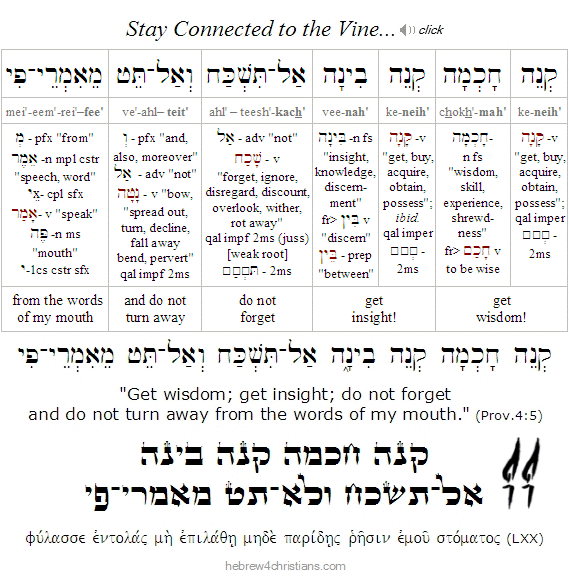 |
"If a man possessed a letter which he knew, or believed, contained information bearing upon what he must regard as his life's happiness, but the writing was pale and fine, almost illegible - then he would read it with restless anxiety and with all possible passion, in on moment getting one meaning, in the next another, depending on his belief that, having made out one word with certainty he could interpret the rest thereby; but he would never arrive at anything except the same uncertainty with which he began. He would stare more and more anxiously, but the more he stared, less he would see. His eyes would sometimes fill with tears; but the oftener this happened the less he would see. In the course of time, the writing would become fainter and more illegible, until at last the paper itself would crumble away, and nothing would be left to him except the tears in his eyes." - Soren Kierkegaard, Either/Or (from Parables of Kierkegaard: Thomas Oden, 1978)
Insiders and Outsiders...
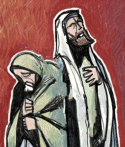
07.30.23 (Av 12, 5783) The parable of the Pharisee and the Tax Collector is a well-known teaching of Yeshua. Two people go to the Temple to pray, one a devout Pharisee, and the other a despised tax collector. The Pharisee thanked God that he was not like other men (on account of his religious devotion), whereas the tax collector lamented that he was a sinner and simply appealed to God for mercy. The surprising "twist" to the story, however, is that the tax collector was justified in the eyes of heaven, and not the Pharisee (Luke 18:10-24).
Most people assume Yeshua told this story to teach how pride can deceive the heart, and that humility is essential to be rightly related to God, and while this application may be rightly inferred from the parable, it is important to understand that the Pharisee only did what was expected of him regarding his religious obligations at the time. Indeed, the Pharisees (i.e., perushim: פְּרוּשִׁים) were Torah scholars who sought to obey Moses' teaching wholeheartedly, as did the Apostle Paul (Acts 22:3). When the Pharisee of the story thanked God for not being like other men, such as thieves, adulterers, or "even like this tax collector," he was not necessarily being prideful but "honest," at least in terms of his devotion for the law: "I fast twice a week; I give a tenth of all my income," the former statement exceeding the law's demand, and the later in full compliance. In fact, this rabbi's speech was typical of pious blessings recorded from the same period of Jewish history.
The tax collector, on the other hand, was an "outsider" to the religious establishment and therefore he stood "afar off" as he made pathetic appeal to God for mercy. His prayer was an unvarnished and heartsore cry to heaven for help. The surprise ending of the story, and what likely unsettled the audience of Yeshua's day, was that the tax collector "went down to his home justified" while the Pharisee did not. In the eyes of heaven, the tax collector was the real "insider" whereas the Pharisee stood "afar off," an outsider to God's heart...
But what's the moral of the story? First, of course, is the straightforward lesson regarding the virtue of humility - that is, the importance of knowing "in your kishkas" how much you need God, and therefore abandoning religious traditions (and the praises of men) in heartfelt contrition, looking instead to God for righteousness. But second, Yeshua is teaching that the kingdom of God has come and is no longer to be found in the confines of the Temple. Knowing the Divine Presence and walking in holiness is no longer the domain of religion but is a matter of the heart of the individual who trusts in God's mercy to deliver him from the guilt of his sin. Holiness, or the realm of the sacred, has transcended the confines of the Temple because the one who expresses the heart of the Divine Presence has come to seek and to save the lost. Yeshua was sacrificed "outside the camp," the curtain of the Temple was torn asunder, so that whosoever will believe in God's mercy in Yeshua will be saved.
Hebrew Lesson
Micah 6:8 reading (click):
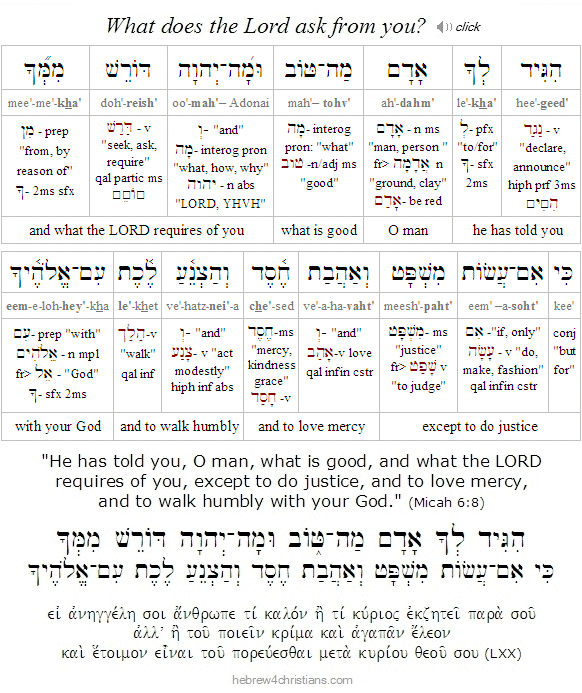 |
It is tragic that some pastors can preach about the pride and self-righteousness of the Pharisees, while turning a blind eye to their own preferred interpretations that are often held at the expense of brotherly love and unity among believers... For instance, some pastors will teach about how Jesus loves people and then turn around and condemn (i.e., ostracize) individuals and churches that differ with them regarding matters of "mint and cummin" in the realm of the Spirit. The "weightier matters" of the law, chaverim - the very heart of the Father for the lost - should be our guiding principle, even when we do theology, and perhaps especially when we do so. Shalom.
The Holiday of Tu B'Av...

[ The romantic holiday Tu B'Av of begins sundown on Tuesday, August 1st this year... ]
07.30.23 (Av 12, 5783) Tu B'Av (ט"ו באב, the "fifteenth [day] of [the month of] Av") is an annual holiday of love and affection (sometimes called chag ha-ahavah: חַג הָאַהֲבָה) that is celebrated as a sort of "Valentine's Day" in modern Israel (though it is a much older holiday that St. Valentine's Day). Just as Yom Kippur (the Day of Atonement) originally celebrated the reconciliation of Israel to the LORD after the sin of the Golden Calf, so Tu B'Av originally celebrated the reconciliation of Israel for the Sin of the Spies. Therefore both the fifteenth of Av and Yom Kippur became joyous times celebrating forgiveness and restoration to the LORD. Indeed, the Babylonian Talmud (Ta'anit 31a) quotes Shimon ben Gamliel as saying, "Israel had no holidays as joyous as the fifteenth of Av and the Day of Atonement, when the maidens of Israel would go out and dance in the vineyards... What were they saying: Young man, consider whom you choose to be your wife..."
Since it marks the "last" festival of the Jewish year, Tu B'Av prophetically pictures our marriage to the Lamb of God (Seh Elohim), Yeshua our beloved Messiah. On a soon-coming day those who belong to him and are faithful to follow his ways will be blessed with the unspeakable joy as their "wedding day" finally has come. This is heaven itself - to be in the Presence of the LORD and to be His beloved (Rev. 19:6-9).
With the advent of the holiday of Tu B'Av, we are reminded of the beautiful phrase, ani l'dodi ve'dodi li (אֲנִי לְדוֹדִי וְדוֹדִי לִי), "I am my beloved's, and my beloved is mine" (Song. 6:3), a phrase the sages say is an acronym for the name Elul (אלול). Since the month of Elul begins in just a couple of weeks (i.e., Friday, August 6th this year), the entire month is set apart to prepare us for the coming High Holidays in early September. During this time it we engage in cheshbon ha-nefesh ("soul searching") and to derive comfort that God is forgiving and loving to those who turn to Him. The sages chose the seven "Haftarot of comfort" to encourage us to make our hearts ready for the upcoming High Holiday Season.
Hebrew Lesson
Song 6:3 reading (click):
Parashat Eikev - עקב

[ The Torah reading for this week is parashat Eikev, which is traditionally read during Shabbat Va'tomer, the second "Sabbath of Consolation" after Tishah B'Av.... ]
07.30.23 (Av 12, 5783) In our Torah reading for this week (i.e., parashat Eikev), Moses continues his farewell address to Israel by saying, "And because (עֵקֶב) you will listen to these rules and keep and do them, the LORD your God will keep with you the covenant and the love that he swore to your fathers" (Deut. 7:12). Note that the word eikev (עֵקֶב), often translated "because," literally means "heel," which recalls Jacob (יעקב) the "heel-holder" who wrestled with the pain of his past to learn to bear the name Israel (יִשְׂרָאֵל), the "prince of God" (Gen. 32:28)... And like Jacob, we must grapple to believe that the covenant of God's love and acceptance is for us, too...
The Sassover rebbe interpreted the opening verse of our Torah portion, "And because you will listen..." (וְהָיָה עֵקֶב תִּשְׁמְעוּן) as, "and it shall be when your heel is ready to take a step, you will listen to your heart." This is the step of faith. As you begin to walk with God, you will come to know yourself as a child of the great King. Likewise regarding the related verse in the Torah, "Because Abraham heard my voice" (עֵקֶב אֲשֶׁר־שָׁמַע אַבְרָהָם בְּקלִי), the sages read, "Abraham heard the word 'down to his heel'" (Gen. 26:5). Like Abraham, we will hear God's voice as we walk with him by faith...
Hebrew Lesson
1 Chron. 22:19a reading (click):
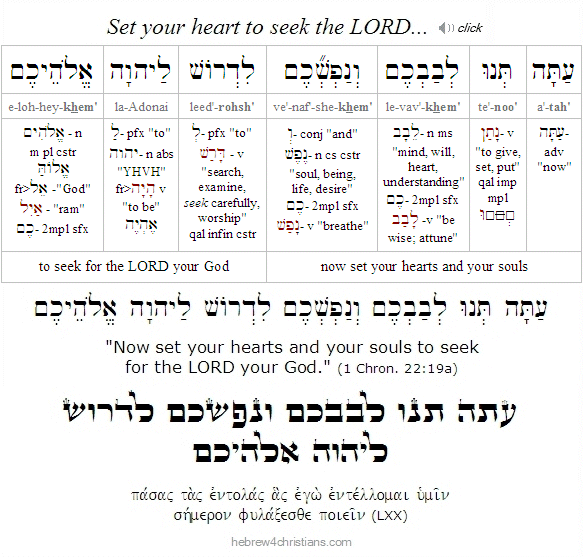 |
The portion begins: "ve'hayah eikev..." (Deut. 7:12). Here translators differ about how to understand the Hebrew. The JPS version, for instance, renders this as "and if you listen," whereas others render it as, "and because you listen..." The former translation makes the blessing seem conditional upon obedience, whereas the latter reading affirms the obedience that leads to blessing... The Hebrew word eikev (i.e., עקב, "heel," "step"), however, refers to action, and therefore it may be regarded as a prophecy expressing faith that the blessing which God swore on oath will be fulfilled. May it be so for us, chaverim...
Hebrew Lesson
Opening words of parashat Eikev (click):
Eikev Audio Podcast...

Fire unto the Heart of Heaven...

07.28.23 (Av 10, 5783) In our Torah for this week (Vaetchanan), Moses recalled the awesome revelation of the Torah at Sinai, describing how the mountain "burned with fire unto the heart of heaven" (בּעֵר בָּאֵשׁ עַד־לֵב הַשָּׁמַיִם) when the Ten Commandments were inscribed upon the two tablets of testimony (Deut. 4:11-13). In this connection the sages say that the tablets represented a heart, as it says, "write them on the tablet of your heart" (Prov. 3:3), and God's word is likened to a consuming fire that reveals the great passion of his heart for us (Jer. 23:29; Deut. 4:24).
Tragically, the two tablets were smashed after the people lost sight of the heart of heaven (i.e., lev ha'shamayim: לב השמים), and therefore God requires a broken heart - teshuvah - to behold his glory once again. Therefore we see that Yeshua died of a broken heart upon the cross for our return to God, when the fire of his passion burned unto the very heart of heaven, and in his self sacrifice (מסירת הנפש) we see the greater glory of God...
Hebrew Lesson
Proverbs 3:3 reading (click):
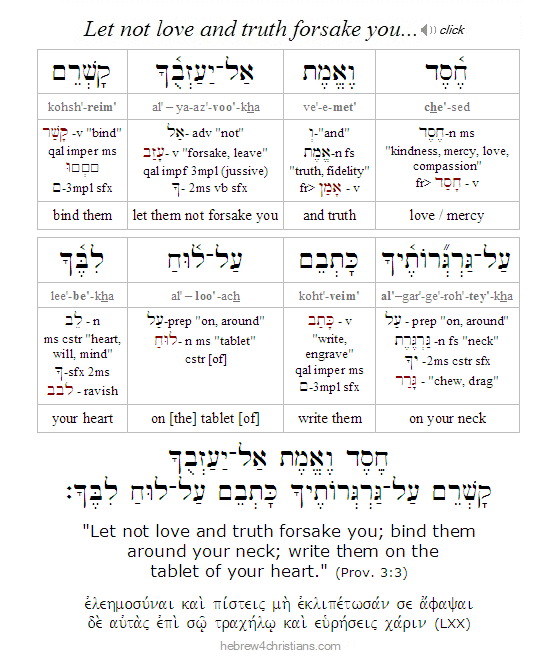 |
Knowing God Truly....

[ A brief meditation on Matthew 7:21-23 and how we can truly know God... ]
07.28.23 (Av 10, 5783) "I never knew you..." O dreadful vision to consider that we, even though we profess faith in God, may become strangers to the truth, and that the essence of our life was discovered to be a lie, a vanity, everlasting loss...
That is the substance of Yeshua's warning to each of us. "The inner is not the outer." Not every one who says that he believes in him truly does so, and not every one who thinks he knows him does so truly (Matt. 7:21). Truth is revealed by what a person does with his or her life, since this manifests who they are and what they really believe, far more than mere words. We can say a lot of things about what we may believe, but the test is whether we are doing the will of God - or not. Those who "enter the kingdom" are those who seek to do the will of God as the utmost passion of their existence.
Clearly none of this is about religion or religious "scrupulosity." It is far more serious than that. Yeshua warned that many people do various religious activities, "good deeds" such as feeding the poor, protesting social injustice, or ministering to the oppressed, and so on. Some may even teach or preach the very gospel message itself, but alas! all these may be outsiders who break the inmost law of truth by refusing to surrender to God.
Hear Yeshua's words: "Many will say to me, 'Lord, Lord, didn't we prophesy in your name, and in your name cast out demons and do many powerful deeds?' (Matt. 7:22). But note the plural pronoun used in this self-reference. Why does the crowd speak on its behalf regarding what "they" have done to justify themselves? Are these people trusting in their religious associations or virtues to make them right with God? Do they identify themselves with some church or righteous cause and assume that should suffice to obtain favorable judgment from heaven? Be careful. Yeshua always speaks to the individual heart, not to groups, tribes, or political parties... "I never knew you" is spoken in the plural: Οὐδέποτε ἔγνων ὑμᾶς, that is, He is unknown except for the individual heart that trusts in Him...
But nonetheless, Yeshua is saying something more. In this admonitory vision of judgment there is a surprising twist. There is no indication that he denied that some people objectively did such patently "good" things. Many did prophesy (or teach) about God; many did cast out demons and do "powerful" or miraculous works. The essence of the judgment, however, is that despite all this, despite their ostensible allegiance to God, they were really practitioners of lawlessness, they were workers of iniquity, and therefore they were cast out: "I never knew you" (Matt. 7:23).
Yeshua had warned us before. He made the matter clear: "Enter by the narrow gate. For the gate is wide and the way is easy that leads to destruction, and those who enter by it are many. But the gate is narrow and the way is hard that leads to life, and those who find it are few" (Matt. 7:13-14). The "wide" gate is the way of the crowd, spacious enough to accommodate the masses. It's the way of open-ended "tolerance" coupled with the unthinking repudiation of moral convictions. The "paradox of tolerance" is that absolute tolerance is self-contradictory and ultimately leads to self-destruction. As Karl Popper said: "If everyone is tolerant of every idea, then intolerant ideas will emerge. Tolerant people will tolerate this intolerance, and the intolerant people will not tolerate the tolerant people."
The "narrow way," on the other hand, leads to life. It is not the popular way. It is not the way of the masses or the "politically correct" crowd. It is not amenable to the way of the jaded skeptic who has no faith in truth. It is not the path of the proud or arrogant. Nor is it the way of "religion" or social justice organizations. It does neither "jihad" nor affect compassion through worldly philanthropy. It is certainly not the way of the State nor political movements driven by mass appeals of the tyrants, demagogues, and their followers. Nor is it the way of the "institutional" churches. It is not a mass "Christian" movement. It is not concerned with teachings of theologians, or professors, or even preachers who are simply "interested" in the things of God but who never engage in raw personal struggle and agony of heart to do the will of God. No, the way of true surrender involves confessing your brokenness and poverty - your need for deliverance from yourself - and in humility coming before the light to ask God for the miracle of salvation, for "life-from-death" deliverance, resurrection, and newness of life...
Something more is therefore needed than merely thinking about God or doing various forms of good works, and that "something more" is having an honest and genuinely tested relationship Yeshua, knowing him in the severe and secret communion of your heart as you live whatever remains of your days in surrender to his will. What is more is the death of Yeshua given on your behalf and your regeneration. It is life "built upon the Rock" - the solid foundation of God's heart given in Christ - that will enable you to weather the inevitable storms of life without failing (Matt. 7:24-27).
So do you truly know the Lord, friend? Or better - does He really know you? Again, this does not concern abstract knowledge about God or the practices of religion, but the passion of the heart. It is the "knowledge" of knowing someone that you truly love. And that is the key: love. To know God is to know his love and to receive his passion. You simply cannot know Yeshua apart from knowing his love for you, for these are bound together as one.
God loves you despite yourself. It's not your love for God that saves you but God's love for you: ῾Ημεῖς ἀγαπῶμεν αὐτόν, ὅτι αὐτὸς πρῶτος ἠγάπησεν ἡμᾶς. "We love him because he first loves us" (1 John 4:19). We were born into this world alienated, lost, spiritually dead, and therefore unable to know the truth of God's heart. Our love (and knowledge) of God comes from God's love for us, and we receive that love by the miracle of his intervention in our lives. There is no other way. We do not ascend a "stairway to heaven" to find God, but he descends to the depths and rescues us from the shadowy world of exile and fear.
Yeshua was once asked: "What shall we do to do the works of God?" and he answered: "This is the work of God, that you believe in him whom he sent" (John 6:28-29). This, then, is the will of God; this is what the Lord requires from us; this is the key that opens the door to enter in the Kingdom: to believe and trust in God's personal love for us given in Yeshua and to live the truth of that love humbly and in all our ways.
If you forget the essence of your soul you may begin to lose sight of your reason for being, the "why" that underlies all other whys... This essence, however, is not discovered by means of reason, but by revelation -- it is a divine disclosure that awakens you to newness of life. Teshuvah is a return to the arms of your Heavenly Father...
Hebrew Lesson
Psalm 139:23-24 Hebrew reading:
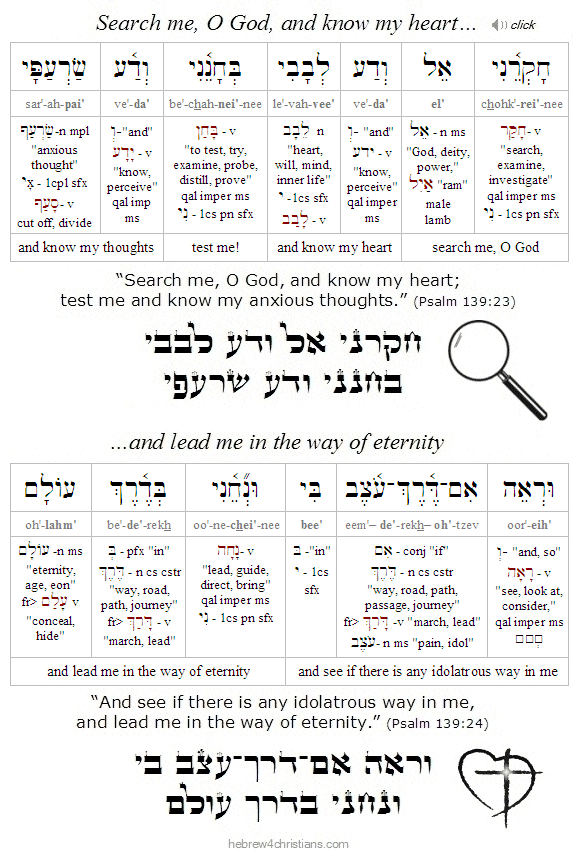 |
Exile and Carelessness...

[ Today is Tishah B'Av, the Ninth day of the month of Av, an annual fast day of mourning that recalls the many tragedies that have befallen the Jewish people over the centuries.... ]
07.27.23 (Av 9, 5783) The theme of the fragility of life is part of the sober message of Tishah B'Av. After all, the great symbol of God's manifest presence on the earth, the Holy Temple, went up in smoke, and the very place (i.e., ha-makom: הַמָּקוֹם) where the LORD chose to "put His Name" was utterly destroyed. As the people were taken captive and led into exile, the great vision of Zion appeared to be forever lost (Psalm 137:1-4).
The LORD had forewarned that exile, persecution and progressively worse punishments would befall the people if they would break faith with Him (see Lev. 26:14-46). But how could all this have happened? Notice that the "rebuke" portion of the tochachah begins with ve'im loh tishme'u li (וְאִם־לא תִשְׁמְעוּ לִי), "if you do not listen to me" (Lev. 26:14), which recalls the Shema and the duty to love the Lord bekhol levavkha, "with all your heart." The sages point out that the refrain "if you walk contrary to me" (וַהֲלַכְתֶּם עִמִּי בְּקֶרִי) - which occurs several times during the rebuke - really means "if you walk carelessly (i.e., keri: קְרִי) with me." The commentator Rashi notes that the verb karah (קָרָה) means "to befall" or "to happen" and therefore suggests a sense of randomness (the related word mikreh [מִקְרֶה] means "coincidence"). If the people regarded the events of life as "random," then God would reciprocate by bringing senseless trouble into their lives. For this reason a careless attitude about the things of God is the first step toward apostasy...
It's been said that the opposite of love isn't hate, but rather indifference, and that explains why punishments came when the people "left their first love." If you walk carelessly with God, then you may be afflicted with "troubles of love" (i.e., yissurei ahavah: יִסּוּרֵי אַהֲבָה), that is, with various difficulties, intended to help you "come to your senses," to help you wake up, and to cause you return to the LORD for healing... This is a severe mercy of God.
The idea of tochachah is not simply something for ethnic Israel, of course, since the New Testament likewise warns us that God will punish those who likewise walk carelessly (i.e., keri: קְרִי) with Him. Have you forgotten the exhortation that addresses you as God's children? "My son, do not regard lightly (ὀλιγώρει) the discipline of the Lord, nor be weary by his reproof (תּוֹכֵחָה). For the Lord disciplines the one he loves, and reproves (יוֹכִיחַ) every child whom he receives" (Heb. 12:5-6; Prov. 3:11-12). The Lord charged the assembly at Ephesus that they had let go of their first love. Yeshua therefore urged them: "Remember from what high state you have fallen and repent! Do the deeds (ἔργα) you did at the first; if not, I will come to you and remove your menorah from its place – unless you repent" (Rev. 2:4-5). "God is not mocked (μυκτηρίζω - lit., "to turn up the nose at"), and what a man sows, he also reaps" (Gal. 6:7; Psalm 39:11). There are abiding consequences for the choices we make in our lives. "For you may be sure of this, that everyone who is sexually immoral or impure, or who is covetous (that is, an idolater), has no inheritance in the kingdom of Messiah and God. Let no one deceive you with empty words, for because of these things the wrath of God comes upon the sons of disobedience" (Eph. 5:6-7).
It is written, "Pain (or grief) handled in God's way produces a turning from sin to God (תְּשׁוּבָה) which leads to salvation (יְשׁוּעָה), and there is nothing to regret in that! But pain handled in the world's way produces only death" (2 Cor. 7:10). A common definition of insanity is doing the same thing over and over again and expecting different results. The world's "logic" for dealing with inner pain is to do things that will suppress it, thereby guaranteeing more pain. The only way out is through... During Tishah B'Av we weep over our sins that have brought us exile. The sages note that the word "weeping," i.e., בְּכִי, has the same numeric value as the word for "heart," i.e., לב. We weep from the heart, then, because the heart itself is what needs to be healed... Shalom and love to you.
Hebrew Lesson
Psalm 119:31 Hebrew reading (click for audio):
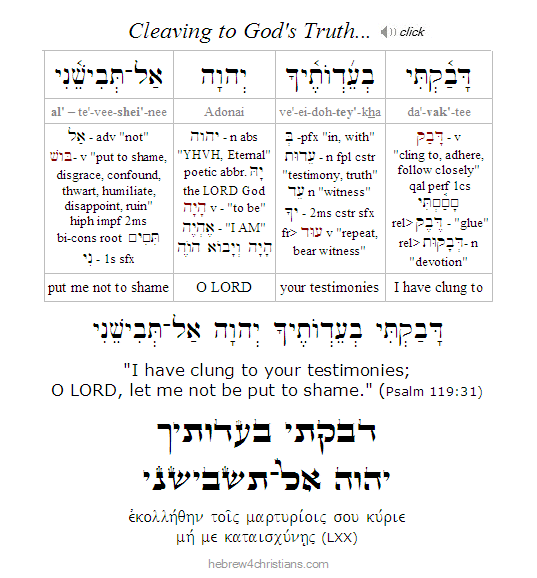 |
Mitzvah of Connection...

[ "Prayer is the root of all attachment and devotion to God. Prayer is the gate through which we approach God, and through prayer we may come to know Him." - Likutey Moharan II, 84 ]
07.27.23 (Av 9, 5783) The Hebrew word "mitzvah" (מִצְוָה) is often translated as "commandment," though its basic idea is about connection to God (i.e., the root צוה means to bind or unite). Being connected with the Almighty means talking with him, relating to him as your heavenly Father, and trusting that he esteems you as his beloved child. Whatever else you may think about the commandments of God, this idea of a love connection is foundational and essential. The very first of the Ten Commandments is anochi Adonai Elohekha, "I am the Lord your God" (אנכי יהוה אלהיך) which summons your heart to receive the touch of the Spirit of God. There is no love like that of the Lord, but you can't feel that love if you don't speak to Him, pouring out your heart and clinging to the truth of his love for you....
Hebrew Lesson
Psalm 62:8 Hebrew reading:
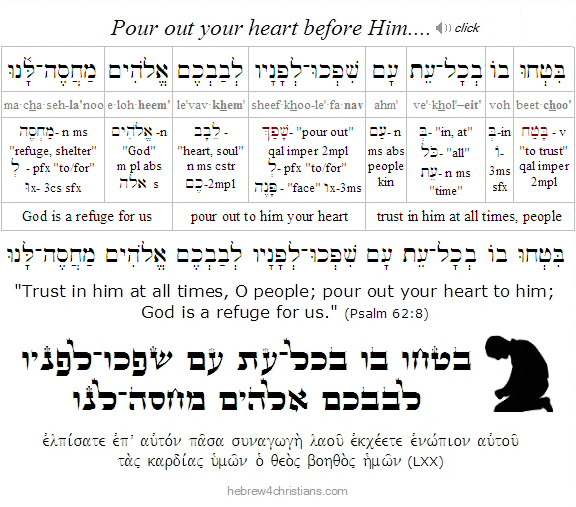 |
Privately pouring out your heart to God in an honest, transparent, and earnest way is sometimes called hitbodedut (הִתְבּוֹדְדוּת), a word that means "solitude." As we unburden our souls before the Lord, made empty so that can begin to truly listen, as it says, "In returning and rest you shall be saved; in quietness and in trust shall be your strength" (Isa. 30:15). Only after we sigh deeply and surrender are we receptive to the voice of the Spirit's whisper. "Blessed are all those who wait for Him" - אַשְׁרֵי כָּל־חוֹכֵי לוֹ (Isa. 30:18). We wait, we abide, even when God takes his time or does not immediately intervene. We do not lose heart, for we find strength when we trust in God's love... No prayer uttered to the one true God in the passion of truth will ever go unanswered. The Light of the world still shines: Yeshua, be my inner word, my heart, and my groaning for life today, and forevermore, amen.
Since the essence of Torah is connection to God, the greatest blessing is to be filled with a steadfast desire to draw close to him, to experience hunger and thirst (visceral yearning) for God's presence and touch. Holy desire – expressed in the yearning of heartfelt prayer – is therefore a state of true blessedness, and the more desperate our need for God the more blessed we are. It is our desire, our holy need, that creates a bond between our soul and its Creator, and that is the deeper meaning of mitzvah... "Blessed are those who hunger and thirst for righteousness, for they shall be satisfied" (Matt. 5:6).
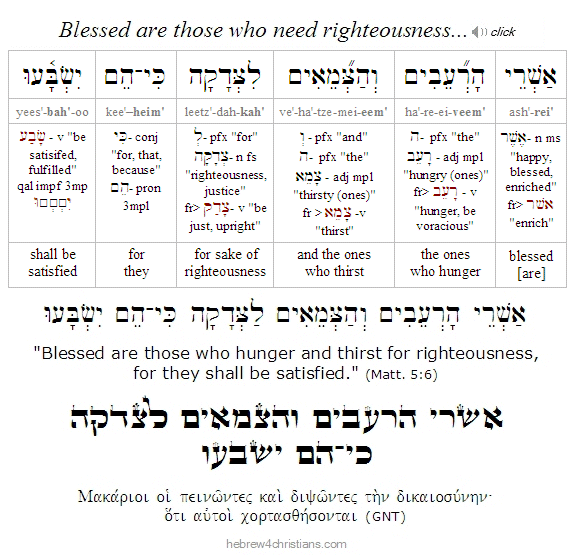 |
The Listening Heart...
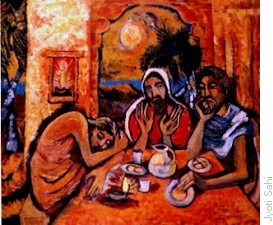
07.27.23 (Av 9, 5783) Being a disciple of Yeshua is to be bonded to his heart: He is our Teacher and his curriculum is the way of our lives... The danger we face is losing sight of his living truth by attending to other matters. For instance, we can substitute our heart connection with him by focusing on "lesser matters of the law" (Matt. 23:23), i.e., by being "religious," or we can fool ourselves by presuming that the law "has come to an end" in order to justify our sins (Matt. 5:17-18). Either way, however, whether we be Torah observant "legalists" or lawless "antinomialists," we disregard what Yeshua wants from us.
It is God's Spirit and truth that enable us to have an intimate heart connection with the Living God (אֱלֹהִים חַי). This connection is grounded, first of all, in the confession of our great need for God's healing and love, and secondly, in our gratitude (faith) for God's Presence in our lives. "If we walk in the light, as He is in the light, we have fellowship with one another" (1 John 1:7). It is the truth of Yeshua that sets us free, and the gift of the freedom that God gives us is to learn to walk with Him and to know him in all our ways (Prov. 3:6).
Hebrew Lesson
Prov. 3:6 Hebrew reading:
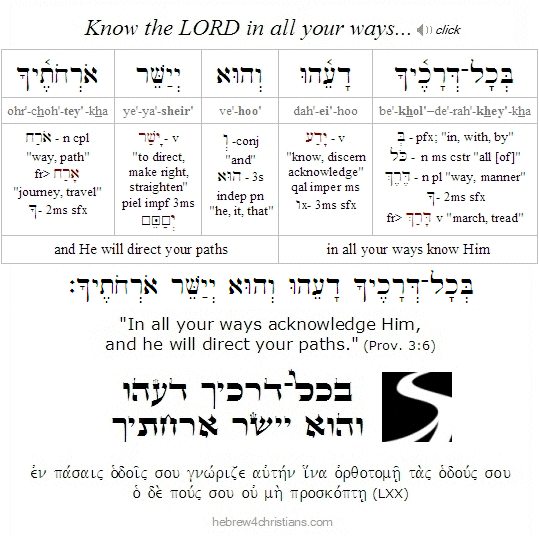 |
Praying to Pray...

[ "It is unbelievable what a person of prayer can achieve if he would but close the doors behind him." - Soren Kierkegaard ]
07.26.23 (Av 8, 5783) Our Torah portion for this week (i.e., Vaetchanan) begins, "And I pleaded (ואתחנן) with the LORD at that time, to say..." (Deut. 3:23), which implies that we must first pray in order to be able to pray, that is, we make ourselves ready to pray by finding the inner freedom and grace to groan before the LORD.... If you can't find the words to pray, or if you seem unwilling, then plead with the LORD and ask for the Holy Spirit to groan on your behalf (Rom. 8:26). Weep in order to weep; sigh in order to sigh; praise in order to praise. "Ask, and it will be given to you; seek, and you will find; knock, and it will be opened to you" (Matt. 7:7). "O Lord, open my lips, and my mouth will show forth your praise" (Psalm 51:15).
The need to pray with the proper focus, intention, and heart is surely one of our greatest needs... "Lord, teach us to pray" (Luke 11:1). The disciples were not asking for a formula or recipe prayer (such as might be recited from a prayer book), but for the right motivation, direction, and "Torah" of prayer... If we ask according to his will, God hears us (1 John 5:14), since we are speaking heaven's "language" of truth and humility. Therefore pray for the ability to pray earnestly, to commune in trust with your heavenly Father. The prayer of a righteous person has great power (James 5:16).
אדני שׂפתי תפתח
ופי יגיד תהלתך
a-doh-nai · se·fah·tai · teef·tach
oo·fee · ya·geed · te·heel·lah·te'·kha

"O Lord, open my lips,
and my mouth will declare your praise."
(Psalm 51:15)

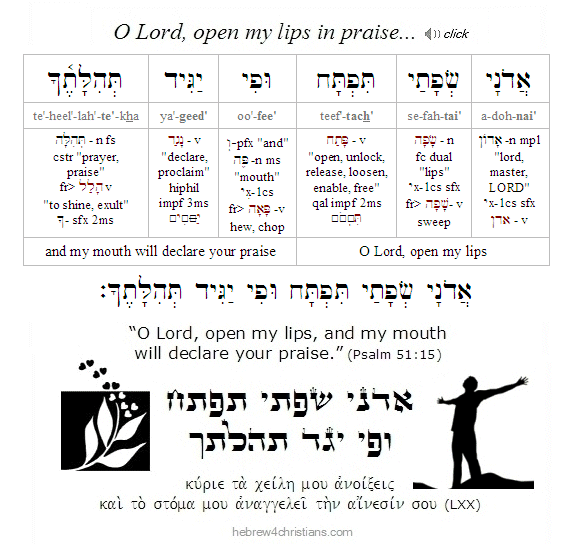
The Mark of Faith...
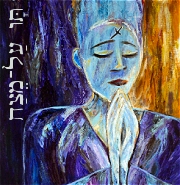
[ The following is related to both Tishah B'Av and this week's Torah portion (Vaetchanan). An idolatrous heart withdraws itself from God's Holy Presence (Ezek. 8:6)... ]
07.26.23 (Av 8, 5783) "For God so loved the world, that he gave his only begotten Son, that whoever believes in him would not perish, but have everlasting life...." Most of us are familiar with John 3:16, the great summary verse from the New Testament that explains the meaning of the redemption of Yeshua in light of the "bronze serpent" (נְחַשׁ נְחֹשֶׁת) that was lifted up upon a stake. When the people gazed upon the judged serpent they were delivered from the curse of death (see Num. 21:8-9). Yeshua explained to Nicodemus that just as that serpent was lifted up in judgment, so He would become accursed and lifted up, so that all who looked upon him in faith would live (John 3:14-16).
Now there is another "3:16" passage in Scripture that is powerful and relevant, especially for those who realize that the judgment of God is happening in our world today and yet seek comfort from the LORD during this dark time. The passage is from the Book of Malachi:
"Then those who feared the LORD spoke with each other, and the LORD listened to what they said. In His presence, a Scroll of Remembrance (סֵפֶר זִכָּרוֹן) was written to record the names of those who feared him and always thought about the honor of his Name. "They will be my people," says the LORD of Heaven's Armies (יְהוָה צְבָאוֹת). "On the day when I act in judgment, they will be my own special treasure. I will spare them as a father spares an obedient child. Then once more you shall see the distinction between the righteous and the wicked, between one who serves God and one who does not serve him.
"For indeed the day is coming, burning like a furnace, and all the arrogant evildoers will be chaff. The coming day will burn them up," says the LORD of the Armies of Heaven. They will be consumed-- roots, branches, and all. But for you who fear my name, the Sun of Righteousness (שֶׁמֶשׁ צְדָקָה) will rise with healing in his wings. And you will go free, leaping with joy like calves let out to pasture" (Mal. 3:16-4:2).
Amen. the LORD watches over his remnant... In his vision of the fall of the Temple in Jerusalem due to the apostasy of the people, the prophet Ezekiel overheard the LORD commissioning a mysterious "man clothed in linen, with a writing case at his side, saying, "Pass through the city, through Jerusalem, and put a mark (lit. a Tav, תָּו, which resembled a cross) on the foreheads of the people who sigh and groan over all the abominations that are committed in it." But to the others he said in my hearing, "Pass through the city after him, and strike. Your eye shall not spare, and you shall show no pity... but touch no one on whom is the mark" (Ezek. 9:2-ff).
The Man clothed in linen is Yeshua our Lord (Dan. 10:5-6, Rev. 1:11-16) and God has set his seal of ownership upon those trusting in him. This is the "sign of faith," Alef-Tav (את). The Holy Spirit within our hearts serves as pledge and a witness of that which is to come (2 Cor. 1:22). God's solid foundation stands firm, sealed with this inscription: "The Lord knows those who are his," and "Let everyone who names the name of the Lord depart from iniquity" (2 Tim. 2:19). The day draws near, chaverim: Let us be ready to meet our King.
Hebrew Lesson
Malachi 4:2 reading (click for audio):
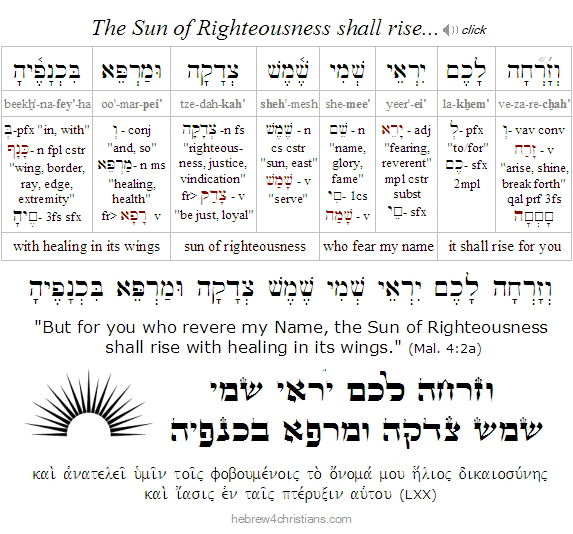 |
The Great Commandment...

07.26.23 (Av 8, 5783) Our Torah reading for this week (i.e., Vaetchanan) includes the first part of the Shema (שמע): "Hear, O Israel, the LORD is our God; the LORD alone, and you shall love (וְאָהַבְתָּ) the LORD your God with all your heart and with all your soul and with all your might" (Deut. 6:4-5). During its recitation we traditionally pronounce each word very carefully while covering our eyes with our right hand, focusing on the sovereignty of God and our primary need to love Him with our whole being.
Yeshua taught that the Shema was the "first" or "great" commandment of Torah (see Mark 12:28-31). Note that the opening declaration of the Shema includes three Divine Names: Lord (יהוה), God (אלהים), and Lord (יהוה) again, which suggests the multiplicity-in-oneness (unity) that the word "echad" implies (see below). The two letters Ayin (ע) and Dalet (ד) are written enlarged in the opening verse of the Shema. Together, these letters form the word 'ed (עֵד), which means "witness," suggesting that we recite the Shema to testify of the greatness of God and our duty to love Him bekhol levavkha, (בּכָל־לְבָבְךָ) with all our being.
שְׁמַע יִשְׂרָאֵל יְהוָה אֱלהֵינוּ יְהוָה אֶחָד
she·ma · Yis·ra·el · Adonai · e·loh·hey'·noo · Adonai · e·chad

"Hear, O Israel, the LORD is our God, the LORD alone."
(Deut. 6:4)

Hebrew Study Card / Shema Reader Page
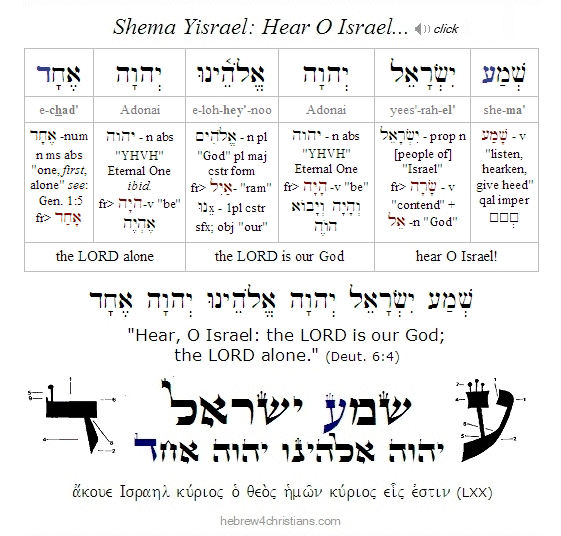
The Shema is commonly translated as: "The LORD our God, the LORD is one" (יְהוָה אֱלהֵינוּ יְהוָה אֶחָד), though the word "one" here (i.e., echad: אֶחָד) should not be thought to imply "pantheistic monism," that is, the idea that everything ultimately is God or that everything is a mystical "oneness." In Hebrew, the word echad (אֶחָד) implies unity in diversity, not absolute numerical identity (the word for one and only one, i.e., "unique," is yachid (יָחִיד)). For example, in Exodus 26:6 the parts of the Tabernacle (Mishkan) are to be constructed so that "it shall be one (echad) tabernacle," and the prophet Ezekiel spoke of two "sticks" (representing fragmented Israel) as being reunited into one: "and they shall be one (echad) stick in My hand" (Ezek. 37:19).
Echad can also mean "first" or "preeminent," as describing "the first day" of the creation as "yom echad (יוֹם אֶחָד) in Geneis 1:5, and this, I believe, is the sense of "echad" used in the Shema, since it affirms that that the LORD alone is God and there is no other god beside Him.
Moses further used the word echad in Genesis 2:24 to describe the depths of love: "And they (husband and wife) will become one flesh (basar echad)." God's attributes as Compassionate Source of life, Eternal Judge, and Savior, are unified and affirmed in this verse. Ultimate Reality is multidimensional, personal and loving, and that is part of the very essence of God.
The kabbalistic view that the "LORD is one" suggests that good and evil are "coequal" aspects of oneness, and that "God" is more like Hinduism's univeral soul than the transcendent personal Creator who made everything and who reigns over all possible worlds as Master and King. "Woe to those who call evil good, and good evil; Who put darkness for light, and light for darkness; Who put bitter for sweet, and sweet for bitter! Woe to those who are wise in their own eyes, and shrewd in their own sight!" (Isa. 5:20-21). Good and evil are not "emanations" or "sefirot" that are resolved into cosmic oneness. There is no such thing as a "Person" - either human or Divine - that exists in an absolute vacuum, outside of relationship. Absolute monism is inconsistent with the idea of Divine Personhood, just as Aristotle's "Unmoved Mover" is a logical absurdity.
There is a "three-in-one" sacred place of the heart (represented by the inmost chamber of the Mishkan called the Holy of Holies) which contains the "three-in-one" sacred Throne of the Divine Presence (represented by the Ark of the Covenant covered by sacrificial blood that signifies the cross of Messiah), before which the "three-in-one" blessing of God is heard (represented by the the priestly benediction when the Sacred Name YHVH was uttered), as we affirm the great "three-in-one" affirmation of faith known as the Shema: "Hear, O Israel, the LORD our God is One LORD," which declares our duty to love God with the "three-in-one existence" he has given us: with all our heart (be'khol levavkha), with all our soul (be'khol nafshekha), and with all our strength (be'khol me'odekha).
At the revelation at Sinai, "the mountain burned with fire to the heart of heaven" (בָּאֵשׁ עַד־לֵב הַשָּׁמַיִם), wrapped in darkness, cloud, and heavy mist" (Deut. 4:11). Yet what is this divine Fire if it is not the very passion of God - a passion that descends from the "heart of heaven" to the place of revelation within the human heart? Indeed the fire is none other than the Word of God, "the Voice that speaks from the midst of the fire" (קוֹל אֱלהִים מְדַבֵּר מִתּוֹךְ־הָאֵשׁ) the truth revelation (see Exod. 3:2, Deut. 4:33). As the Spirit asks: "Who has ascended to heaven and come down? Who has gathered the wind in his fists? Who has wrapped up the waters in a garment? Who has established all the ends of the earth? What is his name, and what is his Son's name? Surely you know" (Prov. 30:4).
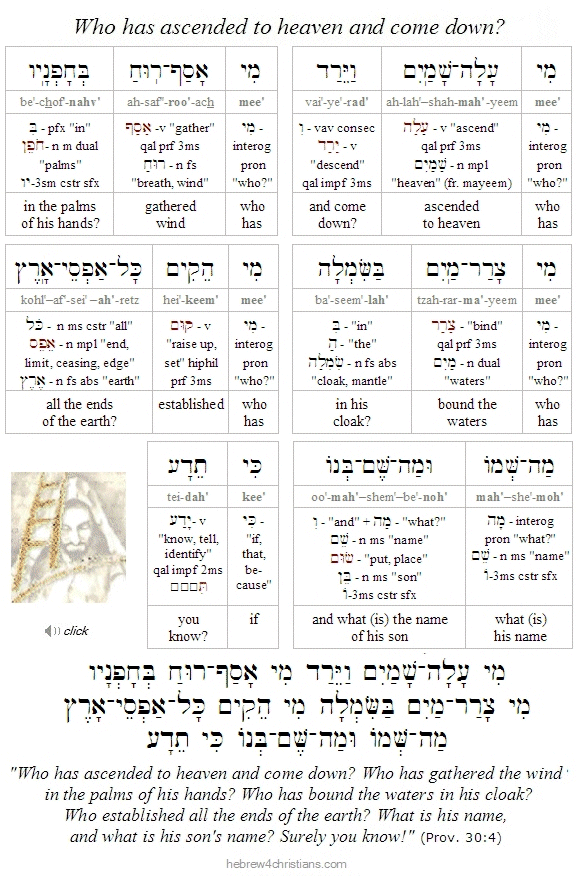 |
Yeshua is the Center of Creation - its beginning and end. As it is written: אָנכִי אָלֶף וְתָו רִאשׁוֹן וְאַחֲרוֹן ראשׁ וָסוֹף / "I am the 'Aleph' and the 'Tav,' the First and the Last, the Beginning and the End" (Rev. 22:13). "For from him and through him and to him are all things. To him be glory forever. Amen" (Rom. 11:36). Indeed he is called מֶלֶךְ מַלְכֵי הַמְּלָכִים / Melech Malchei Hamelachim: The "King of kings of kings" and the LORD of all possible worlds -- from the highest celestial glory to the dust of death upon a cross. Yehi shem Adonai mevorakh (יְהִי שֵׁם יהוה מְברָךְ): "Let the Name of the LORD be blessed" forever and ever (Psalm 113:2).
Note: In Hebrew, the "heart" of something represents its core. center, and essence. Revelation is a matter of the heart, written by the God's Spirit, yielding a life of praise and thanks to the Lord. For more information about the Shema and its blessings, or to download Shema study pages, please see the Shema section of the site. Shalom.
Prayer Request: Serious thunderstorms came through our area early this morning and my main computer crashed. I lost work for the last couple days. Also the computer power supply has repeatedly failed so I either need to replace that or look to getting a replacement PC. The problem with the latter solution is migrating older apps I use for the website to a new computer, as there are often compatibility issues and things don't work... Your prayers for the health of the "tech side" of this ministry are appreciated, chaverim.
Endurance and Hope...

07.26.23 (Av 8, 5783) Sometimes we feel overwhelmed in our lives. There's so much going on; troubles, uncertainties, and so on. The world seems out of control; disinformation and "mind games" are the substance of the "postmodern news." We've become alienated, disorientated, and anxious; our emotions get the better of us, and we lapse into fearful thinking.... We are tempted to despair over our sins, our sufferings, and our ignorance.
At such times it is essential to redirect our attention by turning to God in "teshuvah" (תְשׁוּבָה) or "repentance." Teshuvah is our response to the question given by our life circumstances. Deliberately seeking God's presence in the midst of our struggles is sometimes called "kavanah" (כַּוָנָה), a word that means "focus," "attention," or "concentration."
"When the enemy shall come in like a flood, the Spirit of the Lord shall lift up a standard against him" (Isa. 59:19). Set your heart in trust before God and reaffirm that his presence is both with you and for you. Despite the apparent chaos, look up and find your bearings. When we turn to the Lord with all our heart — with "all-that-is-within me" earnestness — then he will guide us and make our paths straight, despite ourselves... As it written in our Torah portion this week (Vaetchanan): "If from there you will seek the LORD your God, then you will find Him if you seek Him with all your heart and with all your soul" (Deut. 4:29). The "there" mentioned in this pasuk (verse) is the "there" of where we find ourselves, in our exile, awaiting the completion of our redemption... In this context teshuvah means believing that concealed good is present, despite the adversities we face...
Some people think they should turn to God for help only with their big problems, but not with the everyday struggles and inner conflicts that we face on a daily basis. This is a serious mistake. If God wants us to seek him be'khol levavkha -- "with all our heart," then understand that God wants all of us — and that includes our daily concerns, our missteps and sins, our sorrows and our joys. We turn to God in all that we are and in all that we do....
Yeshua taught us that the essence of Torah is mercy (Matt. 9:13; Matt. 23:23), and that God is close "in all our calling to Him" (Deut. 4:7), that is, in every appeal of our heart for Him. The Talmud says the central verse of Torah is "Know Him in all your ways" (Prov. 3:6), since by seeking the will of our heavenly Father, we attain the mitzvah (connection) of Torah.
The Hebrew word for trouble is "tzarah" (צָרָה), from the root idea of "constricting" or being bound (i.e., צָרַר). Indeed the land of Egypt, the house of slavery, is called mitzrayim (מִצְרַיִם), from a cognate root (צוּר) that means to "bind." This suggests that a narrow perspective is unable to understanding the "big picture." Of course it is impossible for us to fully fathom God's ways (Isa. 55:8), though we can rely on Him to lead us and to trust that our testing in this life is not in vain. That is why the sages remark that the Hebrew word lamah (לָמָה) "why?" also spells the word le'mah (לְמָה) meaning "for what?" In other words, instead of asking why afflictions befall you, ask how they may help you grow closer to God...
"Relax, nothing is in your control," though everything is in the hands of your Heavenly Father who is faithful and who has has promised to guide your way. Amen.
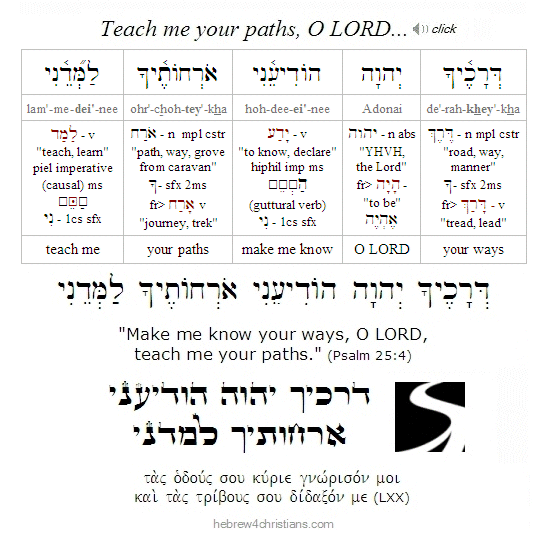 |
Return to your heart...

[ The following is related to our Torah reading for this week, parashat Vaetchanan... ]
07.25.23 (Av 7, 5783) The state of this evil world has absolutely nothing to say regarding the life of faith in the LORD (יהוה)... Our duty is to live before the Divine Presence at all times -- regardless of whatever our circumstances. "In relationship to God one can not involve himself 'to a certain degree.' God is precisely the contradiction to all that is 'to a certain degree'" (Kierkegaard). A believer must be contemporary with Christ's presence on earth, since the Eternal entered historical time to offer a timeless relationship with all who would believe. Our Lord touches us because He connects with our hearts in the present hour...
So what do you truly believe? What do you love? How do you "relate" to life? For those who trust in the Presence of God in Yeshua, nothing "happens" randomly or at a distance from our Heavenly Father's care... We do not know Yeshua as some hoary figure of the past, nor as a remote hope of the heart, but in the blood and guts of our daily struggle -- in the midst of our connection with him as we journey in faith. God's love is not a secondhand gift... Yeshua asks each of us: 'Who do you say that I am?' (Mark 8:29) and awaits for us to "show up" in our faith to reach out to Him.
From our Torah portion this week (i.e., Vaetchanan) we read, "Know therefore today and return to your heart (והשׁבת אל־לבבך), for the LORD is God in heaven above and on the earth beneath; there is no other" (Deut. 4:39). Here again we see the centrality of the heart as the mode to encounter God (Luke 17:21). Savor the phrase, "Know therefore today and return to your heart..." It the heart that is the place of connection with God... As Yeshua said, "Behold, I stand at the door and knock. If anyone hears my voice and opens the door, I will come in to him and eat with him, and he with me" (Rev. 3:20). Today is the day to "return to your heart" and receive again God's love for your soul...
Hebrew Lesson
Deut 4:39 Hebrew reading (click):
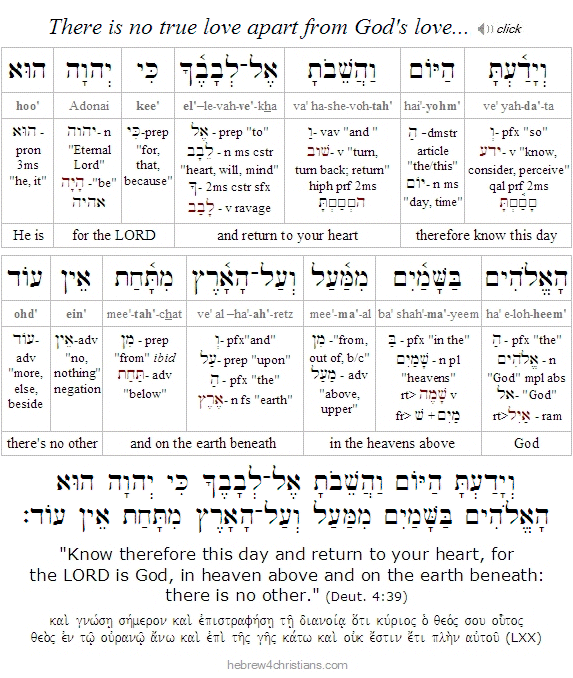 |
The City of the King...
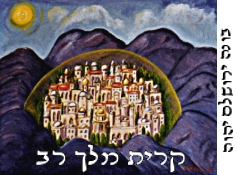
[ The following is related to the fast of Tishah B'Av, which begins sundown Wed. July 26th.... ]
07.25.23 (Av 7, 5783) The somber holiday of Tishah B'Av recalls the tragic anniversary of the "sin of the spies" and God's subsequent decree that the generation redeemed from Egypt would die in exile from the promised land (Num. 14:26-37), though providentially it also marks the date of the destruction Temple in Jerusalem (both the first and second Temple) and the subsequent exile of the Jewish people. Because it remembers the loss of the vision of Zion, this date is observed with fasting, heartfelt lamentation and fervent calls for teshuvah (repentance).
Jerusalem (or Zion) is central to the Jewish heart since it represents all the promises of the Lord spoken by the Hebrew prophets to Israel... When religious Jews pray three times a day, they always turn toward the Holy City (i.e., mizrach: מזרח "east"). Synagogues likewise place the holy ark (the place where Torah scrolls are kept) on the wall closest to Jerusalem. Many observant Jews keep small section of an eastern wall of their house unpainted as a sign of mourning for the destruction of the Temple. Every year we close the Passover Seder with the words, La-Shanah Haba'ah Bi Yerushalayim! ("Next year in Jerusalem"). These same words are invoked to conclude the holiest day of the Jewish year, Yom Kippur. Indeed Yeshua called Jerusalem the "City of the great King" (Psalm 48:2; Matt 5:35): It is the place where He was crucified, buried, resurrected, and from where He ascended to heaven. It is also the birthplace of the true church (כלה של משיח) and the focal point of humanity's eschatological future. At the Second Coming, Yeshua will physically return to Jerusalem to restore the throne of King David. Then all the New Covenant promises given to Israel will be fulfilled as the Kingdom of God is manifest upon the earth.
God loves Zion since it symbolizes His redemptive program in human history. In a sense, Zion is the heart of the Gospel message and the focal point of God's salvation in this world. Zion represents our eschatological future -- our home in olam haba (the world to come). Even the new heavens and earth will be called Jerusalem -- "Zion in her perfection" (Rev. 21). "This is what Adonai Tzeva'ot says: I am very jealous for Jerusalem and Zion, but I am very angry with the nations that feel secure" (Zech. 1:14-15). "For Zion's sake I will not keep silent, for Jerusalem's sake I will not remain quiet, till her righteousness shines out like the dawn, her salvation like a blazing torch" (Isa 62:1). "The builder of Jerusalem is God, the outcasts of Israel he will gather in... Praise God, O Jerusalem, laud your God, O Zion" (Psalm 147:2-12).
Hebrew Lesson
Psalm 137:5 Hebrew reading (click):
For more on this, see "The Significance of Zion and the Tragedy of Tishah B'Av."
Comfort and Hope...

07.25.23 (Av 7, 5783) From this week's Torah (i.e., parashat Vaetchanan) we read: "if you seek for the LORD your God from there, you will find him, if you search for him with all your heart (בְּכָל־לְבָבְךָ) and with all your soul" (Deut. 4:29). From where do we search, from what place, except while we are in exile, after hardship, testing, and tribulation? If you seek for the LORD your God from there - in the midst of your exile, in the midst of your heart's cry - you will find him there, in your heart. This message is a prophecy, so that even after testing befalls you, in the end you will belong to the LORD and will hear his voice.
"Where is God to be found?" asks the Kotzker Rebbe, but "in the place where He is given entry!" As the Apostle Paul wrote, "The word is near you, in your mouth and in your heart" (that is, the word of faith that we proclaim); because, if you confess with your mouth that Yeshua is LORD and believe in your heart that God raised him from the dead, you will be saved. For with the heart one believes and is justified, and with the mouth one confesses and is saved. For the Scripture says, "Everyone who believes in Him will not be put to shame." For there is no distinction between Jew and Greek; for the same LORD is LORD of all, bestowing his riches on all who call on him. For "everyone who calls on the name of the LORD will be saved" (Rom. 10:8-13). Even in the face of the tribulations and distresses we may encounter in this world, the lovingkindess (chesed) of the Lord is always present for those who look to Him in trust (Lam. 3:22-23).
Hebrew Lesson:
Lamentations 3:22-23 reading (click):
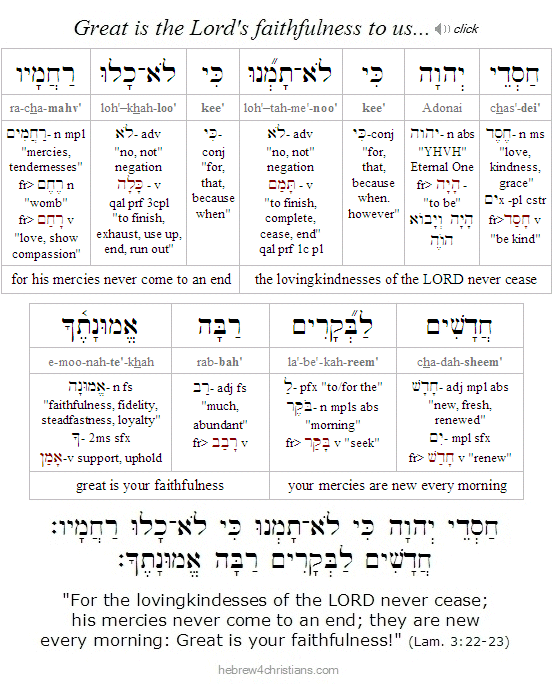 |
The Battle Belongs to the Lord...
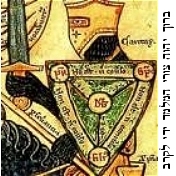
07.24.23 (Av 6, 5783) In light of the threat of an invasion from the east, King Jehoshaphat (המלך יהושפט) of Judah prayed: "O LORD, God of our fathers (יהוה אֱלֹהֵי אֲבֹתֵינוּ), are you not God in heaven? You rule over all the kingdoms of the nations. In your hand are power and might, so that none is able to withstand you... O our God, will you not judge them? For we are powerless against this huge army that attacks us; we do not know what to do: but our eyes are upon you (כִּי עָלֶיךָ עֵינֵינוּ)... After he prayed, the Spirit of God spoke forth: "Thus says the LORD to you, 'Do not be afraid and do not be dismayed at this great horde, for the battle is not yours but God's'" (2 Chron. 20). Amen, Lord, our eyes are upon you...
This teaches us the great principle of our spiritual warfare: "the battle is not yours but God's" (לֹא לָכֶם הַמִּלְחָמָה כִּי לֵאלֹהִים). So be encouraged in the midst of your struggle. Listen for that song singing: "Do not be afraid and do not be dismayed... for the LORD will be with you." (2 Chron. 20:15). Recall what King David said to the giant Goliath: "The LORD saves not with sword and spear. For the battle is the LORD's, and he will give you into our hand" (1 Sam. 17:47). Therefore may we look to the Lord and remain steady in our times of testing, friend!
 |
Hebrew Lesson:
Devakut: Cleaving to God...
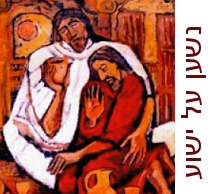
[ The following is related to parashat Vaetchanan, which is always read on the Sabbath following Tishah B'Av, called Shabbat "Nachamu", or "the Sabbath of Comfort." ]
07.24.23 (Av 6, 5783) Our Torah portion this week, which is customarily read on the Sabbath following Tishah B'Av, says: "But you who have cleaved to the LORD your God are all alive today" (Deut. 4:4). The Hebrew word translated "cleave" is davak (דָּבַק), first used in the Torah to describe how a man would leave his father and mother to cleave to his wife so they would become "besar echad" (בָשָׂר אֶחָד), or "one flesh" (Gen. 2:24). The word is also used to describe how Ruth clung to Naomi (Ruth 1:14), how David pursued enemy armies (2 Sam. 23:10), how Solomon was attached to his foreign wives (1 Kings 11:2), how Job's bones stuck to his flesh (Job 19:20), how leviathan's scales were glued together (Job 41:17), how metal was welded together (Isa. 41:7), how the LORD cleaves to Israel (Jer. 13:11), and so on. It also is the word used to describe how Yeshua's tongue was so dried out that it stuck to his jaws as he agonized upon the cross (Psalm 22:15). Incidentally, in Modern Hebrew word for "glue" is devek (דֶבֶק), which also comes from the same root...
Another word that derives from davak is the noun form devakut (דְּבָקוּת), which means "cleaving" in devotion or attachment to God. Such cleaving to the LORD can be thought of as "stick-to-itiveness" or pertinacity, though it might better be understood as a form of clinging in dependency, surrender, and heart-desperation. So understood, devakut is a form of communion with and a reliance upon God for the blessing of life...
Cleaving to God is a day-to-day, moment-by-moment trusting of the heart. As Yeshua said: "Take therefore no thought for tomorrow: for tomorrow shall take thought for the things of itself. Sufficient for the day its own trouble" (Matt. 6:34). Live one day at a time. The LORD gives us daily bread (לֶחֶם חֻקֵּנוּ) so that we may persevere for this day. "For he is our God, and we are the people of his pasture and the sheep of his hand today -- if you hear his voice" (Psalm 95:7). Today, if you hear his voice, do not harden your heart (Heb. 3:15). "Take care, brothers, lest there be in any of you an evil, unbelieving heart, leading you to fall away from the living God, but encourage one another every day, as long as it is called "today," so that none of you may be hardened by the deceitfulness of sin" (Heb. 3:12-13).
Hebrew Lesson
Deut. 4:4 Hebrew reading (click):
Ruth and Naomi
Shavuah Tov Podcast:
Parashat Vaetchanan...

07.23.23 (Av 5, 5783) Shavuah tov, chaverim. Our Torah reading for this week (i.e., Vaetchanan) is always read on the Sabbath that immediately follows the somber holiday of Tishah B'Av (תשעה באב). In Jewish tradition, this special Sabbath is called "Shabbat Nachamu" (שַׁבַּת נַחֲמו), "the Sabbath of Comfort" and assigned the prophetic portion from the Book of Isaiah that begins with the famous phrase: נַחֲמוּ נַחֲמוּ עַמִּי - Nachamu, Nachamu ami - "Comfort, O comfort ye, my people..." (Isa. 40:1). With the advent of this special Sabbath, we have just seven weeks to prepare for the new year (i.e, Yom Teruah or "Rosh Hashanah") and the High Holidays - a "jubilee" season that heralds the return of Yeshua.
Hebrew Lesson
Isaiah 40:1 reading (click for audio):
Va'etchanan: Moses' Plea...

[ Our Torah reading for this week, parashat Vaetchanan, is always read on the Sabbath immediately following Tishah B'Av, called Shabbat "Nachamu", or "the Sabbath of Comfort." ]
07.23.23 (Av 5, 5783) This week we will study parashat Vaetchanan (פרשת ואתחנן), a rich Torah portion that includes some of the most foundational texts of the Jewish Scriptures, including the Ten Commandments, the Shema (the duty to love God and study His Torah), as well as the commandments of tefillin and mezuzot. In addition, in this portion Moses predicted the worldwide exile and the eventual redemption of the Jewish people in acharit hayamim (the prophesied "End of Days").
The Torah portion begins with Moses' plea to the LORD to be allowed entry into the Promised Land, despite God's earlier decree (see Num. 20:8-12; 27:12-14). The Hebrew word va'etchanan (וָאֶתְחַנַּן) comes from the verb chanan (חָנַן), which means to beseech or implore. It derives from the noun chen (חֵן), grace, implying that the supplication appeals to God's favor, not to any idea of personal merit (in Jewish tradition, tachanun (תַּחֲנוּן) are prayers recited after the Amidah begging for God's grace and mercy). Moses was asking God to show him grace by reversing the decree that forbade him to enter the Promised Land.
Hebrew Lesson
Deut:3:23 reading (click for audio):
In addition to our Torah readings, on the 15th day of the month of Av we observe chag ha-ahavah (חַג הָאַהֲבָה), or "the holiday of love." Since it marks the "last" festival of the Jewish year, prophetically the 15th of Av (called Tu B'Av) pictures our marriage to the Lamb of God (Seh Elohim), the LORD Yeshua our beloved Messiah. On a soon-coming day those who belong to the LORD and are faithful to follow His ways will be blessed with the unspeakable joy of an eternally intimate relationship with Him. This is heaven itself - to be in the Presence of the LORD and to be regarded as His beloved (Rev. 19:6-9). Maranatha.
Somber Time of Tishah B'Av...
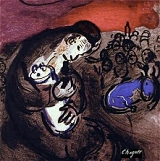
07.23.23 (Av 5, 5783) Tishah B'Av (תשעה באב, or the "ninth [day] of [the month of] Av") is an annual day of mourning that recalls the many tragedies that have befallen the Jewish people over the centuries, but most especially the destruction of the Holy Temple and the ongoing galut (exile) of Israel. This year Tishah B'Av begins Wednesday, July 26th at sundown and runs 25 hours until Thursday July 27th, one hour after sundown. The customs for observing the fast are similar to those of Yom Kippur.
Tishah B'Av is generally regarded as the saddest day of the Jewish year (even sadder than Yom Kippur) since it was on this date that both the First and the Second Temples were destroyed and the Jewish people were forced into exile. The root of these tragedies is said to go back to the Exodus from Egypt, when the LORD decreed a 40 year exile from the Promised Land because of the Sin of the Spies on the ninth of Av. In addition, Aaron died on Av 1 (Num. 33:38), and this was said to foreshadow the destruction of the Temple. The sages call this prophetic principle: ma'aseh avot siman labanim (מַעֲשֵׂה אֲבוֹת סִימָן לַבָּנִים): "The deeds of the fathers are signs for the children."
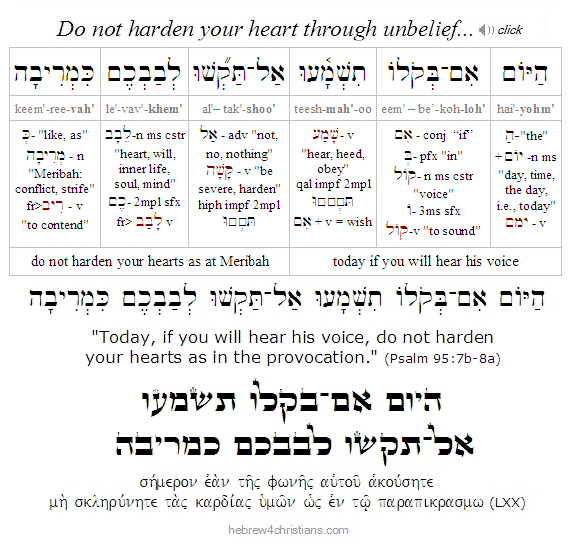 |
Tishah B'Av allows us to express heartfelt grief over the loss of Zion and therefore over the fraility of our human condition. During this time it is appropriate to grieve over our sins and to shed tears that attest to having lev nishbar ve'nidkeh, a "broken and crushed heart" (Psalm 51:17). Indeed, during the entire "Three Weeks of Sorrow" we read selections from the prophets that forewarn of the coming destruction of the Temple (churban) and the subsequent exile of the Jewish people (galut). During this time of the year, we listen to the lamentations of the prophet Jeremiah crying out for our repentance...
During Tishah B'Av synagogue services, the lights are dimmed and the Aron Hakodesh (Holy Ark) is draped in black (in some synagogues the parochet (curtain) is removed as a sign of mourning). The crowns with tinkling bells are removed from Torah scrolls. Congregants remove their leather shoes and do not greet each other. The cantor leads the prayers readings in a low, mournful voice, and the cantillation (chanting style) for the Scripture reading is set to elegiac, sorrowful melodies.
 |
Daily Perush Podcast:
God's Glory and Tishah B'Av...
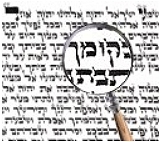
07.23.23 (Av 5, 5783) Shalom chaverim. In this "Daily perush broadcast" (see link below) I provide a quick exegesis and reading of a significant phrase in King Solomon's prayer at the dedication of the First Temple, namely, "Behold heaven and the heaven of heavens cannot contain you" (2 Chron. 6:18b), and then reflect on the meaning of these words in relation to the destruction of the Temple in Jerusalem.
Hebrew Lesson
2 Chron. 6:18b reading (click):
Yearning for Heaven...

07.21.23 (Av 3, 5783) It is an ongoing struggle to live in this world without being devoured by its fear, insanity, and violence. Yeshua prayed for his followers saying, "I am not asking you to take them from the world but to keep them from the evil one. They do not belong to the world any more than I belong to this world" (John 17:15-16).
To live in the world without belonging to the world marks the life of the tzaddikim who are seeking the house of love, the place where God abides. Even though we are given "traveling mercies" for our journey in this world, we must lift our heart toward heaven, desisting the world and its vanities, and regarding the place of God's heart to be our true home.
Abraham closed his eyes to this world and was given the inner light of truth that would reveal his way to God. "By faith Abraham obeyed when he was called to go out to a place that he was to receive as an inheritance. And he went out, not knowing where he was going. By faith he sojourned in the land of promise as in a strange land, living in tents with Isaac and Jacob, heirs with him of the same promise. For he was looking forward to the city that has foundations, whose designer and builder is God" (Heb. 11:8-10). For here we have no lasting city, but we seek the city that is to come (Heb. 13:14).
So let us lift up our souls unto the LORD and refuse to live in fear. Let us stand strong in faith, trusting God's promise even if we are sometimes in darkness. And let us take hope in God word: "Blessed is the one who makes the LORD his trust" (Psalm 40:4).
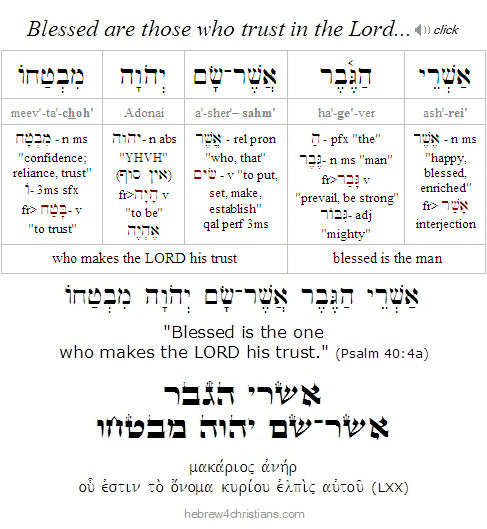 |
The Tishah B'Av Prophecies...
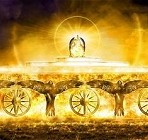
07.21.23 (Av 3, 5783) Yeshua foretold the destruction of the Second Temple when he lamented: "O Jerusalem, Jerusalem, the city that kills the prophets and stones those who are sent to it! How often would I have gathered your children together as a hen gathers her brood under her wings, and you were not willing! Behold, your house is left unto you desolate. For I tell you, you will not see me again, until you say, Barukh Haba Ba'shem Adonai: 'Blessed is he who comes in the name of the Lord.' Yeshua then left the Temple and was going away, when his disciples came to point out to him the buildings of the Temple. But he answered them, "You see all these, do you not? Truly, I say to you, there will not be left here one stone upon another that will not be thrown down." (Matt. 23:37-24:2).
Note that we are not awaiting the construction of the "Third Temple" which will be hastily erected during the time of Jacob's Trouble during the Great Tribulation, but we await the "Fourth Temple," that is, the Temple that will be built by Tzemach Tzaddik (צֶמַח צַדִּיק), namely, Messiah the Son of David (מָשִׁיחַ בֶּן־דָוִד) who will come again to establish the Kingdom of Zion upon the earth in fulfillment of the promises of God (Zech. 6:12; Jer. 23:5). At that glorious time the mourning of the Jewish people will forgotten, as it is written: "Thus says Adonai Tzeva'ot (יהוה צְבָאוֹת): The fast of the fourth month (Tammuz), and the fast of the fifth month (Tishah B'Av), and the fast of the seventh month (Gedaliah), and the fast of the tenth month (Asarah b'Tevet), will be to the house of Judah for joy and rejoicing and for pleasant appointed seasons. Therefore love truth and peace" (Zech. 8:19). In that coming day, "The LORD will be king over all the earth. On that day the LORD will be one and his name one."
וְהָיָה יְהוָה לְמֶלֶךְ עַל־כָּל־הָאָרֶץ
בַּיּוֹם הַהוּא יִהְיֶה יְהוָה אֶחָד וּשְׁמוֹ אֶחָד
ve·hah·yah · Adonai · le·me'·lekh · al-kohl-hah·ah'·retz
bai·yohm · ha·hoo · yee·he·yeh · Adonai · e·chad · oo·she·moh · e·chad

"And the LORD will be king over all the earth.
On that day the LORD will be one and his name one."
(Zech. 14:9)

Click to listen and learn the Hebrew text:
As I've mentioned over the years, the word "Zion" (i.e., tziyon: צִיּוֹן) is mentioned over 160 times in the Scriptures. That's more than the words faith, hope, love, and countless others... And since Zion is a poetic form of the word Jerusalem, the number of occurrences swells to nearly 1,000! It is therefore not an overstatement to say that God Himself is a Zionist.... "Out of Zion, the perfection of beauty, God shines forth" (Psalm 50:2). Zion represents the rule and reign of God in the earth and is therefore synonymous with the Kingdom of God. The entire redemptive plan of God -- including the coming of the Messiah Himself and our very salvation -- is wrapped up in the concept of Zion. It is the "historiography" of God -- His "philosophy of history," if you will.
In a sense, the great vision of Zion is the heart of the Gospel message and the focal point of God's salvation in this world. Zion represents our eschatological future -- our home in olam haba (the world to come). Even the new heavens and earth will be called Jerusalem -- "Zion in her perfection" (Rev. 21). "This is what Adonai Tzeva'ot says: I am very jealous for Jerusalem and Zion, but I am very angry with the nations that feel secure" (Zech. 1:14-15). "For Zion's sake I will not keep silent, for Jerusalem's sake I will not remain quiet, till her righteousness shines out like the dawn, her salvation like a blazing torch" (Isa 62:1). "The builder of Jerusalem is God, the outcasts of Israel he will gather in... Praise God, O Jerusalem, laud your God, O Zion" (Psalm 147:2-12).
It is worth noting that in the discussion from the Talmud, the 6,000 years of human history are divided into three epochs of 2,000 years each. The period of "tohu" occurred from the time of the fall of Adam until the call of Abraham; the period of "Torah" occurred from Abraham until the time of the destruction of the Second Temple, and the period of the "Messiah" refers to the time when the Messiah could appear before the Kingdom is established in Zion. The time immediately preceding the appearance of the Messiah will be a time of testing in which the world will undergo various forms of tribulation, called chevlei Mashiach (חֶבְלֵי הַמָּשִׁיחַ) - the "birth pangs of the Messiah" (Sanhedrin 98a; Ketubot, Bereshit Rabbah 42:4, Matt. 24:8). Some say the birth pangs are to last for 70 years, with the last 7 years being the most intense period of tribulation -- called the "Time of Jacob's Trouble" / עֵת־צָרָה הִיא לְיַעֲקב (Jer. 30:7). The climax of the "Great Tribulation" (צָרָה גְדוֹלָה) is called the great "Day of the LORD" (יוֹם־יהוה הַגָּדוֹל) which represents God's wrath poured out upon a rebellious world system. On this fateful day, the LORD will terribly shake the entire earth (Isa. 2:19) and worldwide catastrophes will occur. "For the great day of their wrath has come, and who can stand?" (Rev. 6:17). The prophet Malachi likewise says: "'Surely the day is coming; it will burn like a furnace. All the arrogant and every evildoer will be stubble, and that day that is coming will set them on fire,' says the LORD Almighty. 'Not a root or a branch will be left to them'" (Mal. 4:1). Only after the nations of the world have been judged will the Messianic kingdom (מַלְכוּת הָאֱלהִים) be established upon the earth. The remnant of Israel will be saved and the 1000 year reign of King Messiah will then commence (Rev. 20:4).
 |
The concept of the King Messiah, the "Anointed One" who would one day come to deliver his people from oppression at the beginning of an era of world peace has been the sustaining hope of the Jewish people for generations. King Messiah is the instrument by whom God's kingdom is to be established in Israel and in the world. This hope runs throughout the entire Tanakh. According to rabbinical Judaism (following Maimonides), this Messiah figure is not divine, though he certainly has divine powers and attributes. Indeed, he functions as Israel's Savior who would be empowered by God to:
- Restore the Kingdom of David (Jer. 23:5, Jer 30:9, Ezek. 34:23)
- Restore the Temple in Zion (Isa. 2:2, Micah 4:1, Zech. 6:13, Ezek. 37:26-28)
- Regather the exiles (Isa. 11:12, 43:5-6, 51:11)
- Offer the New Covenant to Israel (Jer. 31:31-34)
- Usher in world peace and the knowledge of the true God (Isa. 2:4; 11:9). This will include the entire world speaking Hebrew (Zeph. 3:9).
- "Swallow up" death and disease (Isa. 25:8)
- Raise the dead to new life (Isa. 26:19)
- Spread Torah knowledge of the God of Israel, which will unite humanity as one. As it says: "God will be King over all the world -- on that day, God will be One and His Name will be One" (Zech. 14:9)
According to this general framework of history, we are currently living in the "days of the Messiah," just before the time of great worldwide tribulation that will lead to the prophesied acharit hayamim (אַחֲרִית הַיָּמִים), or the "End of Days." This is the age in which the spirit of the Messiah is available to all. These are "days of God's favor" that are ending soon. According to traditional Jewish sources (Pesachim 54b; Midrash Tehilim 9:2), no one knows the exact time when the Messiah will appear -- though there are some hints. The condition of the world during the end of days will be grossly evil (2 Pet. 3:3; 2 Thess. 2:3-4, 2 Tim. 3:1-5). The world will undergo various forms of tribulation, collectively called chevlei Mashiach (חֶבְלֵי הַמָּשִׁיחַ) - the "birth pangs of the Messiah" (Sanhedrin 98a; Ketubot, Bereshit Rabbah 42:4, Matt. 24:8). Some sages say the birth pangs will last 70 years, with the last 7 years as the most intense period -- the "Time of Jacob's Trouble" / עֵת־צָרָה הִיא לְיַעֲקב (Jer. 30:7). Just before the arrival of Yeshua as Mashiach ben David, a period of tribulation and distress for Israel will occur. After this "great tribulation" period, however, Yeshua will usher in Yom YHVH, the "Day of the LORD," and the sabbatical millennium, the 1000 year reign of King Messiah will commence (Rev. 20:4). (For more click here.)
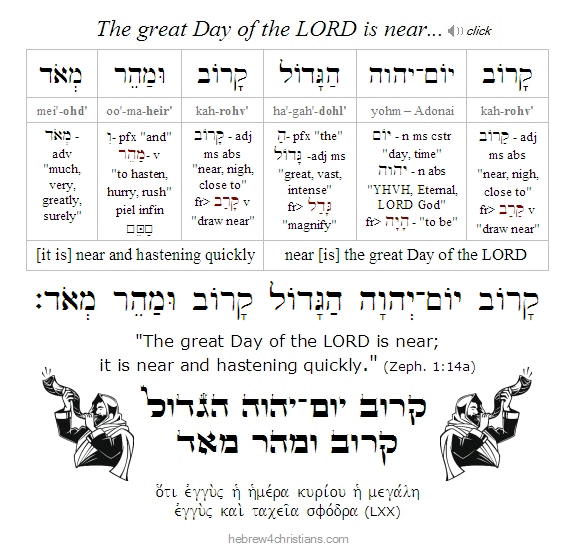 |
Although "Day of the LORD" (i.e., yom Adonai: יוֹם יְהוָה) is sometimes associated with Tishah B'Av and the catastrophic destruction of the Jewish Temple, the words of the prophets were only partially fulfilled, and there awaits another Day coming when God will terribly shake the entire earth (Isa. 2:19). "For the great day of their wrath has come, and who can stand?" (Rev. 6:17). The prophet Malachi likewise says: "'Surely the day is coming; it will burn like a furnace. All the arrogant and every evildoer will be stubble, and that day that is coming will set them on fire,' says the LORD Almighty. 'Not a root or a branch will be left to them'" (Mal. 4:1). For those who are godless, the great Day of the LORD is a time of horrific judgment, but for those who belong to the LORD, it represents a day of victory and great blessing. Regarding that day the prophet Malachi said, "Then you will trample down the wicked; they will be ashes under the soles of your feet on the day when I do these things" (Mal. 4:3).
Ultimately the Great Tribulation period is purgative and restorative for Israel (sometimes called yissurim shel ahavah, or "the troubles of love"). The prophets wrote that Zion will go through labor and then give birth to children (Isa. 66:8). Thus the Vilna Gaon wrote that the geulah (national redemption) is something like rebirth of the nation of Israel. This accords with the prophetic fulfillment of Yom Kippur as the Day of Judgment and time of Israel's national conversion. In the verse from prophet Jeremiah regarding the "Time of Jacob's Trouble," it's vital to see the goal in mind - "yet out of it he is saved" (וּמִמֶּנָּה יִוָּשֵׁעַ). When Yeshua returns to Zion, all Israel will be saved (Rom. 11:26). The sages note that childbirth is a time of radical transition and struggle for the baby -- from the time of relatively peaceful existence within the womb into the harsh light of day -- and therefore a similar transition between this world and the Messianic world to come is about to take place...
 |
Yeshua our Healer...

07.21.23 (Av 3, 5783) "Come to me, all of you who are weary and carry heavy burdens, and I will give you rest" (Matt. 11:28). Yeshua calls out to the exhausted, the careworn, the tired of heart, the downcast, yea, to all those who often feel like they can't go on. He looks to those weighed down with troubles, sorrows, and the pains of this world. His invitation is for the "poor in spirit" - to those sick of themselves, to those unable to do anything and who are in need of everything. He seeks the impoverished, the leper, the outcast....
Yeshua turns to the paralytic, to one carried by the dust of death before God, powerless, forlorn, and broken. And this is the first movement of the Spirit, when in desperation the heart awakens from its delusions and realizes its great need (Luke 15:14). And it is there - in the midst of this brokenness, when the soul, reaching deep for its last gasp, encounters God, the one who calls us to deliverance, newness of life, and life beyond the power of death. The cross of Yeshua is the place where death and eternal life meet; it is the place of being "lifted up" (John 12:32). "If any one thirst, let then come to me, and drink" (John 7:37).
Hebrew Lesson
Psalm 107:9 reading (click for audio):
Daily Dvar Podcast:
Blessing of Holy Desperation...

07.21.23 (Av 3, 5783) Shalom chaverim yakarim. In this "Daily Dvar broadcast" (see link below) I discuss what I have called the "blessing of holy desperation," or that very special blessing of needing God so viscerally that you would otherwise fall apart or even self-destruct apart from his ongoing intervention in your life. I hope you will find it helpful.
Hebrew Lesson
Psalm 147:3 Hebrew reading (click):
The Voice of Our Words...
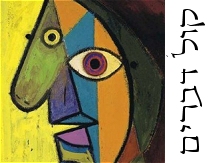
07.20.23 (Av 2, 5783) According to Jewish tradition, it was on Tishah B'Av (the ninth of Av) when the people wept over the report of the spies, a lapse of faith so serious that it provoked God to decree that the very generation He redeemed from Egypt would die in the exile of the desert (see Num. 13-14). As Moses later recounted this tragic event, he said something peculiar: "The LORD heard the 'voice of your words' (קוֹל דְבַרִים) and was angry..." (Deut. 1:34). The grammar here is unusual, for the text could have simply said, "the LORD heard your words," but the Torah adds something else, the idea of "emotional tone," or the manner, the words were spoken... Sometimes it is not so much what you say that matters, but how you say it. Words of the heart are expressed more by tone, the "voice of the words," than by the words themselves...
According to midrash when the spies returned after scouting the land, they said "the land is good" in a qualified or even an insincere manner. "Just look at this gigantic fruit we picked -- for gigantic people of that land who are invincible!" The words spoken by the spies were "true" in a sense, but their expression mediated a fearful attitude that rendered them untrue. Instead of saying "the land is good" - and affirming God's promise - their words were nuanced with doubt, and the "sound of their words" belied their testimony.
In themselves words are not "static" things but they live and move within a context to inform a common or shared sense of meaning. The grammar of "truth" assumes good will and correspondence between what is said and what is adjudged as real, "actual" or credible. When words are used deceptively, ambiguously, ironically, disingenuously, or without straightforward intent, however, then common sense does not obtain and the meaning shifts to "meta-linguistic" interpretation. With regard to God, however, the constellation of beliefs, assumptions, intent, and the emotional context is fully known whenever we communicate, as it is written: "There is not a word on my tongue but You, O LORD, know it altogether" (Psalm 139:4), and therefore He entirely understands our true intent -- or the "voice of our words."
In our Torah portion this week we read: "May he (i.e., the LORD) bless you as He said to you" - וִיבָרֵךְ אֶתְכֶם כַּאֲשֶׁר דִּבֶּר לָכֶם (Deut. 1:11), which the sages read as: "May he bless you as your speech is to you," suggesting that our language will mirror spiritual reality (Psalm 18:25-26; Prov. 23:7). And when we recite Shema, we do so bekhol levavkha (בְּכָל־לְבָבְךָ) - with all our heart, with all our soul, with all our might (Deut. 6:5). This is a cry from the heart that affirms God's truth. Our feelings are important and are meaningful, whether they are feelings of joy, gratitude, and so on, or feelings of doubt, despair, or fear. As Yeshua said: "Would that you were either cold or hot, but because you are lukewarm - neither hot nor cold - I will spew you out of my mouth" (Rev. 3:15-16).
It's been said that if you don't know how to say something, say it loudly... The heart has its own voice regardless of the words we are able to articulate. For instance, if you love someone, then really love them and abhor being halfhearted. Being hot or being cold is better then being tepid, because then you are being honest, and honesty will always evoke a genuine response from heaven...
Hebrew Lesson
Deuteronomy 1:34 reading (click):
The Will to Believe...

07.19.23 (Av 1, 5783) From our Torah portion this week (i.e., Devarim) we read: "But you were not willing to ascend (וְלא אֲבִיתֶם לַעֲלת), but became bitter (מָרָה) against the Word of the LORD your God" (Deut. 1:26). Moses' rebuke was not that the people were afraid to conquer the land as much as that they had lost heart and no longer desired to take hold of God's promise. The people gave up their dream; they forsook their hope; and they had lost the "devotion of their youth, their love as a bride, how they followed the LORD in the desert, into a land not sown" (Jer. 2:2). The people's failure was on two levels: First they lapsed in faith by abdicating trust in God's word, and second, they had lost the passion of their first love. In light of this, the sages say that the greater problem was that of losing heart, since the heart directs the will to believe in the miracle of God, or not...
Moses' rebuke of the people's heart condition recalls the sober warning Yeshua gave to the Ephesian believers: "I know your works, your toil and your patient endurance, and how you cannot bear with those who are evil, but have tested those who call themselves apostles and are not, and found them to be false. I know you are enduring patiently and bearing up for my name's sake, and you have not grown weary. But I have this against you, that you have abandoned the love you had at first. Remember therefore from where you have fallen; repent, and do the works you did at first. If not, I will come to you and remove your menorah from its place, unless you repent" (Rev. 2:2-5). Likewise the author of the Book of Hebrews commented: "And to whom did he swear that they would not enter his rest, but to those who were disobedient? And with whom was he provoked for forty years? Was it not with those who sinned, whose bodies fell in the desert? So we see that they were unable to enter because of unbelief" (Heb. 3:17-19). The question of our faith is essential: "It is a fearful thing to fall into the hands of the living God" (Heb. 10:31).
Hebrew Lesson
Deut. 4:24 Hebrew reading (click):
Shabbat Chazon (שבת חזון)

[ The Sabbath preceding the somber holiday of Tishah B'Av is called Shabbat Chazon... ]
07.19.23 (Av 1, 5783) We are in the midst of the "Three Weeks of Sorrow" that began with the Fast of Tammuz and ends with the solemn fast of Tishah B'Av. Spiritually, these three weeks are marked by a renewed called for teshuvah (repentance), and the weekly readings from the prophets all warn about imminent judgment from heaven. Among the Orthodox, the last nine days of the Three Weeks are very solemn. Beginning on the first day of the month of Av, traditional mourning customs are practiced in anticipation of the doleful fast of Tishah B'Av, when the Book of Lamentations (Megillat Eichah) will be plaintively chanted during the evening service. The Sabbath that immediately precedes the fast of Tishah B'Av is called Shabbat Chazon (i.e., שבת חזון, the "Sabbath of Vision") because the Haftarah that is read (i.e., Isa. 1:1-25) describes the terrible vision of the prophet Isaiah regarding the imminent destruction of the Temple:
"Hear, O heavens and give ear, O earth,
For the LORD has spoken;
Though I brought up and raised My children,
They have rebelled against me." (Isa. 1:2)
When it was first recorded, Isaiah's vision of the destruction was still future, and the Jews still had a chance to repent before the great tragedy befell them. However, since they refused to turn back to God, calamity overtook them. Today the Haftarah is traditionally chanted to the same haunting melody as Megilat Eichah (Lamentations), written by the prophet Jeremiah, who was an eyewitness to the destruction and fall of Jerusalem.
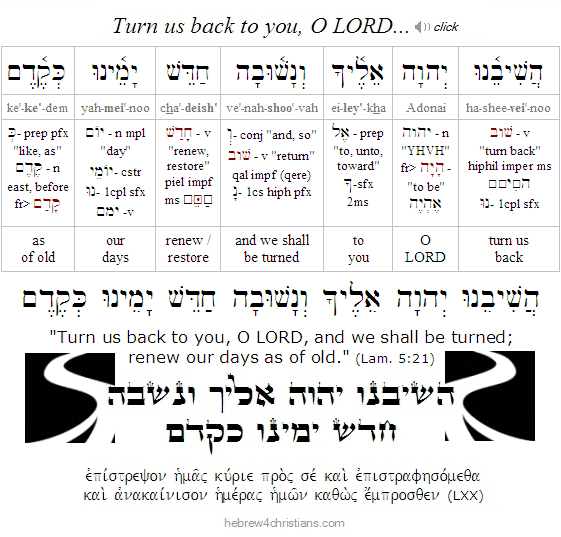 |
During the last nine days of the Three Weeks of Sorrow it is common to confess the sins in our lives that likewise contribute to the lack of God's Presence in our midst. Hashivenu Adonai, elecha vena-shuvah; chadesh yamenu kekedem: "Turn us back to You, O LORD, and we shall be turned; renew our days as of old" (Lam. 5:21).
Though Shabbat Chazon is a time of mourning, it is also a time for hope. The Torah reading for this Sabbath is always parashat Devarim, the first portion of the Book of Deuteronomy. In this reading, Moses details the victorious battles with Sihon the king of Amorites and Og the king of Bashan. Because it speaks of God's victory, the sages recommended envisioning the future Temple that will be built by the Messiah at this time. According to Jewish tradition, after the Messiah comes and restores Israel, Tishah B'Av will become one of the happiest days of the year (and may He arrive soon and in our days). Amen.
Three-in-One Aleph...
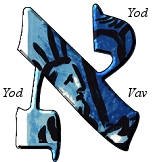
07.18.23 (Tammuz 29, 5783) According to the mystics of Jewish tradition, the entire cosmos is said to be created from the 22 consonants of the Hebrew Alphabet, called otiyot yesod (אוֹתְיּוֹת יְסוֹד), or "foundational letters." Through the otiyot yesod God formed substance out of chaos and brought forth existence from nonexistence. In other words, the entire universe is created and sustained by divine language (i.e., the Word of God).
The Talmud says "All the world was created for the Messiah" (Sanhedrin 98b). The New Testament had earlier said the same thing: "All things were created by Him (i.e., Yeshua), and for Him" and in Him all things consist (συνεστηκεν, lit. "stick together") (Col. 1:16-17). Yeshua our Messiah is called devar Elohim (דְּבַר אֱלהִים), the Word of God, who upholds the created order by the Word of His power. It is the Messiah Yeshua alone Who is the true yesod (foundation) of life itself. Every holy utterance can be traced back to Him, and He is the Source and Origin of all that is good, lasting, and righteous. "For from him and through him and to him are all things" (Rom. 11:36). Indeed, "He is the zohar of His glory," that is, the radiance of the glory of God Himself, who "upholds all things by the word of His power" (Heb. 1:3). Since He is the Aleph and the Tav (אָלֶף וְתָו), the First and the Last, we can see that the otiyot will all reveal something about Him (Rev. 22:13). Indeed, the Hebrew word for "letter" is ot (אוֹת), which can also mean "sign" or "wonder." Yeshua affimed that each letter of the Hebrew alphabet -- every "jot and tittle" (i.e., kotzo shel yod: קוֹצוֹ שֶׁל יוֹד) -- contains signs that point to truths about our LORD (Matt. 5:17; Luke 16:17; Isa. 40:8).
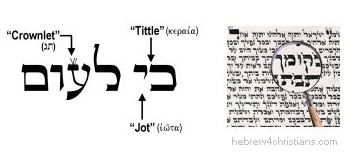 |
The structure and sequence of the Hebrew alphabet itself is part of God's revelation to us. As demonstrated by the various acrostic sections of Scripture (e.g., Lamentations, Psalm 25, Psalm 119, Proverbs 31, etc.), God designed the Hebrew alphabet in a particular order. Indeed, the first letter of the alphabet is the letter Aleph (א), which represents the number 1. As a silent letter, Aleph is preeminent in its order and alludes to the ineffable mysteries of the oneness of God (Col. 1:18). Indeed, the word aluph (derived from the very name of this letter) means "Master" or "Lord."
In the classical Hebrew script, Aleph is constructed as a "three-in-one" letter formed by two Yods (י), one to the upper right and the other to the lower left, that are joined by a diagonal or slanted letter Vav (ו). The two Yods represent two hands (the Hebrew word "yod" means hand), and the slanted Vav pictures a wounded Man: one hand rises toward heaven while the other reaches down to earth. The total of the three letters hidden within the Aleph is 26 (i.e., Yod+Yod+ Vav), which is the same value as the Name YHVH (יהוה). The first letter, then, of the Name Elohim (אלהים), "God," represents Yeshua, the LORD of Compassion who breaths upon us the breath of life (Gen. 2:7; John 20:22).
Hebrew Lesson
Isaiah 40:8 reading (click for audio):
Note: For more information, see the letter Aleph pages.
The Power of Forgiveness
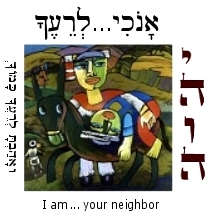
07.18.23 (Tammuz 29, 5783) In the Gates of Repentance it is written: "I hereby forgive all who have hurt me, all who have wronged me, whether deliberately or inadvertently, whether by word or by deed. May no one be punished on my account. And as I forgive and pardon those who have wronged me, may those whom I have harmed forgive me, whether I acted deliberately or inadvertently, whether by word or by deed." Amen...
Yeshua taught us to pray "forgive us as we forgive others," which implies that our forgiveness (of others) is the measure of our own forgiveness. In other words, as we forgive others, so we experience forgiveness ourselves... Forgiveness releases the hurt, the anger, and the disappointment so these feelings do not inwardly consume and exhaust our souls. And yet forgiveness must be self-directed, too, since refusing to forgive yourself denies or negates the forgiveness given from others. Forgiving yourself means admitting that you act just like other people, that you are human, and that you are in need of reconciliation too. We have to move on, past the shame, and to turn back to hope. As a Yiddish proverb puts it, "You are what you are, not what you were..."
It is written, "in many things we offend all," and therefore we must confess our sins one to another to find healing (James 5:16). However the practice of love overlooks a multitude of sins, and if we do not condemn those who offend us, then we will not need to forgive them for their offenses. Walking in God's love sets us free from the slavery of negative emotions such as resentment, bitterness, anger, unresolved grief, and so on.
I love this affirmation and prayer attributed to Eusebius of Caesarea (c. 263-339 AD): "May I be the friend of that which is eternal and abides. May I never quarrel with those nearest me; and if I do, may we be reconciled quickly. May I never devise evil against anyone; and if any devise evil against me, may I escape uninjured and without any desire to hurt them. May I love, seek, and attain only that which is good. May I wish for the happiness of all and the misery of none. May I never rejoice in the ill-fortune of one who has wronged me. When I have done or said what is wrong, may I never wait for the rebuke of others, but always rebuke myself until I make amends."
"May I, to the extent of my ability, give all needful help to my friends and to all who are in want. May I never fail a friend in danger. When visiting those in grief, may I be able by gentle and healing words to soften their pain. May I respect myself. May I always keep tame that which rages within me. May I accustom myself to be gentle, and never be angry with people because of circumstances. May I never discuss who is wicked and what wicked things he has done, but know good men and follow their footsteps."
Hebrew Lesson
Psalm 86:5 reading (click for audio):
Love and Reproof...
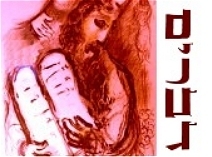
[ The following entry is related to our Torah portion this week, parashat Devarim... ]
07.18.23 (Tammuz 29, 5783) Just before Moses began his reproof of Israel, he declared his love and faith in the people: "The LORD your God has multiplied you until you are today as numerous as the stars in the sky (כְּכוֹכְבֵי הַשָּׁמַיִם). May the LORD, the God of your fathers, make you a thousand times more as you are (כָּכֶם), and bless you, as He promised you" (Deut. 1:10-11). Moses first brought up God's great love for the Jewish people before he began his admonition. Notice he used the word kachem (כָּכֶם, "as you are") in this blessing. May the LORD multiply you - as you are - a thousand times! You are beloved; you are worthy: may the LORD bless you a thousand times over!
Were these people perfect then? Obviously not, as would be clear through Moses' later admonition to them. Nonetheless, Moses used a "good eye" to see their potential as God's chosen people. Here was this ragtag group of of desert wanderers, descendants of slaves from the "house of slavery," whom the LORD God Almighty personally redeemed to be His own treasured possession. Despite their failures in the past and all that went before, Moses reminded them that they were esteemed as mamlechet kohanim v'goy kadosh (מַמְלֶכֶת כּהֲנִים וְגוֹי קָדוֹש), a "kingdom of priests and a holy people" (Exod. 19:6).
Moses' approach gives insight about how we might attempt to correct the people we truly love. Often people become defensive when they are criticized and stop listening. Adding sincere praise and encouragement helps them open up to our message, since it is grounded in a sense of respect and value for their well-being. God thinks highly of the Jewish people, and that is the very first thing to be heard. God greatly esteems us, too. Despite the fact that we are sinners, God truly loves us. He considers us worthy to be saved. Again, why else did Yeshua suffer and die on the cross if God did not value our lives so much?
The essence of the law is mercy, and shame is never the goal of the Torah. As King David prayed: Elohai bekha vatachti; al-avoshah (אֱלהַי בְּךָ בָטַחְתִּי אַל־אֵבוֹשָׁה): "My God, I trust in you; let me not be ashamed" (Psalm 25:2). Some people use the idea of God's "law" as a sort of club to hammer a sense of guilt upon the soul. They insist that man is "totally depraved" and under God's death sentence. Such people then hope to explain the good news of the gospel to escape God's righteous wrath for sin. These people, perhaps well-meaning, forget that the LORD is "near" - karov- to the brokenhearted. This adverb means "close enough to touch." The same root is used for the word korban (קָרְבָּן), an offering that draws us near to God, as well as karov (קָרוֹב), a near kinsman. In other words, God's desire has always been for people to draw near to Him, and He has always provided a way for people to do so -- even those who lived under the terms of the Sinai Covenant.
Guilt (אַשְׁמָה) is an objective state of being sinful that may or may not be accompanied by feelings of remorse, but shame (בּוּשָׁה), at least in its toxic sense, is a state of soul that regards itself as fundamentally flawed, inadequate, and essentially unlovable. God does not want us to grovel in self-disgust or live in constant fear of His judgment. He does not want us to hate ourselves or to regard ourselves as unlovable. On the contrary, as His creation, He loves us and finds us of value and worth. Why else would he have given His Son up to ransom us from sin and death? Like a parent who loves his child but wants to correct him by saying, "this doesn't become you," so God wants us to remember who we really are. He wants us to "walk in love" as His "dear children of light" (Eph. 5:8). God's correction is meant to form His character within us, and this first must begin with our assurance of our value, dignity, and worth in His eyes.
We are commanded to judge with tzedakah, with love as our underlying assumption. If God so commands us, surely we can trust that He likewise judges us this way. God's love is his essence - "God is love" (ὁ θεὸς ἀγάπη ἐστίν) - and He regards you as worthy to receive His love and blessing. He loves you b'ahavat olam - with "an everlasting love" (אַהֲבַת עוֹלָם), and therefore in chesed he draws you to Himself (Jer. 31:3). Why else would Yeshua die on the cross unless He expressed God's desire to judge others favorably?
Be encouraged, chaverim. You are "fearfully and wonderfully made" and you have a future and a hope in the world to come (Jer. 29:11). "There is no fear in love, but perfect love casts out fear. For fear has to do with punishment, and whoever fears has not been perfected in love" (1 John 4:18). Keep hope. God's love never fails (1 Cor. 13:8).
Hebrew Lesson
Psalm 25:2 reading (click for audio):
Seeking Things Above...
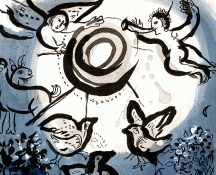
07.18.23 (Tammuz 29, 5783) Then he said to them all, "If anyone wants to become my follower, he must deny himself, take up his cross daily, and follow me. For whoever wants to save his life will lose it, but whoever loses his life for my sake will save it" (Luke 9:23-24). Paradoxically only those willing to give up their lives will take up their cross, but the prospect remains an offense to those who seek to protect themselves. We must let go, say goodbye, and turn away from the allure of this world. The cross of Messiah crucifies your relationship to this world with its ignorance and vanities (Gal. 6:14). Through the cross you die to this world and its idolatry and cross over to a new realm of existence altogether (Gal. 2:20; Col. 3:1-4). The cross marks the beginning of life in the spirit...
"If then you have been raised with Messiah, seek the things that are above (τὰ ἄνω ζητεῖτε), where the Messiah is seated at the right hand of God (לִימִין אֱלהִים). Focus your thoughts on the things above, not on things here on earth. For you have died, and your life has been hidden with Messiah in God. Then when the Messiah, who is your life, appears, you too will appear with him in glory" (Col. 3:1-4).
All of this turns on our faith... If we are spiritually identified with Yeshua, we are "dead" to this age (olam hazeh), and therefore we are awakened to a realm that transcends the appeals of carnal flesh (olam habah). We no longer live chayei sha'ah (חַיֵּי שָׁעָה, "fleeting life") but chayei olam (חַיֵּי עוֹלָם, "eternal life"). The arorist verb "you have died" indicates "you have died once for all," that is, this is a condition granted by the power and agency of God on your behalf. You don't "try to die" to the flesh; you accept what God has done by killing its power over you through Yeshua... You are dead to this world; you are dead to sin's power; you are no longer enslaved to the deception of the worldly matrix, etc. Now you are made alive to an entirely greater and more powerful order and dimension of reality, namely, the spiritual reality that is not disclosed to the vanity of this age. Therefore we are to consciously focus our thoughts (φρονέω) on the hidden reality of God rather than on the temporal world that is passing away: "For we are looking not to the things that are seen but to the things that are unseen. For the things that are seen are transient (i.e., "just for a season," καιρός), but the things that are unseen are eternal" (2 Cor. 4:18).
"When faith in God begins to affect an individual, his entire existence is transformed. His obsession with immediate pleasures and pains dies away. Instead his attention is increasingly focused on God. He comes to conceive God in his heart not just at a particular moment, but at every moment. He desires to share the infinity of God, and so feels himself confined within his present existence. He is like a bird in a cage, dreaming of flying free; he is like a fish on dry land, dreaming of swimming in a pool. He is acutely aware of the contrast between God's power and his own frailty. Yet even in his confinement, he feels joy in the knowledge that soon he will be free" (Kierkegaard)
We share the (in)visibility of the Messiah in this age... Since He is presently hidden from view, "the world knows us not, because it knew him not" (1 John 3:1); on the other hand, when He is revealed from heaven, so we will appear with him in glory... Therefore "being dead" is an inversely reciprocal relationship: being dead to this world is to be alive in the other world, and vice-versa.... We have "hidden life" in the Messiah, as it is written: "your life has been hidden (i.e., κρύπτω, "concealed," "disguised") with the Messiah in God." By faith you are made dead to one order of reality so that you would be made alive to another order of reality, to the reality of God that transcends the shadows and decay of this world. Your life has been hidden - like a "hidden treasure" - with the Messiah, who holds its store for you and will reveal its glory in the coming age. Because Yeshua knows you by name, calls you to follow Him, and is your Sin-Bearer, Priest, Advocate, and Savior before the throne of God, your life is indeed "hidden with Him," and you are made secure through His all-powerful providential care... Praise His Name forever.
Salvation is forever a matter of life and death. We esteem earthly doctors because they are healers of the body, but how much more do people need true healers of the soul? "Be not deceived" about your own hope for eternity; "God is not mocked" (μυκτηρίζω). He knows your inner motivations with perfect clarity (Gal. 6:7; Heb. 4:12). To "serve" God in the truth means being willing to face ongoing self-examination, to own up to the truth about yourself, to be real, to be honest. We are here to share the message of God's love and to help bring others to eternal life. Yeshua's fiercest words of condemnation were reserved for those who played games with "religion" - for those who forgot that people were literally dying without God's love... May God help us remember what is closest to His heart, friends...
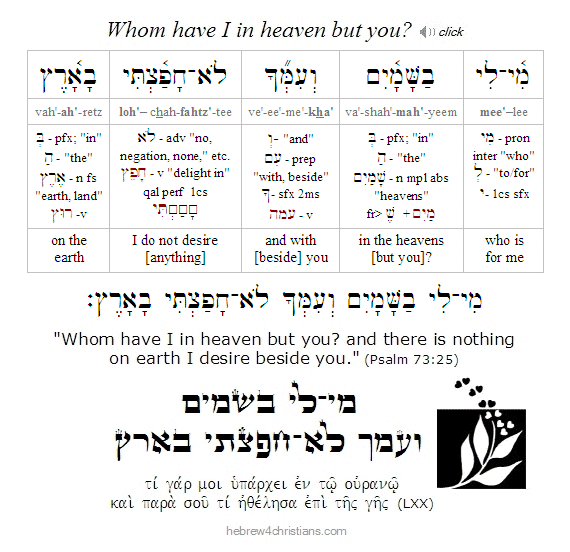 |
With all your Heart...
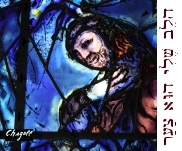
07.17.23 (Tammuz 28, 5783) From our Torah portion this week (i.e., Devarim) we read: "You were not willing to go up but rebelled at the word of the LORD your God. And you murmured in your tents and said, 'Because the LORD hates us he has brought us out of the land of Egypt...'" (Deut. 1:26-27). We may decry the puerile insolence of the people, we lament their lack of faith, and yet God was still speaking through Moses to Israel...
The sages ask whether we can ever be justifiably angry at God, and answer that we can, because otherwise we could never love Him "bekhol levavkha," with all our heart (Deut. 6:5). Indeed, how can we claim to love God if we withhold the truth, lie to ourselves, and attempt to hide who we really are from Him? If you are angry at God, he already knows, so why the pretense? Being angry with God is part of being a real person in a real relationship with Him, and allowing yourself to express the truth of your heart to him is a sign of trust...
Hebrew Lesson
Psalm 139:4 reading (click):
The Entreaty of Moses...
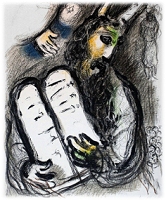
[ The following entry is related to our Torah portion this week, parashat Devarim... ]
07.17.23 (Tammuz 28, 5783) Various commentators regard Sefer Devarim (i.e., the Book of Deuteronomy) as Moses' final warning to Israel in light of their repeated failures and setbacks. Some (primarily Christian) commentators even go so far as to say that the book represents an indictment against the Jewish people that warrants regarding them as a God-forsaken people. (This is essentially the repugnant doctrine of "replacement theology" that denies ethnic Israel has a future and a hope in God's plan of salvation.) Even many Jewish commentators, among them Rashi, seem to focus on Moses' rebuke (i.e., tochachah: תּוֹכָחָה) of Israel and regard the book in a negative light. Because of this, it should be stressed at the outset that Moses' correction of Israel - including his review of the unseemly history of the desert generation - was primarily intended to remind the Jews of their high calling, their new identity, and their preciousness as God's people. As will be seen, Moses wanted the people of Israel to remember their identity as am segulah (עַם סְגֻלָּה), God's "treasured possession among all peoples" (Exod. 19:5). Moses' admonition (מוּסָר) functions more like the plea of a father to his children to walk in a manner that is worthy of his name than a stinging rebuke of the sins of his children. "My son, despise not the discipline (musar) of the Lord; neither be weary of his correction (tochachah). For whom the Lord loves he corrects; even as a father the son in whom he delights" (Prov. 3:11; cp. Heb. 12:5-6). Therefore we read, "Know then in your heart that as a man disciplines his son (כַּאֲשֶׁר יְיַסֵּר אִישׁ אֶת־בְּנוֹ), the LORD your God disciplines you (הוה אֱלהֶיךָ מְיַסְּרֶךָּ)" (Deut. 8:5).
To underscore this point, notice that just before Moses began his reproof of Israel, he declared his love and faith in the people. "The LORD your God has multiplied you until you are today as numerous as the stars in the sky (כְּכוֹכְבֵי הַשָּׁמַיִם). May the LORD, the God of your fathers, make you a thousand times more as you are (כָּכֶם), and bless you, as He promised you" (Deut. 1:10-11). Moses first brought up God's love for the Jews before he began his admonition. Notice he used the word kachem (כָּכֶם, "as you are") in this blessing. May the LORD multiply you - as you are - a thousand times! You are beloved; you are worthy: may the LORD bless you a thousand times over! (How different is this picture of Moses than the typical cartoon made of him by many who envision him smashing the tablets as if that were his "last word" on the subject of the Torah to Israel!)
Were the people perfect then? Obviously not, as would be clear through Moses' later admonition to them. Nonetheless, Moses used a "good eye" to see their potential as God's chosen people. Here was this ragtag group of desert wanderers, descendants of slaves from the "house of slavery," whom the LORD God Almighty personally redeemed to be His own treasured possession. Despite their failures in the past and all that went before, Moses reminded them that they were esteemed as mamlechet kohanim ve'goy kadosh (מַמְלֶכֶת כּהֲנִים וְגוֹי קָדוֹש), a "kingdom of priests and a holy people" (Exod. 19:6).
Hebrew Lesson
Psalm 94:12 Hebrew reading (click):
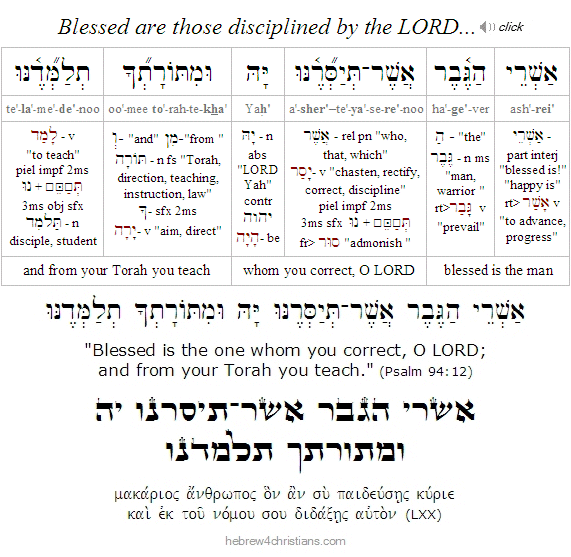 |
He Carries us Through...
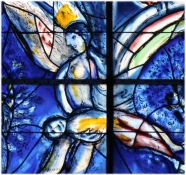
[ The following entry is related to our Torah portion this week, parashat Devarim... ]
07.17.23 (Tammuz 28, 5783) From our Torah this week (Devarim) we read: "The LORD your God carried you, as a man carries his son, all the way that you went until you came to this place" (Deut. 1:31). Part of the miracle of faith is coming to believe that you matter to God – that your thoughts, words, and deeds all are of his concern.
You may be tempted to regard yourself as unseen and powerless before the Creator of the universe. How is it possible for anyone to serve the Infinite One, since "even the heavens, and the heaven of heavens, cannot sustain You" (1 Kings 8:27)? Are we not made of clay, whose foundation is but dust? (Job 4:19).
Here the miracle of faith believes that God, the LORD and Source of all life, seeks relationship with us, and that He makes place within Himself to hear us, to engage our lives, and to walk with us... Indeed, "the Word was made flesh and dwelt among us:" God emptied himself (κενόω) and clothed himself with human dust so that we could be touched by His love. The LORD carries us through our exile so that we might know and trust him...
Hebrew Lesson
Isaiah 46:4b reading (click):
"And just as we have borne the image of the man of dust,
so we shall also bear the image of the man of heaven" (1 Cor. 15:49).
Confession and Healing...

07.16.23 (Tammuz 27, 5783) The inner life of the self can be one of tranquility and peace, or it can be one of turmoil and struggle -- as we sense forces within our own hearts that seek to pull us away from what is good... What is hidden within can become a destructive force, ready to erupt in unexpected moments. We have to be careful to "take every thought captive" before the presence of God, since otherwise our thoughts can lead to chaotic thinking and unrestrained emotions. If we allow ourselves to self-indulgently murmur or envy, for example, such thoughts may surreptitiously become a fixed part of our character.
As C.S. Lewis once said: "Hell begins with a grumbling mood, always complaining, always blaming others... but you are still distinct from it. You may even criticize it in yourself and wish you could stop it. But there may come a day when you can no longer. Then there will be no you left to criticize the mood or even to enjoy it, but just the grumble itself, going on forever like a machine. It is not a question of God "sending us" to hell. In each of us there is something growing, which will be hell unless it is nipped in the bud." (Great Divorce)
We find deliverance from our inner conflicts by humbling our self and opening our hearts to a trusted friend, as it says: "Confess your faults one to another and pray for one another, that you may be healed" (James 5:16). A good friend will make time to quietly listen to the story of your struggle and to then extend grace, compassion, and forgiveness, serving as a priest for your heart, revealing God's kindness and mercy in your darkest of moments... The light shines in the darkness, and the darkness cannot overcome it (John 1:5).
Hebrew Lesson
Psalm 32:5 Hebrew reading (click):
Shavuah Tov Podcast:
Parashat Devarim...
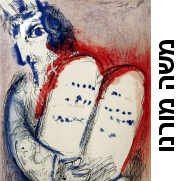
07.16.23 (Tammuz 27, 5783) Our Torah reading this week (i.e., parashat Devarim) is the very first portion from the Book of Deuteronomy (ספר דברים), which is always read on the Sabbath that precedes the somber holiday of Tishah B'Av (תשעה באב). In Jewish tradition, this Sabbath is called "Shabbat Chazon" (שַׁבַּת חַזוֹן), "the Sabbath of Vision," since the Haftarah that is read (i.e., Isa. 1:1-25) comes from the vision of the prophet Isaiah regarding the destruction of the Holy Temple in Jerusalem. In both Jewish tradition and liturgy, teshuvah (repentance) and confession of sin are the themes of this prepatory Sabbath.
The Summary Book of Torah...

07.16.23 (Tammuz 27, 5783) Shavuah tov, friends. The concluding book of the Torah of Moses is called "Devarim" (i.e., דברים, "words" or "things"), from the phrase eleh ha'devarim ("these are the words...") found in its opening verse. In our English Bibles, Sefer Devarim (ספר דברים) is known as the "Book of Deuteronomy," from a Greek word meaning "second (or repeated) law" (δευτερονόμιον), a term used to translate the phrase mishneh ha-Torah ("copy of the Torah," Deut. 17:18).
Generally speaking, the Book of Devarim represents Moses' "farewell address" to Israel, where he reviews and summarizes the history and the laws given to the people and repeatedly warns that obedience will bring blessing while disobedience will bring disaster. The series of personal discourses (or sermons) in the book all have the pleading tone of rebuke and admonition, and indeed some sages say it resembles a sort of "deathbed blessing" not unlike Jacob's blessing given to his sons.
Our Torah portion (i.e., parashah: פרשה) for this week is the very first section of the Book of Deuteronomy, which begins with Moses recounting the journey from Mount Sinai to the edge of the promised land. Moses mentioned the difficulty of personally governing the people and recalled how he set up a system of judges to help him administer justice among the various tribes. Moses then reminded the people of the tragic sin of the spies and the rebellion of the people at Kadesh Barnea, which led to God's decree that no one of that generation would live to enter the land of Canaan (except for Caleb and Joshua). Moses then provided an outline of the 38 year exile of the Israelites back toward the Sea of Reeds, into the desert regions, and then back again until the subsequent generation was ready to enter the promised land. For more information, see the links listed below.
Walking by Faith....

07.14.23 (Tammuz 25, 5783) The Hebrew word for "faith" is emunah (אֱמוּנָה), which comes from the verb aman (אָמַן), meaning to uphold, support, to make steady and sure. The Hebrew word for "truth" (אֱמֶת) also comes from the same root, as does the word "amen" (אָמֵן), implying that reality is upheld and subsists by the Word of God's power (Heb. 1:3; Col. 1:17). Faith enables the soul to perceive the eternal within the transitory, the invisible within the visible, and the Divine Presence in the midst of the whirlwind. When applied to the heart, "faith" is better understood as "faithfulness," since it implies integrity and trustworthiness, and so on. God's faithfulness is bound with His love (חֶסֶד), which means that He can be relied upon to uphold you as you sojourn through this world to world to come...
Therefore we are called to "walk by faith, not by sight," as if the invisible were indeed visible. We see by means of the inner light of hope, the "good eye" of faith, as the framework for our interpretation of life. We do not see "around" things or even beyond them as much as we see through them to the center. The "eyes of the heart" sees hidden purpose and beauty that is unseen by eyes distracted by worldly care.
And this is how we learn to see ourselves too, not according to the flesh but by the Spirit (2 Cor. 5:16). We all suffer from brokenness and are broken people, but if we embrace our heartache, vulnerability, and powerlessness, we put our brokenness under the blessing. This does not mean the end of our woundedness, for our secret pains may persist, but the blessing transforms our struggle to be a source of fruitful connection with others who likewise suffer in their journey. As it is written: God "comforts us in all our troubles so that we may be able to comfort those experiencing any trouble with the comfort with which we ourselves are comforted by God (2 Cor. 1:4).
We must stay focused and uphold our hope, for through hope we are saved (Rom. 8:24). Faith is the assurance (ἔλεγχος) of things unseen (Heb. 11:1). Do not be seduced by mere appearances; do not allow yourself to be bewitched into thinking that this world could ever be your home. No, we are strangers and pilgrims here; we are on the journey to the reach "the City of Living God, to heavenly Jerusalem, to the assembly of the firstborn who are enrolled in heaven" (Heb. 12:22-23). Therefore refuse despair. Keep to the narrow path. Set your affections on things above since your real life is "hidden with God" (Col. 3:1-4). Do not yield to the temptation of despondency. Look beyond the "giants of the land" and reckon them as already fallen. Keep pressing on. Chazak, chazak, ve-nit chazek - "Be strong, be strong, and let us be strengthened!" Fight the good fight of the faith. Take hold of the eternal life to which you were called (1 Tim. 6:12).
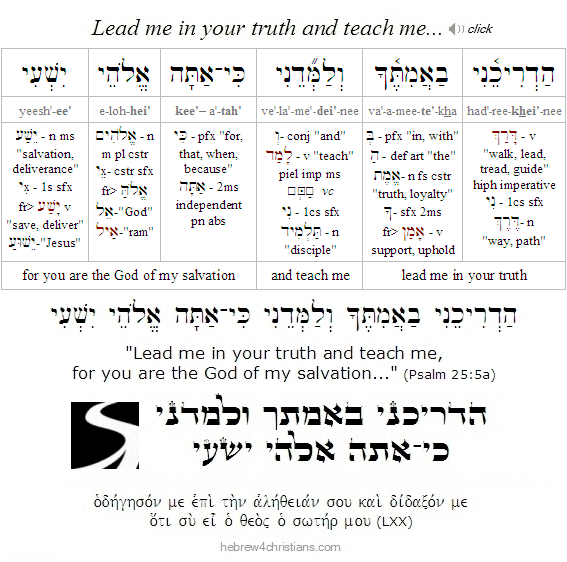 |
Sufficient unto the day...

07.14.23 (Tammuz 25, 5783) In the Gospel of Matthew we read these words of our Lord: "Therefore do not be anxious about tomorrow, for tomorrow will be anxious for itself. Sufficient for the day is its own trouble" (Matt. 6:34). Soren Kierkegaard comments: "If there is no next day for you, then all earthly care is annihilated. When the next day comes, it loses its enchantment and its disquieting insecurity. If there is no next day for you, then either you are dying or you are one who by dying to temporality has grasped the Eternal, either one who is actually dying or one who is really living... The one who rows a boat turns his back to the goal toward which he is working. So it is with the next day. When, with the help of the Eternal, a person lives absorbed in today, he turns his back to the next day. The more he is eternally absorbed in today, the more decisively he turns his back to the next day." Amen. Today is the day of salvation; today may we hear His voice...
"If there is no next day for you, then either you are dying or you are one who by dying to temporality has grasped the Eternal, either one who is actually dying or one who is really living..." [Kierkegaard]
"For he that loses his life will find it..." (Luke 17:33). But how are we to understand this? An old story from the Desert Fathers comes to mind. A visitor came to the Master and was struck by his radiance. Later he spoke to a disciple and asked him for an explanation. The disciple quoted the Master's words, "Truly, truly, I say to you, unless a grain of wheat falls into the earth and dies, it remains alone; but if it dies, it bears much fruit" (John 12:24). Life is a sacred mystery, but death provides the key to unlock its meaning. We can "turn the key" by surrendering ourselves in silent expectation before God. Once we die to life in this world we are set free and empowered to live in joy and gratitude for everything. We experience serenity as we let go in surrender to God's care.
A person must be content to be as he is; a dependent being, as little capable of sustaining himself as of creating himself. If we choose to forget God and look after our own sustenance, then we are overcome with anxiety. It is certainly praiseworthy and pleasing to God when a person works for his food. But if he forgets God, and thinks that he himself is supporting himself, then he becomes burdened with the necessities of life... Worry about making a living, or not making a living, is a snare. In actuality, it is the snare. No external power, no actual circumstance, can trap a person. If a person chooses to be his own providence, then he will go quite ingenuously into his own trap, the wealthy as well as the poor. If he wants to entrench himself in his own plot of ground that is not under God's care, then he is living, though he does not acknowledge it, in a prison. When the farmer shut the door on the wood dove, the wood dove believed himself to be safe, when in fact he was caught. Or to put it another way, he was shut out from the care of Providence and trapped in a life of anxiety. In a spiritual sense he made himself a captive and "trapped himself unto death." (Kierkegaard UPD)
It is the saddest thing of all if a human being goes through life without discovering his need for God. Therefore blessed indeed are the poor in spirit, for theirs is the kingdom of heaven (Matt. 5:3). It is a "blessed fault" to understand our inner poverty, to know anguish of heart, and to be able to abide in God's salvation one day at a time....
The Spirit cries out: "Fear not, for I am with you..." אַל־תִּירָא כִּי עִמְּךָ־אָנִי. What we need most of all is right here, present in this hour, whether we're conscious of it or not. God is with you, even if you feel alone, lost in darkness, unclean, afraid... "Dear Lord Jesus, I don't know who I am, I don't know where I am, and I don't know what I am, but please love me" (prayer of a sufferer from Alzheimer's disease). That's what we need most, to trust that we are safe in God's love, and that's the ultimate message of our atonement in Messiah.
Hebrew Lesson
Psalm 41:10 Hebrew reading (click):
Finding Real Treasure...

[ The following a short reflection about the "Rich Young Ruler" found in Matthew 19:16-22. ]
07.14.23 (Tammuz 25, 5783) He was a man who seemingly had everything: money, prestige, power, and yet he - like everyone else - was anxious, unhappy, unfulfilled, and lost within himself. "Good master, what good thing shall I do that I may have eternal life?" he asked Yeshua.
What was this man really looking for? What moved his soul? What heartache lay behind his question? For that matter, what did he mean by "eternal life"? For what did he seek? The man seemed to be serious enough. He made the effort to come to Yeshua and seek his counsel. He was seeking.
And he seemed to be ready to hear the message of salvation... Though he was a "ruler of the Jews," perhaps a respected synagogue president or even a member of the esteemed Sanhedrin, he sensed a deep fracture within his soul, an inner brokenness that cried out for healing... And isn't that the essence of "religion" anyway? A sense of spiritual danger; the fear that the soul is lost, wandering in exile, lonely, afraid, and filled with sorrow? The yearning for deliverance, healing, and lasting inner peace? "Blessed are the poor in spirit... blessed are they that mourn."
According to Flavius Josephus, the Roman-Jewish historian of the late Second Temple period, the Pharisees of the time of Yeshua believed the soul was immortal and that upon death, the souls of the righteous would be resurrected to enjoy heavenly paradise in the world to come, whereas the souls of the wicked would descend to shame and everlasting contempt (see Dan. 12:1-3). Assuming this man was familiar with Daniel's prophecy, it is likely he feared God and wondered how he could be sure that he would pass the test of the coming judgment and secure his place among the righteous who would "shine as the stars for ever and ever."
"What good thing shall I do that I may have eternal life?" he asked Yeshua. The man seemed to be asking what virtuous act would commend his soul to God. What could he do to save himself from his fear of God's rejection of his soul? What could he do to save himself from God? What would it require of him? How much would it cost? And how could he do this thing?
This was a man who was seeking inner peace, hoping that he could find acceptance from God before he died and faced the inevitable judgment. He was therefore seeking for some "good thing" he might do, some recipe for how he was to live his life to save himself from God's disapproval and rejection...
Yeshua answered by first reminding him that real goodness is a quality that rightly belongs only to God, since all other forms of goodness are derivative and relative to that truth (people sometimes talk about the "problem of evil" in a world created by a good God, but they often overlook the more basic "problem of good," the 'why' behind the blessing of existence itself). In other words, "goodness" is not self-created or the result of human engineering but comes from the essence of God who alone is good and worthy to be praised.
Yeshua then went on to say that if the man really wanted to enter life he must keep the commandments, namely, the Ten Commandments given to Israel at Sinai. Living in surrender to God, obeying his will and so on, is the way of goodness.
Perhaps Yeshua was taking the man's basic assumptions and showing him where they would lead him, however. If you are looking for a good thing to do that will lead to life, you have the commandments of God given at Sinai, and that should suffice. Why then are you seeking something else? What's wrong with the practice of keeping the law? Is there perhaps something wrong with the soul that it cannot submit to God's moral truth? Is there a sickness of the soul that leads it to do evil and to love sin? Are you honestly able to keep the law of God that demands that you love your neighbor as yourself? Indeed, do you love God with all your heart, soul, mind and strength?
Yeshua was not being ironic when he said "keep the commandments" but on the cotrary he was deadly serious. In order to find approval before the LORD, the Holy One, you must be holy; you must be blameless before Him and walk in righteousness. You must abhor sin and choose life. You must obey from the heart at all times.
But if your heart condemns you... if you feel ashamed... if you justify your selfishness and hardness of heart, then you have a very serious problem.
Despite what Yeshua was alluding to, the man replied that he had kept all these commandments from his youth, yet he still felt empty, unsure, afraid. He felt like something was still missing: "What do I still lack?" he asked.
Yeshua then put his finger on the man's underlying attachment to this world and redirected the man's attention to himself: "If you want to be perfect, go, sell what you have and give to the poor, and you will have treasure in heaven; and come, follow Me." In other words the "rich young ruler" heard the message of the cross requiring the surrender of everything to God, with the result that doing so would yield real treasure, the "treasure in heaven" that his heart truly needed and unconsciously sought.
The eternal life the man was seeking was not to be found in earthly riches or worldly success, but only in relationship with Him. As Yeshua had repeatedly said: "Seek first the kingdom of God and his righteousness (i.e., goodness) and all these things shall be added to you" (Matt. 6:33). We naturally seek our own good, but Yeshua turns things around by saying that you will find what is your good when you turn your heart to God. "Take no thought for your life," that is, "lose yourself" in your relationship with God and then you will find yourself in the midst of eternal life.
"Go, sell all that you have..." The more you hold on in this life the more difficult it will be to realize eternal life. This is the paradox of surrender: Give all these things up and then "all these things shall be added unto you."
Sadly the rich man could not let go of his possessions and he sorrowfully departed from Yeshua, unwilling to receive the call to attain eternal life. Yeshua then lamented the man's loss and warned that clinging to this world makes entering the kingdom of heaven impossible: "It is easier for a camel to go through the eye of a sewing needle, than for a rich man to enter into the kingdom of God" (Matt. 19:24).
Friends, let us seek first the kingdom of God... This is the great concern of our lives, indeed it is our ultimate concern. As Yeshua said: "The kingdom of heaven is like treasure hidden in a field. When a man found it, he hid it again, and then in his joy went and sold all he had and bought that field. Again, the kingdom of heaven is like a merchant looking for fine pearls. When he found one of great value, he went away and sold everything he had and bought it" (Matt. 13:44-46).
The kingdom of heaven is our greatest good and is of inestimable value. Nothing can be compared to its significance and blessing. Once we have discovered the pearl of great price, we stop seeking all other "pearls" since they are both unnecessary and unsatisfying. Yeshua is the hidden treasure God; he is the source of all we truly need. Knowing him is the answer to the heart's question: what good thing shall I do that I may have eternal life? Amen.
Hebrew Lesson
Psalm 27:4a reading (click):
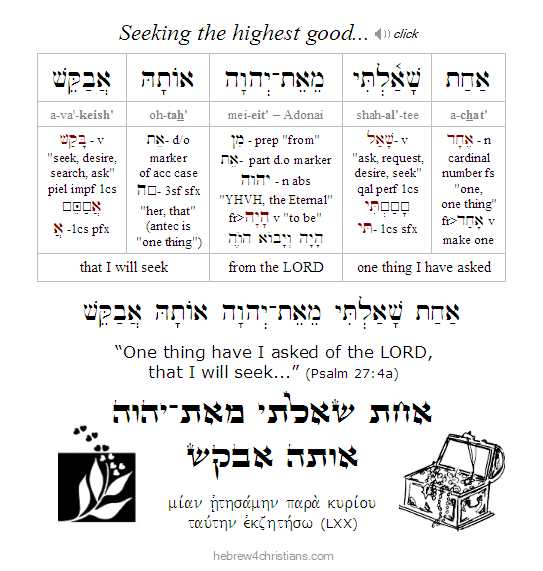 |
Dibbur Emet: Speaking Truth...
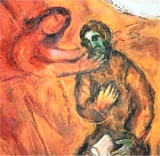
[ "What is accomplished through lies can assume the mask of truth; what is accomplished through violence can go in the guise of justice, and for a while the hoax may be successful. But soon people realize that lies are lies at bottom, that violence is violence - and that both lies and violence will suffer the destiny history has in store for all that is false." - Martin Buber ]
07.13.23 (Tammuz 24, 5783) The Torah of "speaking truth," of being honest and upright (i.e., yashar: יָשָׁר) with ourselves and others, is called dibbur emet (דיבור אמת) in Hebrew. Dibbur emet, or speaking truth, is the duty to use words and language with integrity and justice. "These are the things you are to do: speak truth (דַּבְּרוּ אֱמֶת) to one another; render in your gates judgments that are true and make for peace!" (Zech. 8:16; see also Lev. 19:11; Eph. 4:25, Col. 3:9, among other verses). Note that dibbur emet also forbids spreading gossip, sharing worthless news reports, expressing contempt, mockery, or outrage over the viewpoints of others, and so on. An honest person doesn't play games with words but understands that communication is a sacred trust. Our words are to be regarded as sacred, as an expression of truth. God has made us inviolable promises, and just as His word is sacred, so should we strive to be sacred in our speech, too (Matt. 5:37).
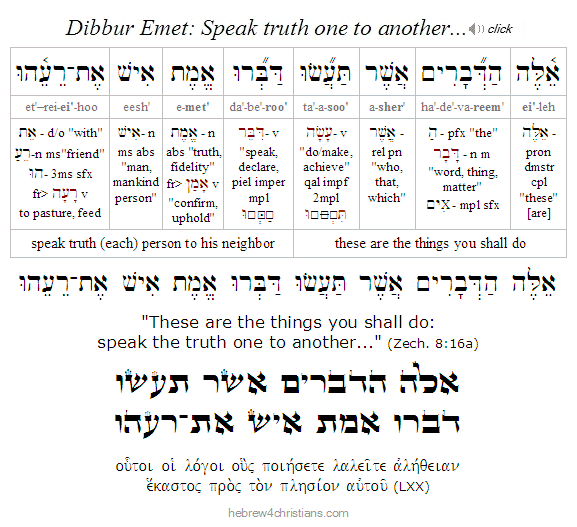 |
Our ability to use language and reason is essential to the image of God within us, and evil speech, or lashon ha'ra (לָשׁוֹן הָרָה), consequently profanes and corrupts the soul. Therefore the sages identify a metzora (i.e., leper) with hamotzi ra, "one who brings forth evil," and they stress shemirat ha-lashon (שְׁמִירַת הַלָּשׁוֹן), or "guarding of the tongue," as a central virtue of the righteous. In Jewish ethical thinking, speaking the truth must be contextualized with good will and kindness, and this implies that purposely saying something that to shame another person is forbidden. Some of the sages, such as the Chofetz Chaim, have gone so far as to say that you are forbidden to say anything evil about a person even if it is true. There are exceptions to this rule, of course, for example in legal proceedings when eye-witness testimony that a crime was committed is required for the sake of justice, but in general the sages recommend avoid saying anything gratuitously negative about others by using the good eye to look for their good qualities...
Our Lord went well beyond these requirements and told us that whatever is spoken in this life is "echoed" throughout eternity and will be reheard upon the day of judgment: "I tell you, on the day of judgment people will give account for every careless (ἀργὸν) word they utter, for by your words you will be justified, and by your words you will be condemned" (Matt. 12:36-37). Our words, especially the words of our heart, are as prayers spoken to heaven. We are especially warned against making promises we might break: "Let what you say be simply 'Yes' or 'No'; anything more than this comes from evil" (Matt. 5:37). All this implies that our thinking, which is expressed in our words, must be sanctified as well. We have a duty to think clearly and righteously, and therefore evil and fearful thoughts are forbidden as well ...
"Come, O children, listen to me; I will teach you the fear of the LORD. What person is there who desires life and loves many days, that he may see good? Keep your tongue from evil and your lips from speaking deceit. Turn away from evil and do good; seek peace and pursue it" (Psalm 34:11-14). Fearing the LORD means being filled with the wonder of the Divine Presence. The one who fears the LORD will "see good," that is, he will see the goodness of his surroundings in the light of God's Presence. Seeing the good in others, using ayin tovah (a good eye), is therefore the contrary of lashon hara, or slander. Our words should be used to upbuild, edify, and esteem others, not to tear them down. Lashon hara is evidence, then, of a critical spirit, an evil eye, and a suspicious heart. We must look to God for the miracle of seeing the truth of His goodness in all things.
"Set a guard, O LORD, over my mouth; keep watch over the door of my lips" (Psalm 141:3). Those who think it easy to control the tongue have likely never really tried to do so. "The tongue is a small member, yet it boasts of great things. How great a forest is set ablaze by such a small fire! And the tongue is a fire, a world of unrighteousness. The tongue is set among our members, staining the whole body, setting on fire the entire course of life, and set on fire by hell" (James 3:5-6). Ultimately, controlling your tongue is a matter of controlling your inner thoughts, your heart, and your attitude, called shemirat ha-lev (שמירת הלב). Therefore we are admonished to be "quick to hear, slow to speak, slow to anger," since the anger of man never works the righteousness of God (James 1:19). May the LORD our God help us always to speak with grace, "seasoned with salt" (Col. 4:6); and may we all "speak the truth in love to grow up in every way" (Eph. 4:15). "Let my words and the meditation of my heart be acceptable to you, O LORD, my Rock and my Redeemer" (Psalm 19:14). Amen.
Hebrew Lesson
Psalm 19:14 Hebrew reading (with comments):
The Journey of Journeys...
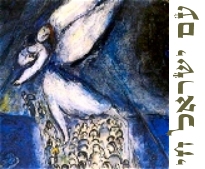
[ "Faith is the assurance that the best and holiest dream is true after all." - Buechner ]
07.13.23 (Tammuz 24, 5783) From our Torah portion for this week (i.e., parashat Masei) we read: "These are the journeys of the people of Israel (מַסְעֵי בְנֵי־יִשְׂרָאֵל) who went out of the land of Egypt..." (Num. 33:1). The sages ask why the word "journeys" (plural) was used here, since only the first journey – from Rameses to Sukkot – literally marked "yetziat mitzrayim," the going out of Egypt – and all the other journeys were outside of Egypt, into desert regions. They answer that the journey out of Egypt goes beyond the physical land into the spiritual - an exodus from captivity to the world into the realm of the spirit. As has been said, it took the LORD 40 days to get Israel out of Egypt, but it took 40 years to get Egypt out of Israel... The "journey out of Egypt" is therefore a journey of smaller journeys that leads to the full consciousness of deliverance.
Along the way we are repeatedly tested. The "desert experience" reveals what is hidden in our hearts... The murmuring and rebellion of the Israelites in the desert is our own, and our challenge is to find healing from our fears. Anger, doubt, boredom, cravings, and outright rebellion are symptoms of a deeper problem, and to change we must first confess our inner poverty, neediness, and emptiness (James 5:16). When we stop making excuses we can learn to trust in God's provision for our lives; we will taste of the heavenly manna and be satisfied; we will be delivered from our fears by be filled with God's love. The impulses that sought to lead us away from God will no longer be able to pretend to be the truth, since God's peace and love will direct the heart. We will begin to take hold of the promise...
Be encouraged my fellow sojourners walking by faith through the desert of this present world. The Torah uses a repetitious expression, "Sanctify yourselves and you shall be holy" (הִתְקַדִּשְׁתֶּם וִהְיִיתֶם קְדשִׁים) (Lev. 11:44) because when we make a sincere effort -- no matter how feeble at times -- to draw near to the LORD, He will draw near to us (Zech. 1:3; James 4:8; Psalm 145:18). Indeed the walk of faith is one of ascent and descent and ascent again: It's often "two steps forward, one step back..." It is a long road, a process, as we learn to obey and seek to grow closer to God. Authentic repentance doesn't imply that we will never sin or make any mistakes, of course, but rather means that the oscillating pattern of "up, then down, then up" is the basic way we walk. Our direction has changed for good; we have turned to God for life and hope. We now understand our sins in light of a greater love that bears them for us even as we draw ever closer to the One who calls us home...
Hebrew Lesson:
Zechariah 1:3 Hebrew reading (click):
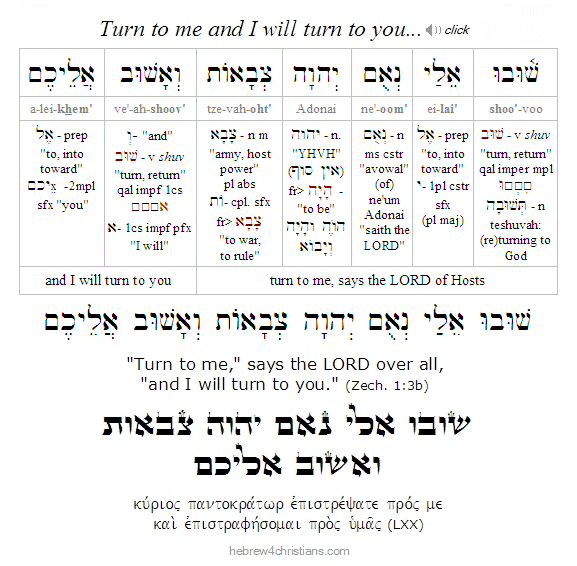 |
"I may live for thirty years, or perhaps forty, or maybe just one day: therefore I have resolved to use this day, or whatever I have to say in these thirty years or whatever I have to say this one day I may have to live — I have resolved to use it in such a way that if not one day in my whole past life has been used well, this one by the help of God will be." - Kierkegaard (Journals)
Honesty and Humility...

07.13.23 (Tammuz 24, 5783) An honest person is a humble person, since honesty compels the soul to confess the truth that it is profoundly ignorant, incapable of understanding even the simplest matters of life, and entirely powerless to heal itself... People argue over words, concepts, and abstractions, inflating their opinions above even the Reality they purport to define, but the humble soul acknowledges that he doesn't really know much about anything... And if "all the efforts of the human mind cannot exhaust the essence of a single fly," then how is it that people get puffed up and proud regarding their supposed knowledge of God Himself? Far better to approach God in deep reverence, wonder, love, and childlike trust than to profess a theology based on pride and illusions...
To a visitor who described himself as a seeker after Truth the sage said, "If what you seek is Truth, there is one thing you must have above all else." "I know," said the man, "an overwhelming passion for it." "No," the sage replied, "rather an unremitting readiness to admit you may be wrong."
Thomas Aquinas' most significant work was his Summa theologiae or 'Summary of Theology,' a massive book that attempted to "systematize" all of Christian theology. He worked on it for many years, but when he was nearly finished he underwent a spiritual experience that, as he himself explained, made everything he had written "seem like straw." He thereafter gave up writing about "theology" after he encountered the Reality itself. You may perfect doctrine and exist untruthfully, whereas you might not have perfect doctrine, but exist truthfully. The devil knows how to quote Scripture, and often does so, but is a devil still.
וְארַח צַדִּיקִים כְּאוֹר נגַהּ
הוֹלֵךְ וָאוֹר עַד־נְכוֹן הַיּוֹם
ve·oh'·rach · tza·dee·keem · ke·ohr · noh'·gah
hoh·leikh · vah·ohr · ad-ne·khon · hai·yohm

"The path of the righteous is like the light of dawn,
which shines brighter and brighter until full day." (Prov. 4:18)

Hebrew Lesson:
Proverbs 4:18 Hebrew Reading (click):
Of course truth is important, and we ask for God's revelation by the power of the Holy Spirit, but this means knowing from a place of real humility... We must follow the path of peace, even if that requires that we "overlook" some of our doctrinal convictions for the sake of love. I don't mean we should throw away our principles, God forbid, but we rather hold them with an inward passion that is at the same time willing to be overlooked, to suffer, to be misunderstood, and even to be mistreated by others. The key here is not be indulge in self-pity or resentment, which does no good. And above all we ask God for divine wisdom. God is faithful and true; if we ask Him for bread, he won't give us a stone (Luke 11:11).
The Breath of His Life...
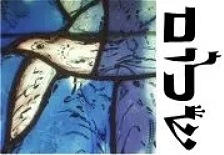
07.12.23 (Tammuz 23, 5783) The Holy Spirit is called "Ruach HaKodesh" (רוּחַ הַקֹּדֶשׁ), the "breath of the Holy One." The Spirit is likened to our breath to indicate how intimate and essential God is to our own lives.
By ourselves we are nothing (כְּלוּם), without substance or breath, for the Lord is our Maker and the one who imparts nishmat chayim (נִשְׁמַת חַיִּים), the "breath of life" (Gen. 2:7). If this is true of the natural, how much more so is it of the spiritual? We are as powerless to give pulse to our natural hearts as we are to give life to our spiritual existence. How does the natural heart receive its secret pulse? What is the origin of this "spark" of life within the body? As the lower, so is the higher...
We must be reborn to be made alive in the realm of the spirit. Such rebirth originates "not of blood, nor of the will of the flesh, nor of the will of man, but of God" (John 1:13). It is the Spirit of God (רוּחַ אֱלֹהִים), the Breath of the Holy One (נשימת יהוה), that quickens us to the truth of spiritual reality. Yeshua said this life was as mysterious as the motions of the wind: "The wind blows where it wishes, and you hear its sound, but you do not know where it comes from or where it goes. So it is with everyone who is born of the Spirit" (John 3:8). Just as the origin of the pulse of our physical life is a mystery to us, so is the origin of life from above. Just as we received nishmat chayim (נִשְׁמַת חַיִּים) to partake of the atmosphere of this realm, so we need receive nishmat chayim chadashah (נשמת חיים חדשה), a new breath of life to partake of the atmosphere of the heavenly realm of the Spirit.
The life of the Spirit of God imparts the "fruit of the Holy Spirit" (פרי רוח הקודש) that is, supernatural qualities of heart (i.e., middot ha'lev: מידות הלב) that are evidence of newness of life. These fruits are spiritual in nature, derived from the heart of God: "love, joy, peace, patience, good will," and so on (see Gal. 5:22-23). Yeshua explained that a transformed life is a miracle of God: "The Spirit is the one who gives life; human nature is of no help! The words that I have spoken to you are spirit and are life" (John 6:63).
Hebrew Lesson
John 6:33a reading (click for audio):
If you feel breathless and filled with anxiety, ask the Father for the comfort of the Holy Spirit. "If you then, though you are evil, know how to give good gifts to your children, how much more will the heavenly Father give the Holy Spirit to those who ask him?" (Luke 11:13). By faith may you "receive the Holy Spirit" (John 20:22).
He is Close in all our Calling...

07.12.23 (Tammuz 23, 5783) The Torah states that the LORD is close to us "in all our calling to Him" (Deut. 7:7). He listens to all of our heart's cry - our yearning, our lament, as well as our praise, and attends to our daily needs. Our part is to turn to God for help in all that we do: we are to "know Him in all our ways" (בְּכָל־דְּרָכֶיךָ דָעֵהוּ) by trusting in his nearness (Prov. 3:5-6). Even if we feel our prayer is unanswered, we trust despite our temporary darkness, believing that God sees our need and knows what is best for us. God is close "in all our calling to Him" (בְּכָּל־קָרְאֵנוּ אֵלָיו), and therefore we are often brought to a place of need. We can endure suffering and find acceptance as we call upon God for help in all that we do.
בְּטַח אֶל־יְהוָה בְּכָל־לִבֶּךָ
וְאֶל־בִּינָתְךָ אַל־תִּשָּׁעֵן
בְּכָל־דְּרָכֶיךָ דָעֵהוּ וְהוּא יְיַשֵּׁר ארְחתֶיךָ
be·tach · el · Adonai · be·khol - lee·be'·kha
ve'el · bee·nah·te·kha · al · tee·sha·ein
be·khol · de·rah·khe'·kha · dah·ei·hoo · ve·hoo · ye·ya·sher · ohr·choh·te'·kha

"Trust in the LORD with all your heart,
and do not rely on your own understanding.
Know Him in all your ways, and He will straighten your paths."
(Prov. 3:5-6)
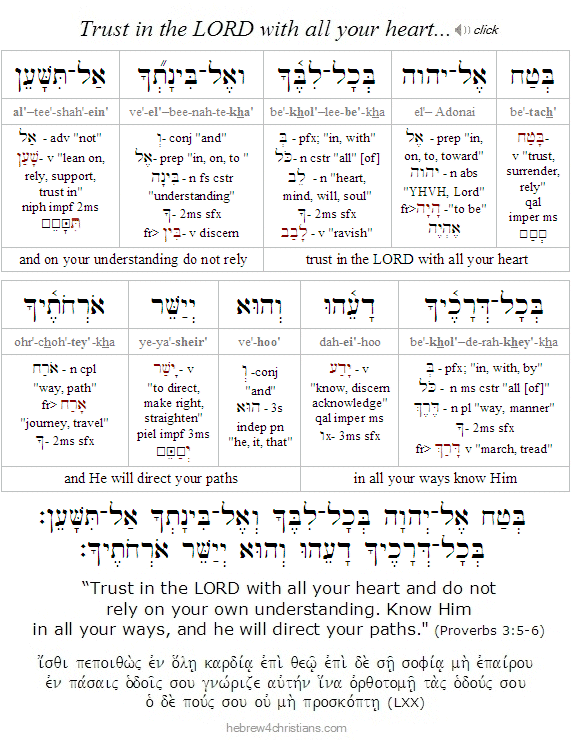
"Trust in the LORD with all your heart... know Him in all your ways." The Hebrew word for trust is "bittachon" (בִּטָחוֹן), from a root word (בָּטָח) that means "to lean upon," to feel safe and secure.... Bittachon describes emotional acceptance of the goodness of the LORD. Some of the sages have said that while emunah (אֱמוּנָה), or "faith," represents a state of cognitive understanding (בִּינָה) that God is involved in all the events of the universe, bittachon means emotionally trusting that the Lord is present in every situation for your good.... Rabbi Bechaya put the distinction this way: "Everyone who trusts has faith, but not everyone with faith trusts." Bittachon is an intuitive awareness of the personal love of God for your life, coupled with complete trust that He deeply cares for you (Rom. 8:28). It is an expectation that the love of God is "I-AM-always-with-you," too.
No Followers at Secondhand...

07.12.23 (Tammuz 23, 5783) Soren Kierkegaard reminds us that there are no followers of Yeshua "at secondhand," and that all of us are therefore truly "contemporaries" of the resurrected Messiah. God is not a respector of persons, and there remains the same proximity between Yeshua's contemporaries and those of us who are living today, near the end of this age. No one can "follow Jesus" by reading the abstract speculations of theologians, just as no one can learn about Him as an archaeologist might study a relic of the past... No, the Name of God, the Tetragrammaton (יהוה), means: "God is Present" (i.e., it is a play on the Hebrew verb hayah [הָיָה], "to be"), and therefore we only come to know God through living faith - just as Yeshua's first disciples came to realize who He was... The same may be said regarding our spiritual "adoption" in heaven: Each person, whether Jew or Gentile, must be adopted into God's family... Our identity is a matter of faith in God's promises, not on race, DNA, or family lineage. If you are truly one of God's children, understand that God is your Heavenly Father and that relationship takes priority over the seeming way of the flesh in this world... Just as there are no "secondhand" disciples so there are no secondhand children. God doesn't have any grandchildren in heaven, only children: He is not your "heavenly grandfather" but your heavenly Father (אֲבִיכֶם בַּשָּׁמַיִם).
Dwight Moodly once said, "God sends no one away empty except those who are full of themselves." Similarly, Matthew Henry observed that "many ask good questions with a design rather to justify themselves than inform themselves, rather proudly to show what is good in them than humbly to see what is bad in them." It is rarely the "professor" or even the "admirer" who evidences real faith, since they are often moved by motives that disclose something other than the heart of the Father:
"Loftiness is naturally an easy thing, and to feel oneself drawn to it is easy enough. But Christ who from on high draws all men to Himself does not take them out of the world where they live, and therefore to everyone who is drawn unto Him in the heights will experience lowliness and humiliation as a matter of course.
This Christ knows very well; and He knows also that the permission to begin with the easiest, or with what seems the easiest, is a necessary deceit in the process of education, and that the fact of it's becoming harder and harder is in order that life may become in truth a probation and examination… A man has to be handled carefully, and hence it is only little by little that his task is made clear to him, little by little he is screwed tighter and tighter by the greater and greater and greater effort of probation and examination. So little by little it becomes for the individual a serious truth that to live is to be examined, and the highest examination is this: whether one will be in truth a Christian or not." (Kierkegaard, Training in Christianity)
While many people may "admire" Yeshua's ethical teachings, they stumble when they are confronted with His cross... Yet this is the heart of the message of God's love: the greatest good is revealed in the suffering of Yeshua for our sins (1 Cor. 2:2). The Master of Life was "despised, rejected of men, a man of sorrows and acquinted with sickness" from whom people turned away their faces in disgust (Isa. 53:3) -- and we are called to take up the cross and follow Him... "When Christ calls a man, he bids him come and die..." We identify with the mission of God's love and smolder through the days and nights under constant self-examination our heart's motivation. Following Yeshua means being a witness to His truth, and retaining the message of His love in a world of ambiguity, pain, and testing....
For those who are God's children, testing in this age is designed to impart the character and image of God's son within our hearts. As C.S. Lewis once remarked, "God doesn't love you because you are good, but He will make you good because He loves you." He shows us a "severe mercy..." It is a fearful thing to fall into the hands of the Living God (אֱלהִים חַיִּים), though I would rather be corrected by our LORD than to be judged along with this world.
Hebrew Lesson
Proverbs 3:12 Hebrew reading (with commentary):
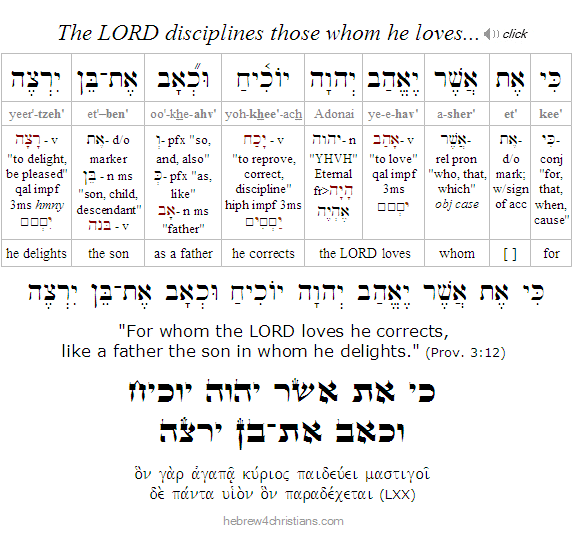 |
The Central Thing...
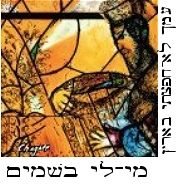
07.11.23 (Tammuz 22, 5783) From our Torah portion this week (i.e., parashat Mattot) we read: zeh ha'davar asher tzivah Adonai (זה הדבר אשׁר צוה יהוה), "This is the thing the LORD has commanded" (Num. 30:1). The language here seems to suggest that there is only one matter that God has commanded, namely, to speak truth and to be faithful in our promises (Num. 30:2). This is because the sacredness of our word is the foundation for all our other responsibilities. After all, if our word is equivocal, it is unclear, unreliable, undecided, and therefore ultimately meaningless.... Insincere words are without genuine commitment, and the lack of decisiveness undermines all Torah. זה הדבר אשׁר צוה יהוה - "This is the thing the LORD has commanded," namely, to accept your duty to honor the truth; to keep your faith in God's word; and to hold sacred your commitment before God. May the Lord help us be people of righteousness and truth. Amen.
Hebrew Lesson
Proverbs 8:7 Hebrew reading (click):
 |
Counting the Cost...

[ "To the frivolous Christianity is certainly not glad tidings, for it wishes first of all to make them serious..." - Soren Kierkegaard ]
07.11.23 (Tammuz 22, 5783) One of the most important questions regarding knowing God through Yeshua is what it means to be a disciple, or follower of him. The Hebrew word for disciple is talmid (תלמיד), from the root lamad (למד) meaning "to learn." In Jewish tradition, a disciple generally meant being a student of a rabbi, with the goal of learning Torah and the application of the commandments. Various religious schools offered different approaches to talmud Torah (i.e., the study of Torah), but the goal was to become attached to the Torah and to become "kosher" in observing the commandments. The focus of a disciple was upon learning truth as a form of doctrine, theology, practice, or sometimes mystical awareness.
Nevertheless, as Kierkegaard noted, when truth is regarded as objective or abstract, the role of the teacher is "vanishing point," because once the truth is known, the teacher is not necessary, yet in the case of Yeshua "the object of faith is not the teaching but the Teacher himself." In other words, in the case of Christianity, the truth is realized in a trusting relationship with the Master himself: "Christ did not appoint professors, but followers. If Christianity is not reduplicated in the life of the person expounding it, then he does not expound Christianity, for Christianity is a message about living and can only be expounded by being realized in people's lives." As Yeshua taught, the way of discipleship is the way of the cross - a wholehearted surrender to the sacrificial mission and will of the Lord.
Regarding the "cost of discipleship" (to use Bonhoeffer's phrase), Yeshua had much to say. For instance, the parable of the "Great Banquet" (see Luke 14:16-24) illustrates both God's grace to sinners but also the unwillingness of people to genuinely receive it. The invitation is given for all who are willing to come and to freely partake of God's "banquet" given in Messiah, but many made one excuse or another as to why they could not attend.
In light of this indifference, Yeshua warned that the willingness to earnestly take hold of the summons is essential to the life of salvation, and indeed it is the key to knowing God, since it is impossible to be attached to God without authentic commitment: "If anyone comes to me and does not hate his own father and mother and wife and children and brothers and sisters, yes, and even his own life, he cannot be my disciple. And whoever does not bear his own cross and come after me cannot be my disciple" (Luke 14:26-27).
This is not hyperbole for rhetorical effect. Our personal relationship with Yeshua must be primary and foundational. No other relationship - not even with our closest family members - can supersede our devotion to the Lord. "And he said to all, 'If anyone would come after me, let him deny himself and take up his cross daily and follow me. For whoever would save his life will lose it, but whoever loses his life for my sake will save it. For what does it profit a man if he gains the whole world and loses or forfeits himself?'" (Luke 9:23-25).
Discipleship means "taking up the cross." The picture here is someone on their way to be executed. It's the slow walk down death row. Taking up the cross does not mean "toughing it out" or stoically bearing personal sorrows or burdens. No, the cross represents wholesale surrender to God, the death of the ego and forgetting its concerns altogether. Those who refuse the cross cannot be Yeshua's disciples.
The "crucified life" lets go of its own agenda in surrender to God's will. "At the very threshold you must say to yourself: 'My life is over... I am condemned to die. I no longer have any property whatsoever... Only my spirit and my conscience remain precious and important to me'" (Aleksandr Solzhenitsyn). This is the starting point, but the crucified life is more than being crucified, of course, but living the life beyond the power of death - living in communion with the risen Lord who empowers us to serve in the blessing of the Holy Spirit.
Like all sacrifices brought to the altar, we must pass through death to life by means of our union with the Messiah at the cross... It is only after the cross that it may be truly said, "It is no longer 'I' who lives; now it is Messiah who lives His life in me" (Gal. 2:20). There is indeed strength, power, and victory – but such comes after the cross, after we reckon carnal energy as useless. "Not by might, nor by power, but by My Spirit, says Adonai Tzeva'ot" (Zech. 4:6).
Yeshua gave two further illustrations to admonish us to count the cost of discipleship in Luke Chapter 14. First he rhetorically asked who would attempt to build a tower without first reckoning the expense? If someone were to go ahead and lay a foundation but couldn't finish the building for which it was designed, wouldn't that reveal that his decision to build was foolhardy and not clearly thought through? (Luke 14:28-29).
He then gave a parable about a king who was threatened with invasion by another whose army was twice the size of his own (Luke 14:31-33). In this case the king was forced to make a decision: he must weigh the risks and prepare accordingly. No matter what he may choose he would suffer the consequences. And that seems to be Yeshua's point: whatever you decide about becoming his disciple - whether you esteem it well worth the price or too costly - it is your decision to make, and you will bear the consequences. You can accept or refuse him, but you cannot escape or dither the choice: In the question of Yeshua, choosing not to choose is your choice nonetheless...
So the question we all face is whether we are genuinely Yeshua's disciples or not... It is not enough to "admire" Yeshua or to be a "fan." As Kierkegaard said, "The difference between an admirer and a follower still remains, no matter where you are. The admirer never makes any true sacrifices. He always plays it safe. Though in words, phrases, songs, he is inexhaustible about how highly he prizes Christ, he renounces nothing, gives up nothing, will not reconstruct his life, will not be what he admires, and will not let his life express what it is he supposedly admires." Nor are there followers at "second-hand." Each of us are contemporaries of the living Messiah, and therefore the decision is ours to make.
The reward of being a true disciple is inestimably great, though tragically some believe they are authentic followers of Yeshua when in fact they are not (Matt. 7:21-23). Yeshua said that the person who does not make their relationship with him to be of ultimate concern "cannot be my disciple"; he said whoever does not bear his cross "cannot be my disciple"; and he said that whoever clings to this life and its trinkets "cannot be my disciple" (Luke 14:26-27; 14:33). In all three cases Greek phrase for "cannot be my disciple" (οὐ δύναταί μου μαθητὴς εἶναι) means it is not possible for him to be so. "Salt is good, but if it has lost its taste, how shall its saltiness be restored? It is of no use either for the soil or for the manure pile. It is thrown away. He who has ears to hear, let him hear" (Luke 14:34-35).
Despite these sober and solemn warnings, let us hold fast to our faith and to trust Yeshua for the blessing of his salvation. We are not perfect people; we fail, we sin, we are often deficient in faith. Indeed it is a miracle to be in relationship with the Lord, and with Him all things are possible, including our sanctification as his disciples. Remember that all the commandments given in Scripture are directed to the new nature God bestows within us in the miracle of our rebirth. Again, it is only after the cross that it may be truly said, "It is no longer 'I' who lives; now it is Messiah who lives His life in me." We are called to have trust that we are being made new creations empowered to walk in the Spirit. Let us then walk by faith, not by sight, confident of God's compassion for us even when we sometimes falter.
May God bless us with the willingness and resolve to follow him with all our heart. May the Spirit of God quicken us to surrender ourselves fully to the passion and will of our beloved Savior and Lord. Shalom and Amen.
Hebrew Lesson
Psalm 139:23-24 reading (click):
 |
Comfort in Affliction...
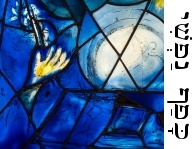
[ "The truth, even though I cannot feel it right now, is that I am the chosen child of God, precious in God's eyes, called the Beloved from all eternity and held safe in an everlasting embrace... We must dare to opt consciously for our chosenness and not allow our emotions, feelings, or passions to seduce us into self-rejection."- Henri Nouwen ]
07.10.23 (Tammuz 21, 5783) One of the ultimate tests of faith is to refuse to succumb to despair in the face of personal suffering. For those who struggle with the loss of a loved one, or some terminal disease, the test of faith calls for the heart to look beyond the realm of appearance, where the "outward man" perishes, to the realm of ultimate healing, where the "inward man" is finally liberated from the ravages of sin and death.
Our present condition is one of a "divided house" that cannot stand. The old nature is earthbound, a creature of the dust of the earth, whereas our new nature comes from the breath of life imparted through faith in Jesus. In His infinite wisdom, God has imparted the treasure of hope in "jars of clay" so we can understand that our sufficiency comes from Him alone (Psalm 119:25; 2 Cor. 4:7).
Our natural tendency is to seek comfort and to flee from pain. We fret over the insecurities of our world and instinctively seek shelter from threats we perceive. Yet the world itself is subject to vanity (Rom. 8:20); it is pain-riddled and constrained to ongoing bereavement: "All flesh is grass, and all its beauty is like the flower of the field" (Isa. 40:6). As Job said, ruach chayai (רוּחַ חַיָּי), "my life is but a breath" (Job 7:7).
God often uses suffering to do a "deep" work of change within us. Indeed, the tribulations of life are described using the image of the "squeezing of grapes," which yield something far more precious than any kind of this-worldly happiness. "For our light affliction, which is but for a moment, prepares us for a far more exceeding and eternal weight of glory" (2 Cor. 4:17).
Of course there are dark moments where pain can almost blind us to all hope. For those who know it, there are long hours where there seems no respite or consolation from affliction. But genuine faith affirms with Job that, "though He slay me, yet will I trust in Him" (Job 13:15). This is comfort we have in affliction: God's promise revives our hearts to say, "I know that my Redeemer lives, and at the last he will stand upon the earth" (Job 19:25). Even in the "shadow of the valley of death" (i.e., this moribund and broken world), the LORD is with us and comforts us with His Presence (Psalm 23:4).
Hebrew Lesson
Psalm 119:50 Hebrew reading:
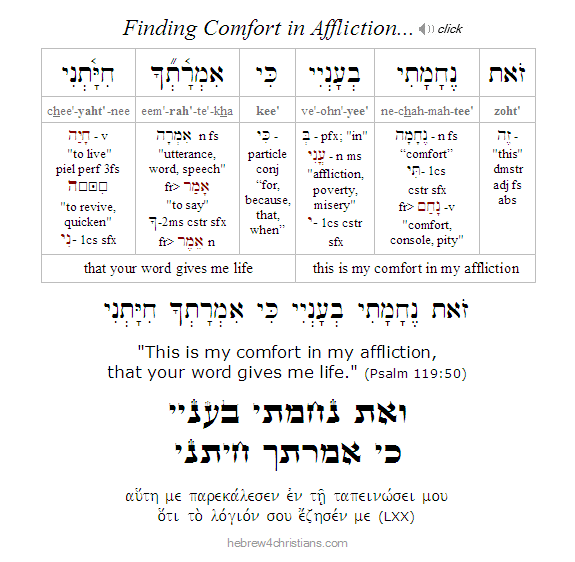 |
Salvation and Sanity...

07.10.23 (Tammuz 21, 5783) It is written in our Scriptures (2 Tim. 1:7) that "God has not given us a spirit of fear (πνεῦμα δειλίας), but of power, and love, and a sound mind." Note that the Greek word for "sound mind" (σωφρονισμός) comes from a verb (i.e., sodzo: σῴζω) that means being made "safe" (i.e., soas: σωός) or healed because of the power and grace of the Living God. Understand, then, the connection between fear and confusion, and note further the connection between having a sound mind and a heart of peace and courage. "The work of righteousness shall be peace; and the service of righteousness shall bequietness and confidence for ever (Isa. 32:17). A fearful or shameful attitude (פַּחדָנוּת), then, weakens your resolve, quells your love, and introduces pain to your thinking. It is the old trick of the enemy of our souls to lead us unto despair, the exile of shame, and cruel bondage to untruth. As always the answer is the same: namely, teshuvah, turning to God and embracing the grace and love given in Yeshua as our deepest reality, our power, our heart, and our mind.
The Name of the LORD (יהוה) means "Presence" and "Love" (Exod. 3:14; 34:6-7). Yeshua said, "I go to prepare a place for you," which means that his presence and love are waiting for you in whatever lies ahead (John 14:1-3; Rom. 8:35-39). To worry is to "practice the absence" of God instead of practicing His Presence... Trust the word of the Holy Spirit: "For I know the plans I have for you, declares the LORD, plans for healing peace and not for evil, to give you a future and a hope (Jer. 29:11). Chazak ve'ematz, chaverim!
Take comfort that your Heavenly Father sees when the sparrow falls; he arrays the flower in its hidden valley; and he calls each star by name. More importantly, the Lord sees you and understands your struggle with fear... Come to him with your needy heart and trust him to deliver you from the burdens of your soul (Matt. 11:28).
Hebrew Lesson
Psalm 25:1-2a reading (click):
The Gift of Desperation...

[ The following is related to our Torah for this week, Parashat Pinchas, which describes the daily offering of the lamb as God's "food" (Num. 28:1-8)... ]
07.10.23 (Tammuz 21, 5783) Many of us have been given the "gift of holy desperation." That's the special blessing of needing God so viscerally that you will fall apart or even self-destruct apart from His daily intervention in your life... "Blessed are the poor in spirit, for theirs is the kingdom of heaven" (Matt. 5:3). We groan in hope... Our Torah says that the fire on the altar was to be kept burning at all times (Lev. 6:12-13), which symbolizes esh tamid (אֵשׁ תָּמִיד), or the inner fire of the heart... How blessed it is to be full of the fire of this inner need, this relentless groaning, this constant hunger to be set free. Even more wonderful is how the korban tamid - the daily whole burnt sacrifice of the lamb - represents Yeshua's ongoing and wholehearted passion for you to come alive to God's love...
Hebrew Lesson:
Psalm 143:6 Hebrew reading:
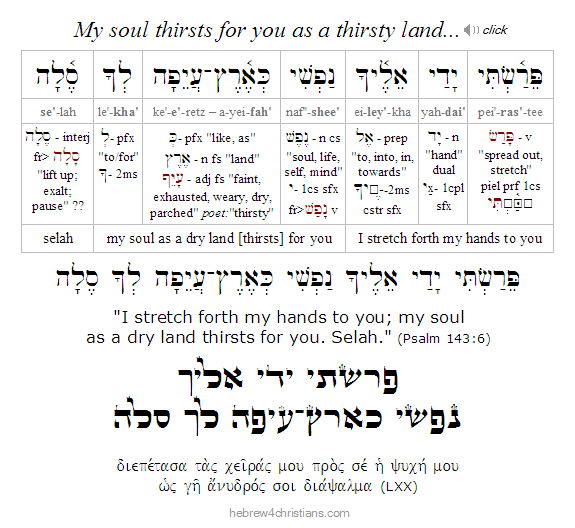 |
Feeding God's Heart...

07.10.23 (Tammuz 21, 5783) As I've discussed elsewhere on the site over the years, the climax of the revelation at Sinai was not the giving of the Ten Commandments (עשרת הדיברות) to Israel but was instead the vision of the Altar of the sanctuary (מזבח המשכן). However -- as our Torah portion this week makes clear -- the central sacrifice upon this altar was the daily sacrifice (i.e., korban tamid: קרבן תמיד) of a defect-free male lamb with unleavened bread and wine. The LORD calls this "my offering" (קרבני) and "my bread" (לחמי) [Num. 28:1-8]. In other words, the service and ministry of the Mishkan (i.e., Tabernacle) constantly foretold the coming of the great Lamb of God (שה האלהים) who would be offered upon the altar of the cross to secure our eternal redemption (John 1:29; Heb. 9:11-12).
The sacrifice of the lamb represents "God's food," a pleasing aroma (ריח ניחחי), for it most satisfied the hunger of God's heart (Eph. 5:2). Indeed, Yeshua's offering upon the cross represents God's hunger for our atonement, our healing from the sickness of death, since it restored what was lost to Him through sin, namely, communion with his children. God could never be satisfied until He was able to let truth and love meet (Psalm 85:10).
Sometimes we say that we "hunger for God," but it is vital to remember that it is God who first hungers for us. God desires our love and fellowship. He comes to seek fruit among the trees - but does He find any? He walks in the cool of the day, calling out to us, but are we attuned to hear His voice? Do we accept the invitation to be in His Presence? When God "knocks on the door of your heart" to commune with you, what "food" will you be serving? (Rev. 3:20). Every day we are given an opportunity to "feed God" through expressing faith, hope, and love. Ultimately it is our obedience to the truth is what "feeds" Him: "Behold, to obey is better than sacrifice, and to hearken than the fat of rams" (1 Sam. 15:22).
 |
We "feed God" by offering heartfelt prayer, by walking in faith, by yearning for Him, by studying Scripture, by participating in corporate worship, by giving tzedakah, by performing acts of kindness (gemilut chasadim) for others, and so on (Heb. 13:15-16). Expressing our love for God is the deepest meaning of teshuvah, which is an "answer" or response to His great love for us (1 John 4:19). Just as God feeds and sustains us through His love, so we "feed Him" by our yearning, our prayers, our praise, and our worship...
For more on this subject, see "The Hunger of God's Heart."
Perfected Strength...

07.10.23 (Tammuz 21, 5783) "Have you not known? Have you not heard? The Eternal One, the LORD, is the Creator of the ends of the earth (בּוֹרֵא קְצוֹת הָאָרֶץ). He does not faint nor grow weary; his understanding is unsearchable. He gives power to the faint, and to him who has no might he increases strength" (Isa. 40:28-29).
Human pride has no objection that God can impart strength, but it objects that strength is found in those who are broken and weary – that is, to those mortally wounded in the battle against evil. The principle of the self-life, the ego, religious observance, "doing the law," etc., is a spiritual dead-end. The word is this: God gives strength to the weary, to the faint, to those who are without potency or power. But this means that we first must be emptied, broken, and stripped of our self-sufficiency before the strength of God is manifest in us: "My power is made perfect (τελειοῦται) in weakness" (2 Cor. 12:9). God's way is first to break us, to make us weaker and weaker, so that he can then fill us with the miraculous divine nature.
Like all sacrifices brought to the altar, we must pass through death to life by means of our union with the Messiah at the cross... It is only after the cross that it may be truly said, "It is no longer 'I' who lives; now it is Messiah who lives His life in me" (Gal. 2:20). There is indeed strength, power, and victory – but such comes after the cross, after we reckon carnal energy as useless. "Not by might, nor by power, but by My Spirit, says Adonai Tzeva'ot" (Zech. 4:6).
Hebrew Lesson:
Isaiah 40:29 reading (click):
Where we read, "Messiah who loved me and gave himself for me" (Gal. 2:20), we emphasize the object of God's redeeming love; we stress that this word is being spoken to "me," and that Messiah's love is poured out "for me." But how can we justify doing so, in light of the innumerable souls that have been brought forth in the world? The Mishnah asks, "Why was man created alone?" and answers so that each person must say the world was created for me. "Whoever destroys a soul, it is considered as if he destroyed an entire world; and whoever saves a soul, it is considered as if he saved an entire world..." Amen.
Love's Long Passion...

07.10.23 (Tammuz 21, 5783) Newness of life is a miracle, since it is a gift from heaven (John 3:3-8; Eph. 2:8-9). Only God can give to us the love for Him that he fully knows we so desperately need; only God can deliver us from our "disordered loves" to take hold of what is truly essential. All we can do is ask, and to keep on asking - even as we struggle on, despite ourselves - until we begin to understand what we really need. It's as if we are constantly being questioned, "Is this what you want?" and our choices confess the truth of what we believe... Only God does the miracle of real change within the human heart - only God can give life from the dead. Create for me a pure heart, O God, make new within me a spirit that says 'Yes!'" (Psalm 51:10). Amen.
Meanwhile, and "until our change comes" (Job 14:14), let us persevere in hope... Where it is written, love "suffers long..." (1 Cor. 13:4), the Greek word μακροθύμως (long-suffering) is derived from μακρός (long, great) + θυμός (passion), which indicates that love is a "long passion," that is, a passion that stays true despite the challenges it may encounter. May God grant us His comfort, friends...
 |
Knowing the Times and Seasons:
The Month of Av...

[ Rosh Chodesh Av, the start of the month of Av, begins Wednesday, July 26th at sundown... ]
07.10.23 (Tammuz 21, 5783) On the Biblical calendar, the fifth month of the year (counting from Nisan) is called "Av" (אָב) in Jewish tradition. The month of Av is traditionally regarded as the most tragic in the Jewish calendar. On the first day of this month, Aaron (the first High Priest of Israel) died (Num. 33:38), which was considered a ominous event. On the ninth day of the month (i.e., Tishah B'Av), the LORD decreed that the original generation rescued from Egypt would die out in the desert and be deprived from entering the Promised Land because they believed the faithless report of the Spies (Num. 13-14). Later both of the Holy Temples were destroyed on the ninth day of Av as well...
Because both of the Temples were destroyed on the ninth of Av, this date is remembered as lowest point of the "Three Weeks of Sorrow" (שלושה שבועות של צער) that began with the fast of the 17th of Tammuz (undertaken to recall both the shattering of the tablets after Moses discovered the people worshiping the golden calf and also the breach in the walls of Jerusalem by the Babylonians before the First Temple was destroyed). During this period, weddings and parties are forbidden. It is a time for solemn reflection and mourning for Israel.
The last two portions of the Book of Numbers (Mattot - Masei) are always read during the "Three Weeks of Sorrow." The sages say these readings were selected at this time to ultimately comfort us as we look forward to the "apportioning of the land" -- i.e., the ultimate fulfillment of God's promises to us. Indeed, the month of Av -- despite the sorrow of the loss of the Temple -- is sometimes called "Menachem Av" (מנחם אב) - the "Comfort of the Father." One day the lamentations of our present state of exile will come to an end.
Menachem Av may also mean the "comfort of Aleph-Bet" (אב). The Prophet Jeremiah, who witnessed the destruction of the Temple, later wrote the scroll of Lamentations to commemorate this tragic time. The form of Lamentations is an acrostic based on the letters of the Hebrew Aleph-Bet (like Psalm 25, 34, 37, 119, Prov. 31, etc.). The scroll has five sections (perekim). The verses of the first two chapters and the last two chapters all are written in alphabetical order (א,ב,ג). The middle chapter, however, writes its verses using a triple Aleph Bet ordering, i.e., "Aleph, Aleph, Aleph," "Bet, Bet, Bet," "Gimmel, Gimmel, Gimmel," and so on. Since Yeshua is called the "Aleph and Tav" of God (האלף והתו) in Rev. 23:13, the comfort of the Father is revealed in Him! Yeshua is "et" (את), the direct sign and wonder of God!
Since the Book of Deuteronomy is mishneh Torah - a "retelling of Torah," it can be said that the written Torah -- from a narrative point of view -- ends with the reading of these final portions from Numbers, and by extension, with the yearning for Zion. And so it is to this day. We await the return of our Messiah while we live in exile here on earth. And even though the Temple of the LORD is spiritually present in the Person of the resurrected Messiah, it will be made fully manifest in the days to come: first in the Millennial Kingdom (after Yeshua's Second Coming), and later still in olam habah (the world to come) as the eternal community of those redeemed by the Lamb of God (Rev. 21:22-23). So for those of us who hold faith in Yeshua as Messiah, our mourning for the Temple is really mourning for the Presence of our Beloved Savior.
Hebrew Lesson
Lamentations 1:1 reading (click):
Relying on God Alone...

07.09.23 (Tammuz 20, 5783) "We we were so utterly burdened beyond our strength that we despaired of life itself, yes, we felt that we had received the sentence of death; but that was to make us rely not on ourselves, but on God who raises the dead" (2 Cor 1:8-9). This marks the end of carnal hope, when we realize we are but "dead men walking," and from this extremity of inner desperation and clarity we learn to rely solely on God for what we need. Here we abandon ourselves to God's care, despite the despair, darkness, and fear. We rely on "God who raises the dead," because all other remedies have been vanquished. It is a great gift to be so afflicted, for these "troubles of love" teach us to trust God alone for all we need. The only way out is through. We don't seek an easy way of life, but only that the LORD our God be with us throughout our troubles. "My portion is of the Lord," says my soul, "therefore will I hope for him" (Lam. 3:24).
Hebrew Lesson
Lamentations 3:24 reading (click):
Integrity of our Words...

07.09.23 (Tammuz 20, 5783) Our (first) Torah reading for this week (i.e., parashat Mattot) discusses various laws regarding vows and oaths... We read: "If a person vows a vow (i.e., neder: נֶדֶר) to the LORD, or swears an oath (i.e., shevuah: שְׁבוּעָה) to bind himself by a pledge, he shall not break his word. He shall do according to all that proceeds out of his mouth" (Num. 30:2). The Hebrew expression "break his word" literally means "profane his word" (יַחֵל דְּבָרוֹ), that is, to defile the soul by causing it to be inwardly divided, irresolute, and cowardly. After all, breaking your word means violating the integrity of who you are, showing that what you say and what you do are not unified, and this leads to feelings of shame. Your words confess your reality and bring it to life... If you cannot keep your word, your word becomes profane, empty, lost -- you become a "stranger to yourself," unsure of what you intend. "Let your "yes" be yes and your "no" be no; learn to say what you mean and mean what you say (Matt. 5:37).
In the Book of Proverbs we read, "When words are many, transgression is not lacking, but whoever restrains his lips is wise" (Prov. 10:19). The Chofetz Chaim comments: "When people are preparing a telegram, notice how carefully they consider each word before they put it down. That is how careful we must be when we speak." As James admonishes us: "Let every person be quick to hear, slow to speak, slow to anger" (James 1:19).
Hebrew Lesson:
Proverbs 10:19 reading (click):
 |
Since words represent thoughts, the use of our tongues has to do with how we choose to think... "Think on these things..." We are instructed to "take every thought captive" (αἰχμαλωτίζω, i.e., lead away as a prisoner) to the obedience of Messiah... It is wise to restrain our speech, because, after all, we often have no idea what we are talking about, and therefore our words can become unruly and even dangerous. Whenever we open our mouth to speak, Heaven is listening (Matt. 12:36-37).
This Week's Torah:
Parashat Mattot-Masei...

07.09.23 (Tammuz 20, 5783) Shavuah Tov, chaverim! This week we will read a "double portion" of Torah that concludes Sefer Bamidbar, or "the Book of Numbers." Our first Torah portion, called parashat Mattot (מַטּוֹת, "tribes"), begins with the LORD giving laws and prohibitions regarding the making of vows (nedarim). After this, the Israelites were commanded to wage war against the Midianites for seducing the people to sin at the incident of "Baal Peor." During the ensuing battle, the wicked sorcerer Balaam was killed, as well as five tribal kings of the land of Midian. The tribes of Reuben and Gad (and half of the tribe of Manasseh) then asked permission to settle in the pasture land of Gilead (on the east of the Jordan), since they had large herds of cattle. At first Moses hotly disapproved of their request, since he feared that the other tribes would lose heart if these tribes stayed behind during the conquest of Canaan. However, when the tribal leaders made a vow to join the fight while their families remained in Gilead, Moses finally agreed.
 |
In our second Torah portion, called parashat Masei (מַסְעֵי, "journeys"), Moses recounted the various "stations" of the journey, and instructed that when the people crossed the Jordan into the land of Canaan, they were to drive out all the inhabitants and to utterly destroy all traces of their culture and religion. After this, the land would be divided by lot according to tribes of Israel, based on the size of each tribe. God then warned Moses that if the Israelites would not drive out the inhabitants of the land, they would become a "snare" to them, and God would then judge and exile the Israelites as he intended to do to the Canaanites.
The Israelites were then instructed to assign towns with surrounding pasture lands to the Levites. There were to be a total of 42 towns, chosen by lot and distributed throughout the land according to the size of each tribe. In addition, six more cities were to be given to the Levites and designated as "cities of refuge" to which a person who unintentionally killed another may flee to take refuge from an "avenger of blood" (i.e., next of kin). The death penalty required testimony from at least two witnesses and admitted of no "ransom" (plea bargain) to be offered in place of the murderer's execution. On the other hand, a person responsible for involuntary manslaughter of another was required to dwell within the confines of a city of refuge until the death of the High Priest, after which time he was free to return to his home without fear of retribution from an avenger of blood.
The Book of Numbers – and the historical narrative of the Torah itself – concludes with the resolution of the question of legal inheritance in the land just before Joshua would lead the people into the land of Canaan. The book ends with this statement: "These are the commandments and the rules that the LORD commanded through Moses to the people of Israel in the plains of Moab by the Jordan at Jericho."
 |
Resources:
Finding the Heart of Life...

07.07.23 (Tammuz 18, 5783) It is written in our Scriptures: "There is no fear in love, but perfect love (i.e. ha'ahavah ha'shelemah: הָאַהֲבָה הַשְּׁלֵמָה) casts out fear" (1 John 4:18), and therefore the Spirit of God encourages us to press forward in trust. When we are afraid, we are believing the lie there is something beyond God's control or reach, and therefore God is "not enough"... In times of testing you must remind yourself of what is real. God formed you in your mother's womb, breathed into you nishmat chayim, the breath of life, and numbers all your days... Every breath you take, every heartbeat in your chest is ordained from heaven, and indeed, there is not a moment of your life apart from God's sovereign and sustaining grace. So what, then, are you afraid of? Dying? Judgment in the world to come? Being left unloved, bereft of home, abandoned, consigned to outer darkness? King David said, "If I make my bed in Hell, behold, you are there" (Psalm 139:8).
The Holy One, the LORD our God, is not only present in your "happy moments," when you feel "put together" and respectable, but he is present in your desperate moments, in your hunger, your thirst, and in your secrets. May we never lose sight of God's love, especially in times of distress and trouble, since we trust that he is always working all things together for our ultimate good (Rom. 8:28). As it is written: "The one who finds [God's] heart loves his soul; the one who guards understanding finds blessing" (Prov. 19:8).
Hebrew Lesson
Proverbs 19:8 reading (click):
 |
Thank you my friends...

07.07.23 (Tammuz 18, 5783) I want to express my heartfelt thanks to my kindhearted supporters who have kept Hebrew for Christians online over the years. You are all in my prayers and I thank the LORD for each one of you. They are not empty words for me to say that I could not do this without you... Shabbat Shalom uvracha chaverim.
True and False Zeal...

[ The following entry concerns our Torah reading for this week, parashat Pinchas... ]
07.07.23 (Tammuz 18, 5783) You may be entirely sincere in your convictions, but you may be sincerely wrong... In the time of the Second Temple, for instance, the Zealots despised the rule of Rome. Their political hatred caused them to blindly regard anyone who didn't share their passion as a personal enemy. In one of the great tragedies of Jewish history, these Jewish zealots actually killed more Jews than did the Romans themselves! And how many Christians these days "kill" relationships with other believers because of their particular zeal regarding some doctrinal question? I am not suggesting that doctrine is unimportant, of course, but before you pick up that sword to do the business of Pinchas, you might do well to consider your heart's attitude...
"In this respect fundamentalism has demonic traits. It destroys the humble honesty of the search for truth, it splits the conscience of its thoughtful adherents, and it makes them fanatical because they are forced to suppress elements of truth of which they are dimly aware." - Paul Tillich
We need to be careful with our passions. There is a "false zeal" that leads to estrangement and confusion. Withholding love from others is ultimately grounded in an appeal to God as the administrator of Justice. It is an appeal to God as Elohim (אֱלהִים), not as YHVH (יהוה), the Compassionate Source of Life. If we insist on our rights, we appeal to principles of justice, i.e., to God as the Lawgiver. But if we intend to have God be the Judge of others, we must appeal to Him to be our own Judge as well. If we have an unforgiving spirit toward others, we will not receive our own forgiveness (Matt. 6:15); if we are judgmental toward them, we ourselves will be put on trial; if we are cruel and ungiving toward them, we will experience life as hellish, miserable and mean. This reciprocal principle of Kingdom life appears throughout Yeshua's teaching. According to your faith, be it done unto you (Matt. 9:29).
Hebrew Lesson:
Psalm 18:26 reading (click):
 |
Note: For more on this important topic, see "Parashat Pinchas: God's Greater Zeal."
Hold Fast to Truth...

07.07.23 (Tammuz 18, 5783) One of the primary strategies of the devil is to induce a sense hopelessness within your soul... The devil entices you to lose sight of what is ultimately real and who you really are. The truth of God is your weapon against the cascade of lies that pours forth from the world and its various princes (Eph. 6:11-18). The entire venture of teshuvah (repentance) presupposes that you are created "in the image of God," that you are related to him, and therefore your life has infinite value and inherent dignity. This is all the more evident in light of the awesome ransom that Yeshua gave to reconcile your soul with God (2 Cor. 5:21; 1 Pet. 2:24). Therefore hold fast to the truth, friends; da lifnei mi attah omed - "know before Whom you stand!" Turn to what is real, refuse the lies and despair of this fallen world, and review what will abide the test of Eternity.
Amen, where it is written: "For your lovingkindness is before my eyes and I have walked in your truth" (Psalm 26:3), we note that the verb translated "I have walked" (i.e., הִתְהַלַּכְתִּי) is "hithpael," a verb pattern used to express reflexive, intensive action done to oneself. Therefore we could translate this as "I earnestly choose to walk" in the truth, indicating decisiveness of intent, focus, purpose... As King Shlomo said: בְּכָל־דְּרָכֶיךָ דָעֵהוּ - "Choose to know Him in all your ways!" (Prov. 3:6).
If you forget the essence of your soul you begin to lose sight of your reason for being, the "why" that underlies all other whys... This essence, however, is not discovered by means of reason, but by revelation -- it is a divine disclosure that awakens you to newness of life. Teshuvah is a return to the arms of your Heavenly Father...
Hebrew Lesson
Psalm 26:3 Hebrew reading:
 |
Heeding the Call to Hope...

07.06.23 (Tammuz 17, 5783) Contrary to the assumption that the life of faith should always be triumphant, we all inevitably will experience various setbacks, pratfalls, troubles and sorrows in our lives. This does not mean that God does not care for us however, because on the contrary, this is by his design; a plan supervised by God's love and blessing, and the afflictions we therefore encounter are part of his work for our good (Rom. 8:28; Heb. 12:6). We descend in order to ascend. It make seem counterintuitive, but the heart of faith gives thanks for all things - the good as well as the evil (see Job 2:10). We affirm: "This too is for the good," yea, even in the midst of our struggle, no, even more -- precisely in the midst of our struggle -- for this, too, is for our good. Faith is the resolution to trust in the reality of God's goodness even during hard times when we feel abandoned or lost (Isa. 50:10). The Lord uses the "troubles of love" (יִסּוּרֵי אַהֲבָה) for our good - to wake us up and cling to him all the more, since this is what is most essential, after all...
The way out of despair is to hear a message from the higher world, the Heavenly Voice, that brings hope to our aching and troubled hearts: "Faith comes by hearing the word of Messiah - ῥῆμα Χριστοῦ" (Rom. 10:17). And yet what is the meaning of this message if it is not that all shall be made well by heaven's hand? There is hope, there is hope, and all your fears will one day be cast into outer darkness, swallowed up by God's unending comfort... "Go into all the world and make students (תַּלְמִידִים) of all nations" (Matt 28:19), and that means sharing the hope that what makes us sick - our depravity and despair - has been healed by Yeshua, and that we escape the gravity of our own fallenness if we accept his invitation to receive life in him. "For you will light my lamp; the LORD my God will outshine my darkness."
 |
Exercising faith means actively listening to the Eternal Voice, the Word of the LORD that calls out in love in search of your heart's trust... To have faith means esteeming God's love for you, that is, understanding that you truly matter to God, and that the Divine Voice calls out your name, too.... Living in faith means consciously accepting that you are accepted by God's love and grace. Trusting God means that you bear ambiguity, heartache, and darkness, yet you still allow hope to enlighten your way.
The Rizhiner Rebbe once said, "Let your light penetrate the darkness until the darkness itself becomes the light and there is no longer a division between the two. As it is written, "And there was evening and there was morning, one day." Yea, the darkness and the light are both alike unto Thee, O LORD, as it is written: "If I say, "Surely the darkness shall cover me, and the light about me be night, even the darkness is not dark to you; the night is bright as the day, for darkness is as light with you" (Psalm 139:11-12).
We walk by faith, not by sight - by hearing the Word of God, heeding what the Spirit of God is saying to the heart (2 Cor. 5:7). For now we "see through a glass darkly," which literally means "in a riddle" (ἐν αἰνίγματι). A riddle is an analogy given through some resemblance to the truth, though quite often the correspondences are puzzling and even obscure. Hence, "seeing through a glass darkly" means perceiving obscurely or imperfectly, looking "through" something else instead of directly apprehending reality. This is contrasted with the "face to face" (פָּנִים אֶל־פָּנִים) vision and clarity given in the world to come, when our knowledge will be clear and distinct, and the truth of God will no longer be hidden. Being "face to face" with reality means being free of the riddles, the analogies, the semblances, etc., which cause us to languish in uncertainty... Now we know in part, but then shall we know in whole.
Despite the obscurity of life in this temporary age, we are encouraged not to lose heart, since though our outer self is wasting away, our inner self is being raised into newness (ἀνακαινόω) day by day (2 Cor. 4:16). "For our light and transient troubles are achieving for us an everlasting glory whose weight is beyond description, because we are not looking at what can be seen but at what cannot be seen. For what can be seen is temporary, but what cannot be seen is eternal" (2 Cor. 4:17).
Therefore walk "by faith" as if the invisible is indeed visible. Stay strong and keep hope, for it is through hope that we are saved (Rom. 8:24). Faith is the conviction (ἔλεγχος) of things unseen (Heb. 11:1). Do not be seduced by mere appearances; do not allow yourself to be bewitched into thinking that this world could ever be your home. No, we are strangers and pilgrims here; we are on the journey to the reach "the City of Living God, to heavenly Jerusalem, to the assembly of the firstborn who are enrolled in heaven" (Heb. 12:22-23). Therefore do not lose heart. Stay focused and keep to the narrow path. Set your affections on things above since your real life is "hidden with God" (Col. 3:1-4). Do not yield to the temptation of despair. Look beyond the "giants of the land" and reckon them as already fallen. Keep pressing on. Chazak, chazak, ve-nit chazek - "Be strong, be strong, and let us be strengthened!" Fight the good fight of the faith. May the LORD our God help you take hold of the eternal life to which you were called (1 Tim. 6:12). Amen.
 |
The Will to Believe...

07.05.23 (Tammuz 16, 5783) The central issue of your spiritual life is the willingness to do God's will, or the willingness to believe, since these amount to the same thing.... Believe what? That God is real, that He has (personally) called you by name, that he has particularly redeemed you by Yeshua's own blood poured out for your sins, and that therefore that your identity and life are bound up with his mercy and truth... Perhaps this message seems too good to be true, and yet it is the heart's duty to take hold of hope and to refuse to yield to despair, as it is written: "Let not love and truth forsake you; bind them around your neck; write them on the tablet of your heart" (Prov. 3:3).
The spiritual danger here is being "pulled apart" in opposite directions, dissipating the soul so that it will not be unified, focused and directed. Both loving and hating the good is a state of painful inner conflict, ambivalence, and self-contradiction. "Who can bring a clean thing out of an unclean? there is not one" (Job 14:4), yet this is our starting point: "I find it to be a law that when I want to do right, evil lies close at hand" (Rom. 7:21). We are often willing and unwilling, or neither willing nor unwilling, and this makes us inwardly divided, weak, fragmented, anxious, and "soulless." An honest faith that "wills one thing" binds the soul into a unity, or an authentic "self." As King David said, "One thing have I asked of the LORD, that will I seek after: that I may dwell in the house of the LORD all the days of my life, to gaze upon the beauty of the LORD and to inquire in his temple" (Psalm 27:4).
The way to be healed of a divided heart is to earnestly make a decision: "Draw near to God, and he will draw near to you" (James 4:8). There are no conditions given here -- other than your raw need to connect with God for help. "Purify your hearts, you double-minded ones" (δίψυχοι, lit. "two-souled ones"); make up your mind and be unified within your heart: "How long will you go limping between two different opinions?" (1 Kings 18:21). You are invited to come; God has made the way; your place at the table has been set and prepared...
Our Heavenly Father "sees in secret.." As William James once said: "The deepest thing in our nature is this region of heart in which we dwell alone with our willingnesses and our unwillingnesses, our faiths and our fears" (James: Is Life Worth Living, 1896). Or as Albert Camus later wrote, "There is but one truly serious philosophical problem, and that is suicide. Judging whether life is or is not worth living amounts to answering the fundamental question of philosophy" (Myth of Sisyphus, 1942). It is there, in the secret place of the heart, that the sound of the "knock" is either heard or disregarded (Rev 3:20); the stakes are nothing less than everything. May the Lord give us the willingness to do His will and the courage to believe in His love. And may God deliver us from doubt and from every other fear. May we all be strong in faith, not staggering over the promises, but giving glory to God for the miracle of Yeshua our LORD. May we all be rooted and grounded in love so that we are empowered to apprehend the very "breadth and length and height and depth" of the love of God given to us in Messiah, so that we shall all be filled with all the fullness of God (Eph. 3:14-19). Amen.
Hebrew Lesson:
 |
The Sigh of Faith...

07.05.23 (Tammuz 16, 5783) "We groan inwardly as we eagerly await our redemption..." (Rom. 8:23). We sigh deeply because we are suspended between two worlds, living in the ambiguity of an already-not-yet expectation, enduring ourselves as imperfect vessels longing for perfection, trapped between what is and what will be, seeing the unseen, yearning for healing, believing that we shall never die, even as we die (John 11:26). We are restless for our eternal home and long for God's presence as we walk through shadowy vales, facing various temptations, whispering our prayers in the dark. And though we must learn endurance and trust in God's sovereign purposes, our faith nevertheless compels us to cry out both, "How long, O Lord?" and "Come, Lord Yeshua" (Rev. 22:20). Our ongoing challenge is to keep a trusting attitude despite our struggles, and therefore we inwardly pray: "Renew within me ruach nachon (רוּחַ נָכוֹן) - "a spirit that says Yes" (Psalm 51:10).
Surrender means accepting God's will for our lives -- saying "yes" to his promise of love, even if we presently feel empty inside and wonder how long we can hang in there... Saying "yes" implies saying "no" to other things - no to fear, anger and doubt, for example. Tragically there are people who have given up hope for bitterness and despair. Asking the Lord to give us a spirit of "yes" is really a prayer for focus, direction, and the willingness to keep pressing on to our heavenly destiny, especially when the way seems dark and hope seems distant.
Though life is a struggle, we do not lose heart or faint, since even though the outer self is wasting away, our inner self is being renewed (i.e., ἀνακαινόω, "raised up") day by day. "For this light momentary affliction is preparing for us an eternal weight of glory beyond all comparison, as we look not to the things that are seen but to the things that are unseen. For the things that are seen are transient, but the things that are unseen are eternal. For we know that if the tent that is our earthly home is destroyed, we have a building from God, a house not made with hands, eternal in the heavens. For in this tent we groan, longing to put on our heavenly dwelling, that is, substance and reality..." (2 Cor. 4:16-5:3). Meanwhile we must endure ourselves, deal with our resistance to mortification, and ask God for the great blessing of keeping us from evil so that we are not consumed by grief....
Hebrew Lesson:
1 Chronicles 4:10b Hebrew reading (click):
Parables and Perseverance...

07.03.23 (Tammuz 14, 5783) The traditional Jewish expectation of the Messiah (מָשִׁיחַ) was that he would be a great king of the line of David who would overthrow Israel's enemies and establish the Kingdom of God upon the earth. This expectation was founded upon various promises written in the Torah of Moses as well as various oracles of the Hebrew prophets. For example, in the scroll of Isaiah it is written: "For unto us a child is born, unto us a son is given; and the government will be upon His shoulder: and his name will be called Wonderful, Counselor, Mighty God, Everlasting Father, Prince of Peace. Of the increase of his government and peace there will be no end, upon the throne of David and over his kingdom, to order it and establish it with judgment and justice from that time forward, even forever. The zeal of the LORD of hosts will perform this" (Isa. 9:6-7). On the face of it, this prophecy says that the Messiah would establish the Kingdom of David as an everlasting kingdom and that all the promises of Zion would be fulfilled: the Temple would be restored in Jerusalem; the exiles would be regathered; the world would experience peace and the knowledge of God would flow to the nations (for more on the Messianic expectation, see "As the Day draws Near").
When Yeshua therefore proclaimed "Repent, for the Kingdom of God is at hand," the Torah scholars and religious leaders of Israel wondered what he meant. Didn't Moses say that God would one day raise up someone "like him" who would spectacularly lead the people? (Deut. 18:15). Didn't the prophets say that Messiah would restore Israel to greatness beyond that known in the days of King Solomon? Would he not restore the Holy Temple? Gather in the exiles? Is it not written of the day of Messiah: "God will be King over all the world; on that day, God will be one and His Name will be one" (Zech. 14:9)?
In light of this, it's understandable that the Pharisees and religious leaders were confused. This shouldn't scandalize us, for a variety of reasons, not the least of which is that the prophets were regularly misunderstood and persecuted by the sages in Jewish history. Still, the sages missed the coming of Yeshua because there are two distinct pictures of Messiah given in the visions of the prophets. On the one hand, Messiah is portrayed as a great king, a deliverer, and a savior of the Jewish people who comes in triumph "in the clouds" (Dan. 7:13), but on the other he is depicted as riding a donkey, lowly and humble (Zech. 9:9), a suffering servant, born in lowliness, despised and rejected of men (Isa. 53). These two images of Messiah eventually lead to various oral traditions that there would be two Messiahs: "Messiah ben Joseph" (מָשִׁיחַ בֶּן־יוֹסֵף) and "Messiah ben David" (מָשִׁיחַ בֶּן־דָוִד).
When Yeshua said that the Kingdom of God was "at hand," then, he clarified that this meant something more than the establishment of the kingdom of Zion on earth but further involved the sacrificial ministry of Messiah who would serve in a priestly function to atone for the sins of the people before the kingdom would be realized. This was alluded to in Torah itself with the offering of the Passover Lamb in Egypt as well as the need for blood sacrifices before the covenant was given to Israel at Sinai. In other words, just as Moses enacted the sacrifices before the establishment of the theocratic kingdom of Israel, so Yeshua would offer up himself as the LORD's Suffering Servant to atone for the sins of his people and to establish the new covenant (Isa. 52:13-53:12; Jer. 31:31-34). "The kingdom of God does not come with observation, nor will people say 'Here it is!" or 'there it is!' because the kingdom of God is to be within you" (Luke 17:20-21). The kingdom is a matter of the heart. The King was now present, at hand; and the LORD had prepared him a body to offer up so that his people would be made whole (Psalm 40:6-8; Heb. 10:5-9; Isa. 53:4-5).
After explaining this to the Pharisees, Yeshua then turned to his disciples and said: "The days will come when you will desire to see one of the days of the Son of Man, and you will not see it. And they will say to you, `Look here!' or `Look there!' Do not go after them or follow them. For as the lightning that flashes out of one part under heaven shines to the other part under heaven, so also the Son of Man will be in His day. But first He must suffer many things and be rejected by this generation. And as it was in the days of Noah, so it will be also in the days of the Son of Man: They ate, they drank, they married wives, they were given in marriage, until the day that Noah entered the ark, and the flood came and destroyed them all. Likewise as it was also in the days of Lot: They ate, they drank, they bought, they sold, they planted, they built; but on the day that Lot went out of Sodom it rained fire and brimstone from heaven and destroyed them all. Even so will it be in the day when the Son of Man is revealed" (Luke 17:22-37). The day of His coming will sudden, surprising, and utterly unmistakable. There will be no time then to prepare for the end. It will be a time of great and swift judgment upon humanity: "Where the dead body is, there the vultures will gather."
This is an apocalyptic vision of the End of Days. Despite the redemption realized by God through Yeshua and the spread of the gospel message, evil will grow worse and worse until, like the days of Noah or the days of Lot, God will execute worldwide judgment and intervene to forcibly establish his kingdom upon the earth. Meanwhile, however, the disciples would have to "endure unto the end." They are to be busy sharing the message of salvation and inviting others into the kingdom. They would suffer and undergo persecution; they would yearn for their deliverance and be tempted to despair of their hope.
In this context, then, Yeshua told a succinct parable to encourage them to always be praying and never to lose heart. He said: "There was in a certain city a judge who did not fear God nor regard man. Now there was a widow in that city; and she came to him, saying, `Get justice for me from my adversary.' For awhile he refused, but afterward he said within himself, `Though I do not fear God nor regard man, yet because this widow troubles me I will avenge her, lest by her continual coming she weary me.'" Then the Lord added: "Carefully consider what the unjust judge said. And shall God not avenge His own elect who cry out day and night to Him, though He bears long with them? I tell you that He will avenge them speedily. Nevertheless, when the Son of Man comes, will he find such faith on the earth?" (Luke 18:8).
Now there are a least two ways to understand this parable (and probably more). The most common way is to think that Yeshua is teaching the importance of perseverance in prayer. Indeed Luke introduces the parable by apparently giving us its point: "Then He spoke a parable to them, that people always ought to pray and not lose heart" (Luke 18:1). Yeshua then uses what is called "kal va'chomer" reasoning, (i.e., קַל וְחמר, "light and weighty"), namely, that if a light condition is true, then a heavier one is certainly true. If the helpless widow had no power other than her persistence as she appealed to the hardhearted judge, then how much more will God - who deeply loves and cares for his people - listen to their petitions for deliverance? Just as the powerless woman received her petition by refusing to give up her faith that the truth will finally prevail, so the disciples will receive their petitions by continuing to press on in faith. Yeshua then ends this short story by concluding: "Carefully consider what the unjust judge said: Will not God bring about justice for his chosen ones who cry out to him day and night?" (Luke 18:7)
In other words Yeshua was teaching his followers by using contrast. Understood this way God is nothing like the unjust judge of the parable. He doesn't need to be cajoled, pestered, or manipulated to intervene on our behalf. Those who know him - those chosen ones who cry out to him and hunger and thirst for his righteousness - may be confident that God hears their prayers and supervises their way. Amen.
There is another way to understand this parable (though I've never heard others teach it along these lines) which has a similar conclusion that we should persevere in prayer and not lose heart, but it understands, on the contrary, that though God may appear (or "disguise himself") as an "unjust judge" regarding our plight, He nevertheless will eventually bring about justice and vindicate our suffering for both our ultimate good and for his ultimate glory.
This "nevertheless" doesn't imply that God is in any way callous or indifferent to our troubles, of course, but rather believes that he will use our struggle to refine our character and to help us learn to endure. "In patience possess your souls" (Luke 21:19). After all, God's thoughts are not our thoughts, nor are our ways his ways: "For as the heavens are higher than the earth, so are my ways higher than your ways, and my thoughts than your thoughts" (Isa. 55:8-9). It's not that God is unwilling to "hear our case" and to vindicate matters for us; it's just that in our present state we could not understand such even if he did...
Moreover, if God were to immediately fulfill our every petition, how would we learn to trust in him? Wouldn't we become stunted in our growth, as a young child would be who was doted upon and given everything he or she wanted? Moreover, would we not be presuming upon God's grace by regarding him as our servant? A "genie" in a bottle? Would we not elevate ourselves above our Creator? God forbid. No, some things - perhaps the very best things - that God gives can only be received through suffering the perseverance of faith - the cry of the heart that will finally be vindicated.
Only God has the wisdom and power to turn evil into good, to turn "our mourning into dancing," and to enable us to say in hindsight, as did Joseph to his brothers: "You meant it for evil, but God meant it for good" (Gen. 50:20). Some people think they can "teach a person a lesson" through retribution and revenge, but God is not like that at all: "He is the Rock, His work is perfect; for all his ways are justice, a God of truth and without injustice; righteous and upright is He" (Deut. 32:4).
Nevertheless God assuredly can "teach us a lesson," even though we may not understand what he is doing or why he is doing it as we are being taught. The helpless widow was powerless and broken, yet God allowed her to walk through her ordeal to behold the vindication and beauty of the Lord. In the end she didn't understand the "whys and wherefores," but she received her consolation...
This secondary interpretation fits the overall context of the parable, since Yeshua told this short story in response to the Pharisees' question about the timing and coming of the kingdom. They had assumed, as I mentioned above, that the Messiah would come to Israel as a great king to subdue God's enemies and establish his righteousness. But Yeshua had not come with great power to establish the kingdom of David and restore Israel, and therefore they reasoned he could not be the Messiah.
Like Moses and David, Yeshua came first as a Shepherd, then as a King. The rabbis of Yeshua's day were not wrong to expect God to keep his promise to establish his kingdom on the earth, of course, but they "confounded the visions" of the Messiah, ignoring the role of the "Suffering Servant," Mashiach ben Yosef, in preference of the regal glories that would come to Israel. They overlooked the need for the redemption of Israel's sin and need for atonement that would be manifest at the cross of Yeshua. They failed to understand that after Messiah's suffering as our saving Redeemer, the invitation would go out to enter the kingdom - first to Israel, and then to all the nations (Isa. 52:13-15). Then would come the time of "Messiah ben David," when all Israel would be saved, the exiles regathered, and evil finally eradicated.
However - and this is of great practical application - until the great Day of the LORD comes and Yeshua will be recognized and honored as Israel's true Messiah, evil will continue to flourish in the world, and therefore God's chosen people will continue to know heartache and suffering. Yeshua's parable, then, was meant to comfort those who were "enduring to the end." God's chosen cry out to him "day and night" awaiting the completion of their salvation - even with the full assurance that it will assuredly come (Rom. 8:23).
Yeshua's question at the end of the vignette, namely, "but when the Son of Man appears, will he find faith in the earth?" therefore presents a challenge: Do you really believe? Will you continue to press on in faith despite the seeming indifference (or absence) of God as the Judge? Will you trust in God's great plan to save the world - even if you can't understand how it works or descry God's hand? Or more personally, will you continue to trust in God's plan for your life even if you do not understand why he allows suffering and trouble in your life? Will you hold on to faith that God secretly works "all things together" for your ultimate good and his glory? If so, the Lord encourages you to pray and never to give up. He is coming at just the right time. Your tears will be wiped away. Yours will be a glorious end!
Hebrew lesson
Jeremiah 29:11 reading (click):
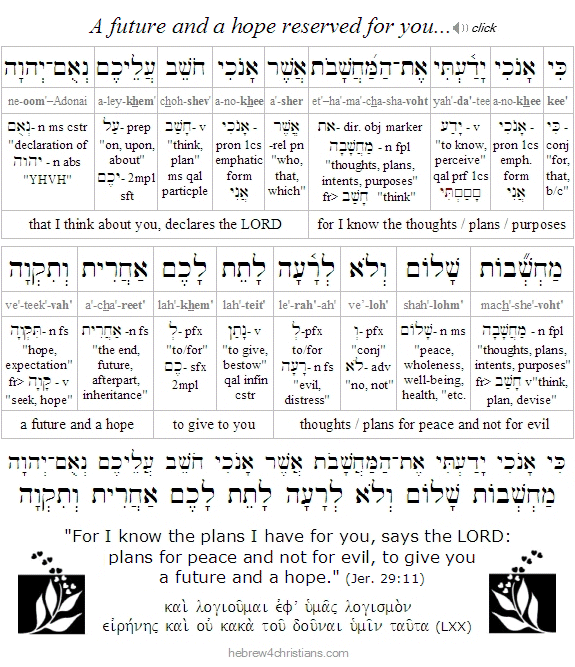 |
The Divine Light...

07.03.23 (Tammuz 14, 5783) "If I say, surely the darkness shall cover me, even the night shall be light about me, for the darkness cannot hide from You, but the night shines as the day: nothing escapes your radiance" (Psalm 139:11-12).
The heart of faith confesses that the light of God overcomes all the darkness, even the darkness of our own hearts, and furthermore it furthermore affirms that we can trust that God is in our darkness, in the silence, in the unknown... Yeshua was covered by the dark cloud as He suffered on the cross on your behalf. You come out of the shadows when you admit that you act just like other people, that you are human, in need of reconciliation yourself... Above all you need God. You need help. You need a miracle to help you to truly love. You may find excuses for many things, but you cannot escape the "wretched man that I am" reality that is grounded in your fears.
God sees in the darkness and is present there, too. When you feel alone, like an unbridgeable gulf lay between you and all that is good; when you feel like you want to scream but are afraid that even then no one would hear, may the LORD shine His light upon you... Amen, may His light shine upon you.
Hebrew Lesson
Psalm 139:11 reading (click):
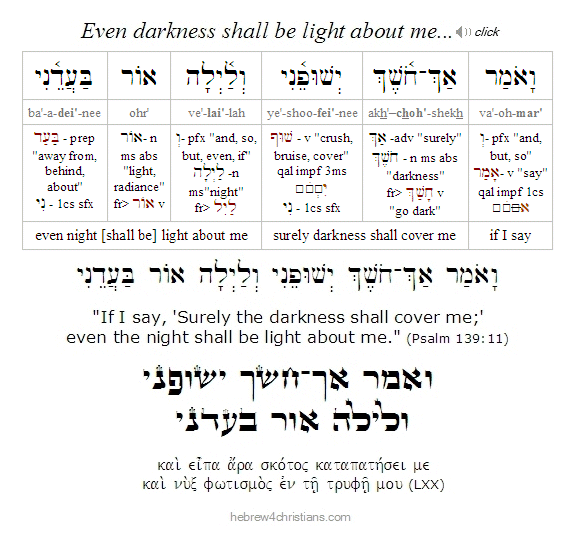 |
Losing and Finding yourself...
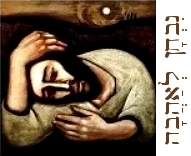
07.03.23 (Tammuz 14, 5783) Shalom chaverim. Many of us deal with inner conflicts, self-reproach, and meagerness of faith... It is reported that on his deathbed Reb Zusya said, "I am not afraid that the Holy One will ask me, 'Zusya, why were you not more like Moses?' Rather, I fear the Holy One will say, 'Zusya, why were you not more like Zusya?'" This Hasidic story is interesting because, on the one hand, how could Zusya be anyone other than he is? and on the other, why is Zusya afraid that he is not who he should be? Zusya's parable reveals that there is an inner conflict in his soul. He senses that has not lived as he ought, that he has failed himself (and God), and that he is lost in the rift between the ideal and the real... His struggle, then, is with himself. Who he is and who he thinks he should be are at odds within his heart.
The question of who we are meant to be haunts us, and consciousness of the failure to practice our ideals leads to a sense of guilt, anxiety, and shame. For those who believe in Yeshua the question is essential to the question of what it means to be an authentic disciple. How are we to live before God and be accountable for what we do? For instance, we read Yeshua's message in the Sermon on the Mount and we eventually realize - if we are honest with ourselves - that it is not within our nature to be able to do as he teaches, and this leads us to a despair not unlike that which Zusya experienced. A divided house cannot stand....
Reb Zusya's despair can be remedied only by overcoming the inner divide through a personal relationship with Yeshua, for salvation is not simply deliverance from the accusations of conscience (i.e., the verdict of the law) but constitutes the healing grace that delivers us from ourselves. Yeshua did not die on the cross to simply take away our sins, but to create within us indestructible new nature that it no longer enslaved to the power of sin. The message of the gospel is that your heart can be - and ultimately will be - transformed by the miracle of God given in Yeshua.
Salvation is not a matter of "religion" or of man's attempt to justify himself by some kind of reformation of character. Yeshua is not the "second coming of Moses," after all. Try as you might to live a "good life," keep the commandments, and aspire to elevate yourself spiritually, you will eventually come to realize that it is impossible to change yourself. You will then be faced with a decision: either to deceive yourself about who you are, or to be honest and confess your wretched and hopeless condition. This is the "lawful use of the law," that reveals the "ought-to-be" self, so that the gap between the ideal and the real becomes unsurpassable, and we know ourselves as lost sinners who are in peril over ourselves...
In our natural estate we are "fallen," shattered of heart, full of trouble "as the sparks fly upward." As Simone de Beavoir once wrote: "In the very condition of man there enters the possibility of not fulfilling who he is" (Ethics of Ambiguity, 1947). The breach between who we are and what we ought to be creates a sense of alienation from ourselves, a "shadow self" that we deny, suppress, or try to control. In a moment of rare lucidity, the "natural man" cries out to God: "What do you want from me?" This is the moment when truth has its opportunity, when the heart is stirred to confess its need for deliverance and to accept God's love, despite the brokenness and incoherence of life.
When by miracle we escape from the "hard yoke" of our laws, our vain attempts at self-justification, we do not encounter another set of laws, or another heavy yoke, but we take hold of the love of God, a personal love, and we engage in relationship with God as the central (and unifying) reality of our lives. Deliverance from ourselves is not found in religious (or "spiritual") recipes of any kind but in our connection with the truth of who God really is, trusting in his love and healing for all that we are, have been, and ever shall be, amen.
"Salvation is of the LORD," which means that God does the work of righteousness within you. It is God who saves you; it is God who sanctifies you, and ultimately it is God alone who heals you. Whenever you say "I can't," you are either looking at yourself or at God. If you are looking at yourself, "I can't" is better understood as "I won't," and the problem then is a lack of faith. On the other hand, if you are looking at God, "I can't" is followed by "but You can, O Lord" and faith trusts that God will complete the good work that he has begun in you.
It has been said that God sends each soul into the world with a special message to deliver, a revelation that only he or she can disclose... No one else can bring your message to this world - only you can do this. And since God is entirely unique, you are called to be who you were created to be, and not someone else. As George MacDonald once said, "I would rather be what God chose to make me than the most glorious creature that I could think of; for to have been thought about, born in God's thought, and then made by God, is the dearest, grandest and most precious thing in all thinking." That's the good news of the gospel, friends: God not only saves us from ourselves, he remakes us to be true bearers of his image and likeness. He works all things together for his glory and our good.
Amen, let it be so, O Lord!
Hebrew Lesson
Ezekiel 26:26a reading (click):
Shavuah Tov Podcast:
Parashat Pinchas...
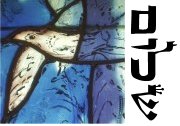
07.02.23 (Tammuz 13, 5783) The H4C audio podcast for parashat Pinchas provides an overview of the Torah reading as well as a discussion of the meaning of faith, the importance of the gospel message, and how Yeshua is revealed in the life of Pinchas... I also discuss the "Three Weeks of Sorrow" leading up to the somber holiday of Tishah B'Av as well as the significance of the Jewish holidays (mo'edim) in general. I hope you find it helpful.
This week's Torah:
Parashat Pinchas - פינחס

07.02.23 (Tammuz 13, 5783) Last week's Torah portion (i.e., parashat Balak) first introduced us to a man named Phinehas (i.e., "Pinchas"), the son of Eleazar the priest and grandson of Aaron, who, during the tragic rebellion at Baal Peor, zealously removed evil from Israel by driving a spear through a tribal prince who was brazenly cavorting with a Midianite princess in defiance of God's law. On account of Pinchas' zeal for the truth of Torah, God stopped the plague and Israel was delivered from great destruction... This week's Torah portion (i.e., parashat Pinchas) begins with the LORD rewarding Pinchas by granting him a "covenant of peace" (ברית שׁלום) and an everlasting priestly line in Israel (ברית כהנת עולם). As I hope you will see, Pinchas pictures the Messiah Yeshua, and the covenant of priesthood given to him is a picture of the greater priesthood after the order of Malki-Tzedek.
Jewish tradition says that when Aaron and his sons were commissioned as the exclusive priests of Israel (Exod. 40:12-15), the office applied only to themselves and to their future descendants. Since Aaron's grandson Pinchas had already been born at the time the promise was given, however, he did not automatically receive this honor, especially since his father Eleazar (the son of Aaron) was married to an "outsider" -- namely, the daughter of Yitro (also called Putiel, Exod. 6:25). This explains Rashi's statement about why the other tribes mocked Pinchas. How dare this "son of an outsider" kill a nassi (prince) of Israel (i.e., Zimri), especially since Pinchas' mother was regarded as an idol worshipper! The LORD honored Pinchas' zeal, however, and overruled the uncharitable tribalism of the Israelites, and he was therefore elevated to be a priest with special honor before the LORD.
God looks at the heart, chaverim, and is able to make those who have zeal for Him true priests of the LORD! You don't have to be born Jewish to be chosen by the LORD God of Israel, since He's "no respecter of persons" (Rom. 2:11). Not only can He create spiritual children of Abraham "from the stones of the ground" (Matt. 3:9; Luke 3:8), but He can turn someone considered a non-Jew (by the rabbis, anyway) into a highly honored priest of Israel (1 Pet. 2:9-10). Indeed, according to tradition, many descendants of Pinchas later became the most faithful of the High Priests of Israel during the First Temple period.
Note that according to one midrash, when Zimri and Cozbi (the Midianite princess) were cavorting, they actually ran inside the Tabernacle compound itself, directly past Moses and the people who were there weeping at its entrance (Num. 25:6)! Pinchas then took a spear from the Tabernacle guards and courageously followed after them. When he caught up with them within the Tent of Meeting itself, he pierced them through with the spear (Num. 25:7-8). After this, thousands of men from the tribe of Simeon ran in after him, seeking to kill him. Pinchas was in such a state of terror that "his soul left him" and he was reborn as a Kohen.
Parashat Pinchas (like parashat Emor in Leviticus) also mentions of all of the (sacrifices of the) mo'edim (holidays) given to the people Israel (Num. 28). These include the daily (tamid), weekly (Shabbat), monthly (Rosh Chodesh) sacrifices, as well as the sacrifices assigned to the special holidays: Passover, Shavuot, Rosh Hoshannah (Terumah), Yom Kippur, Sukkot and Shemini Atzeret. The sages said that remembering the joys of the Temple and the special celebrations of the Jewish people promote the call to do teshuvah during the otherwise somber time of the Three Weeks of Sorrow.
|






































































